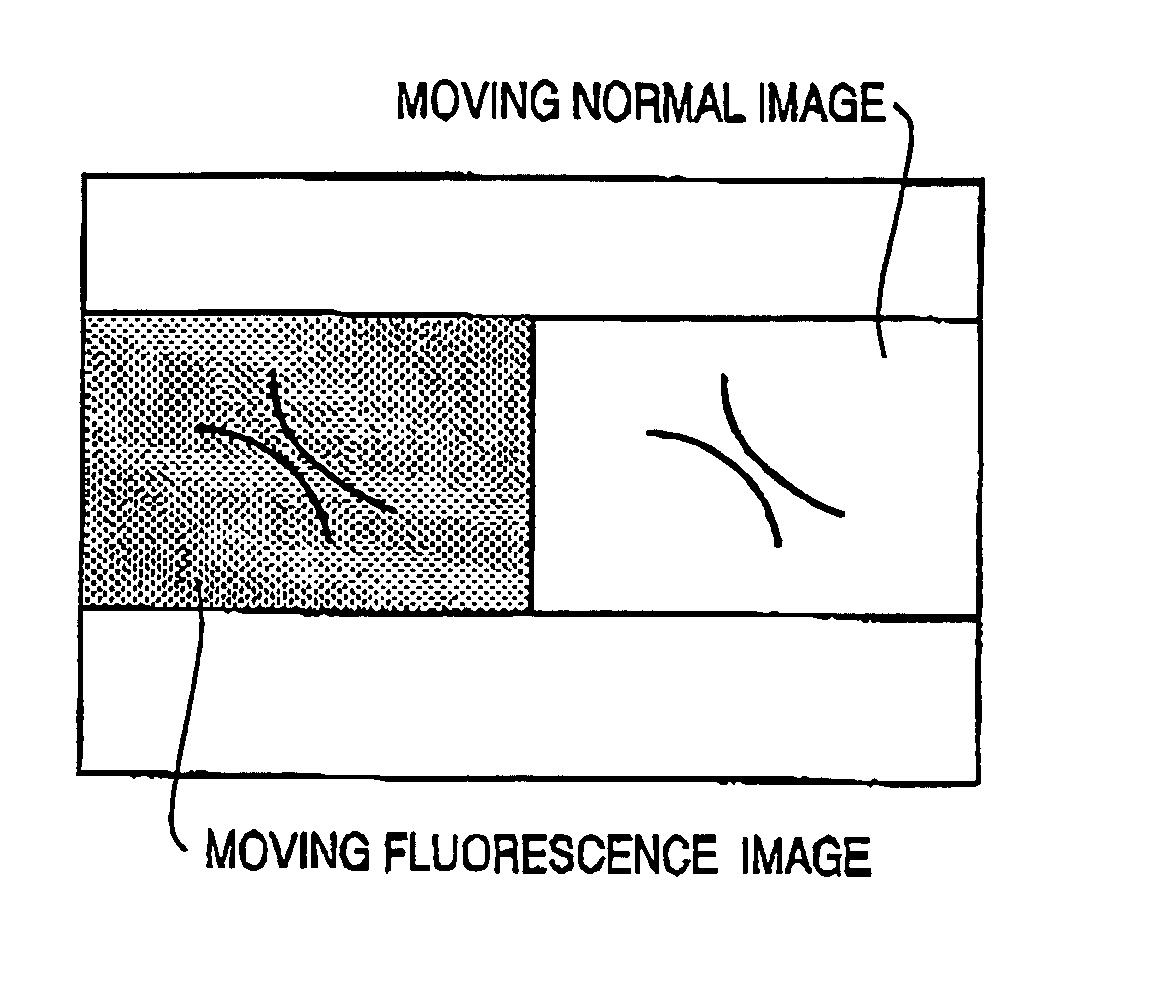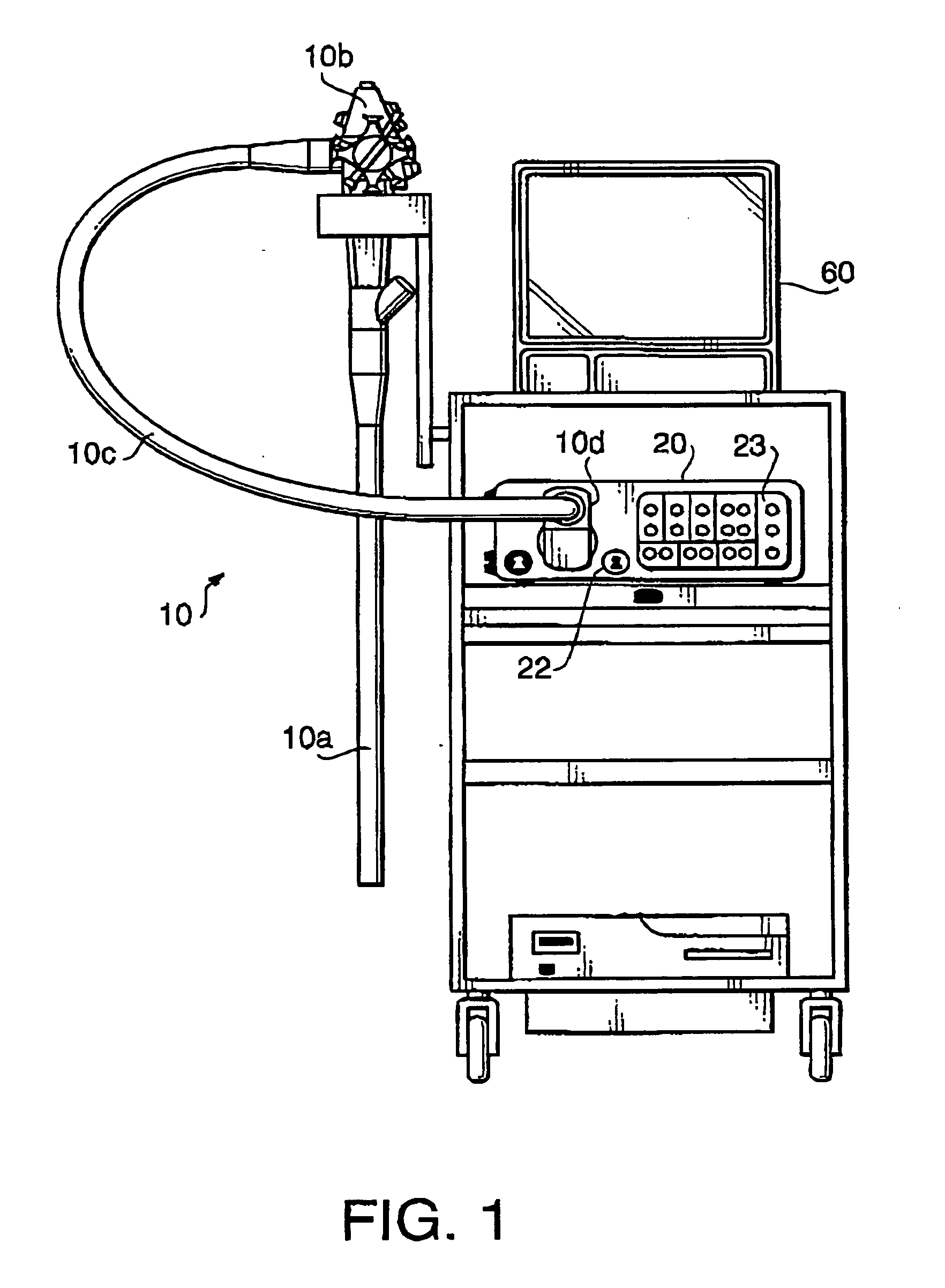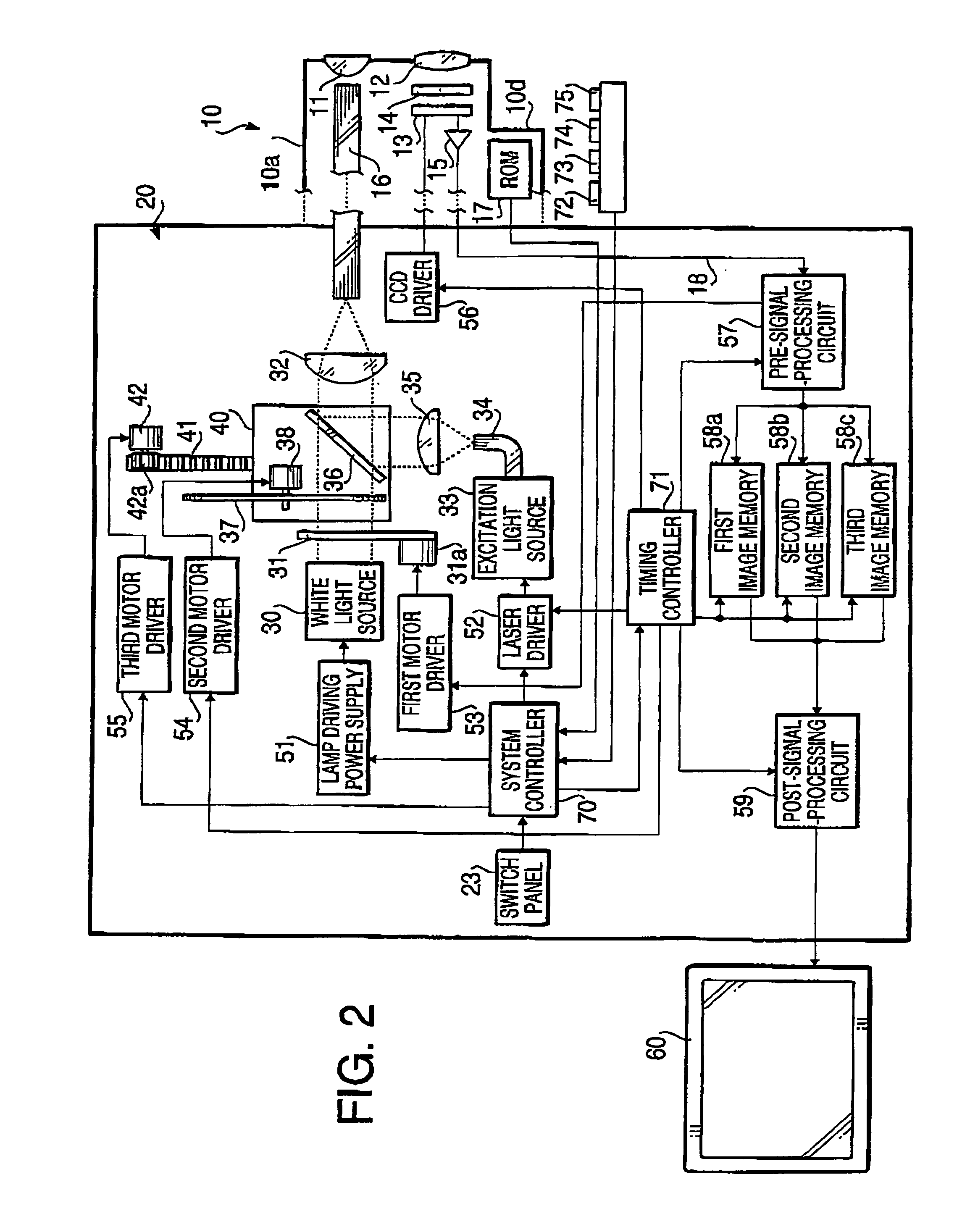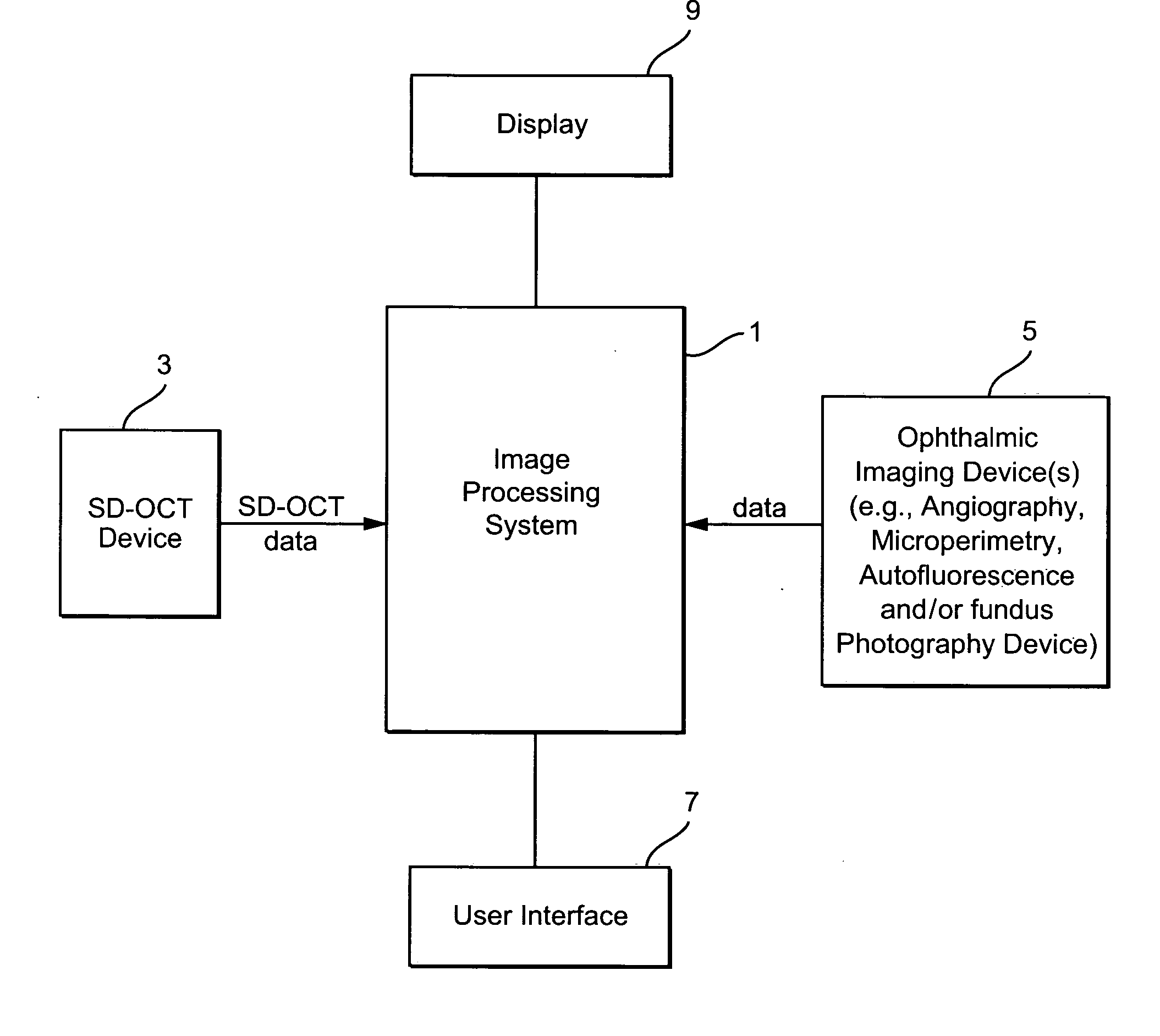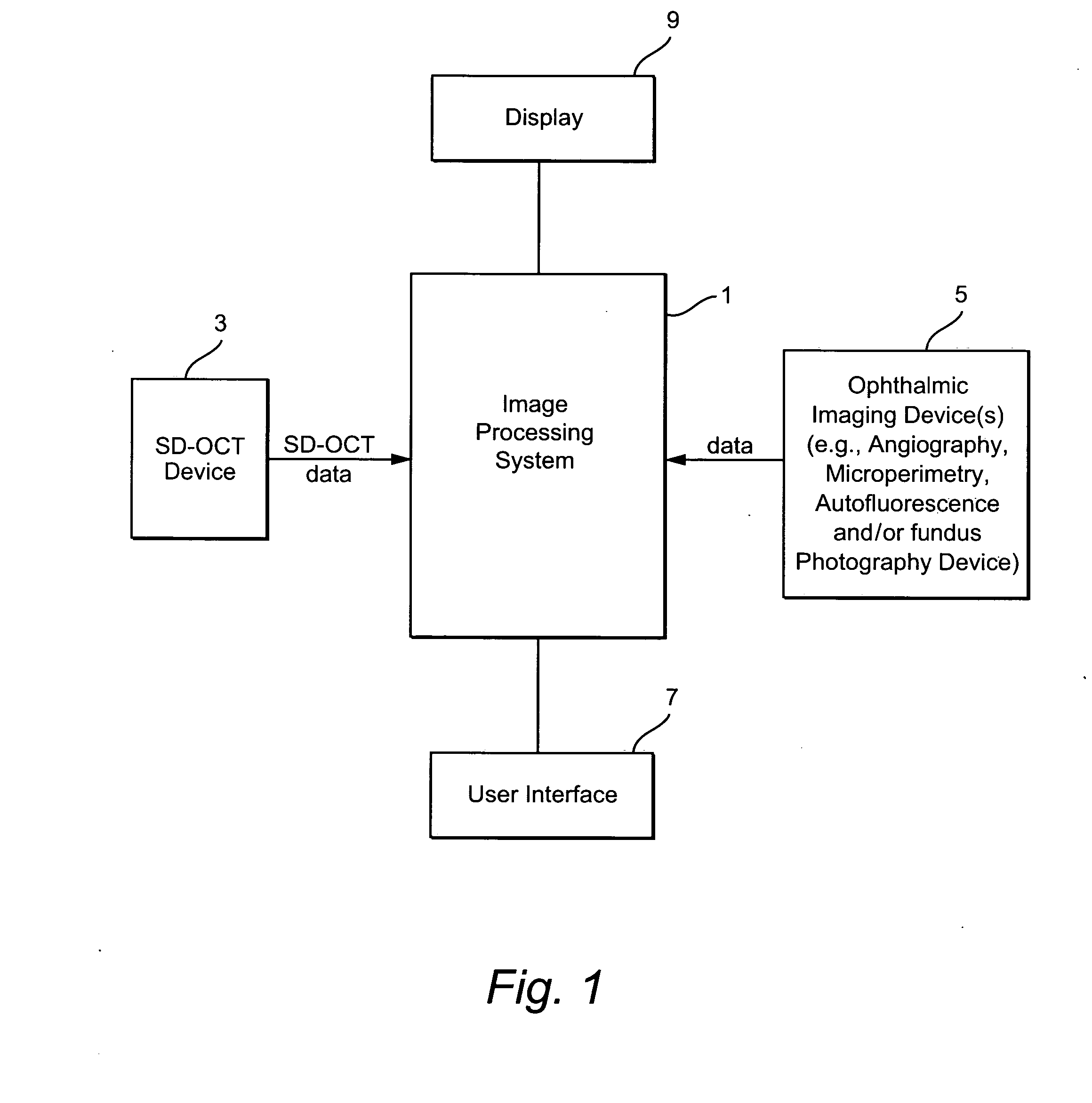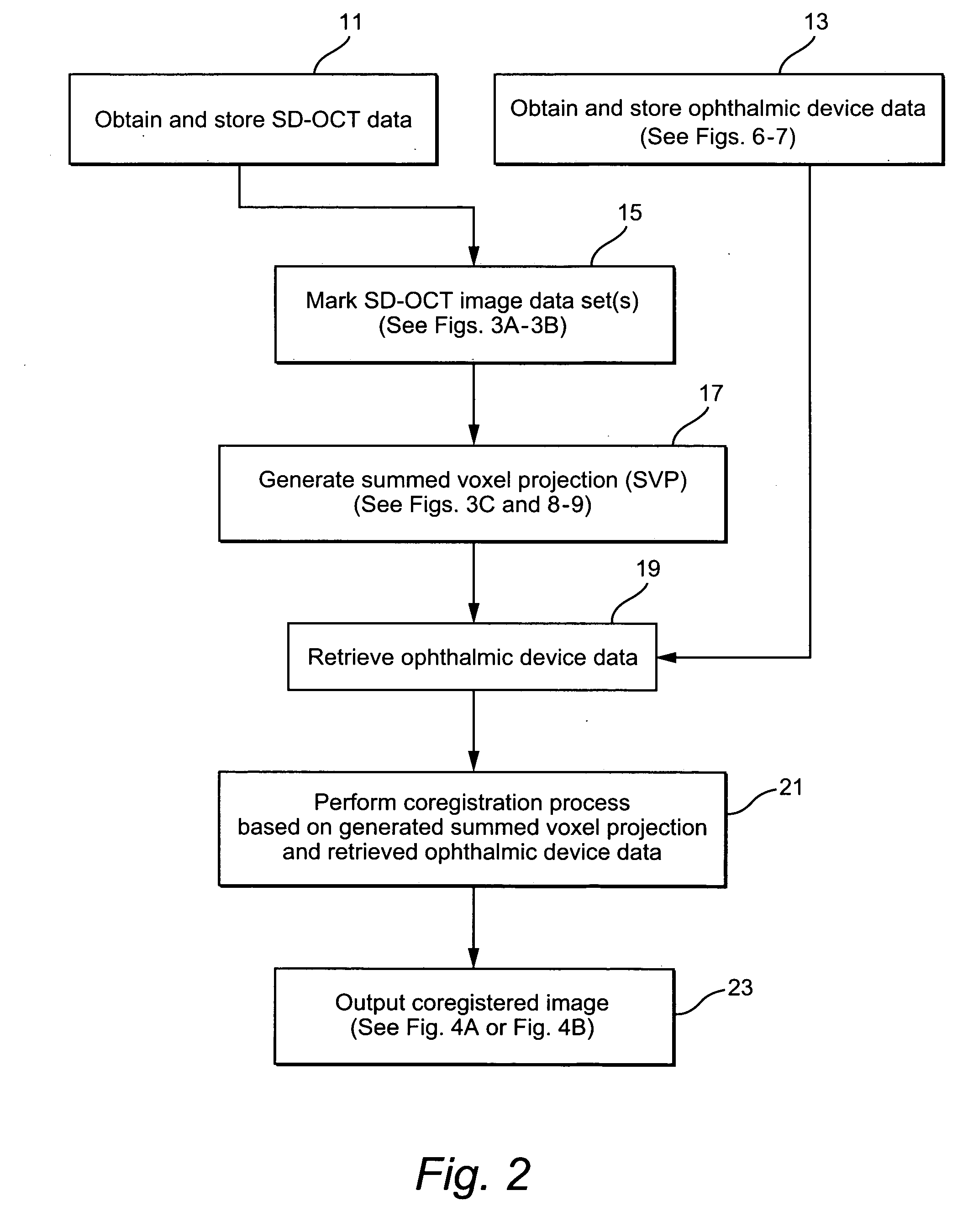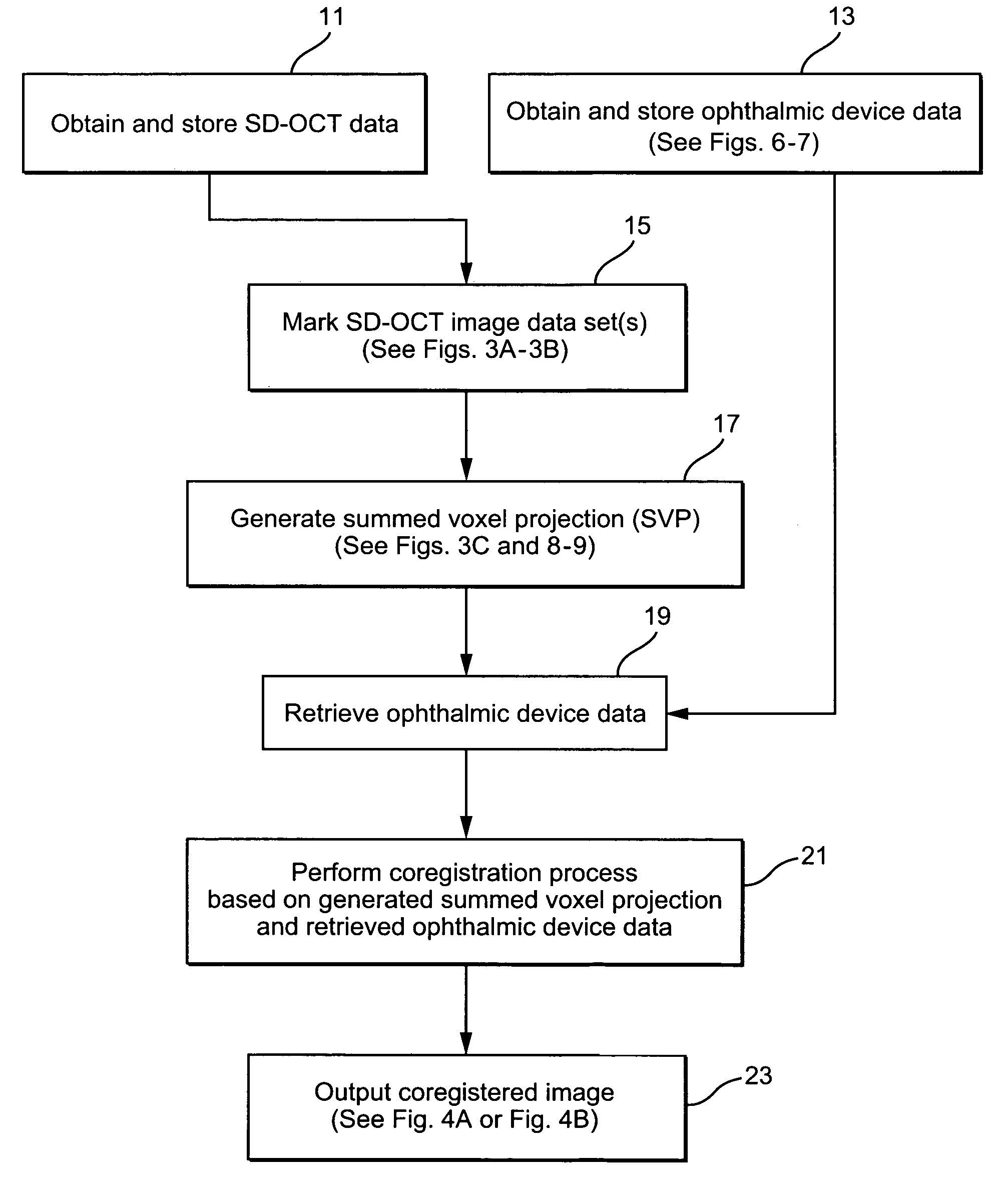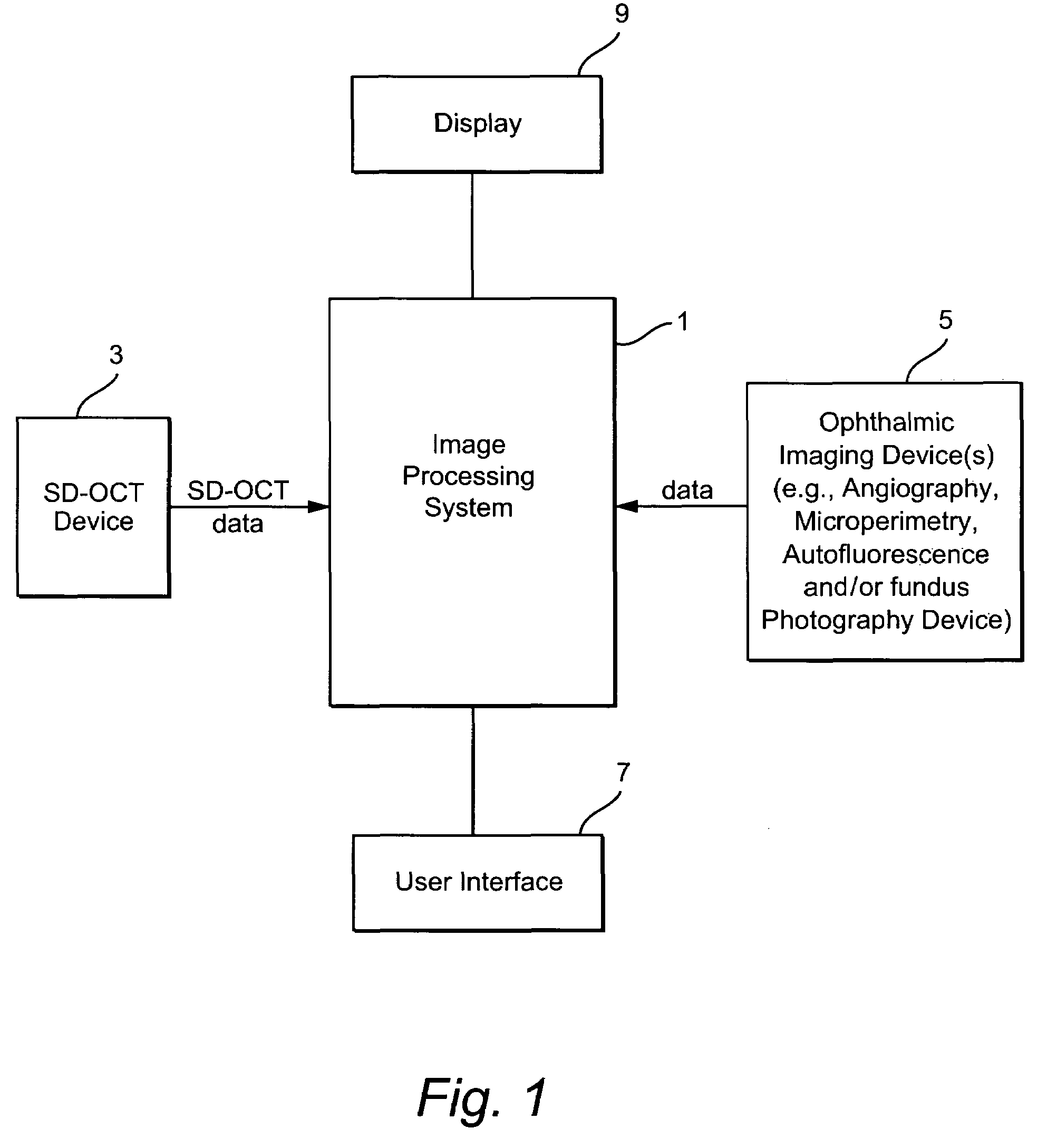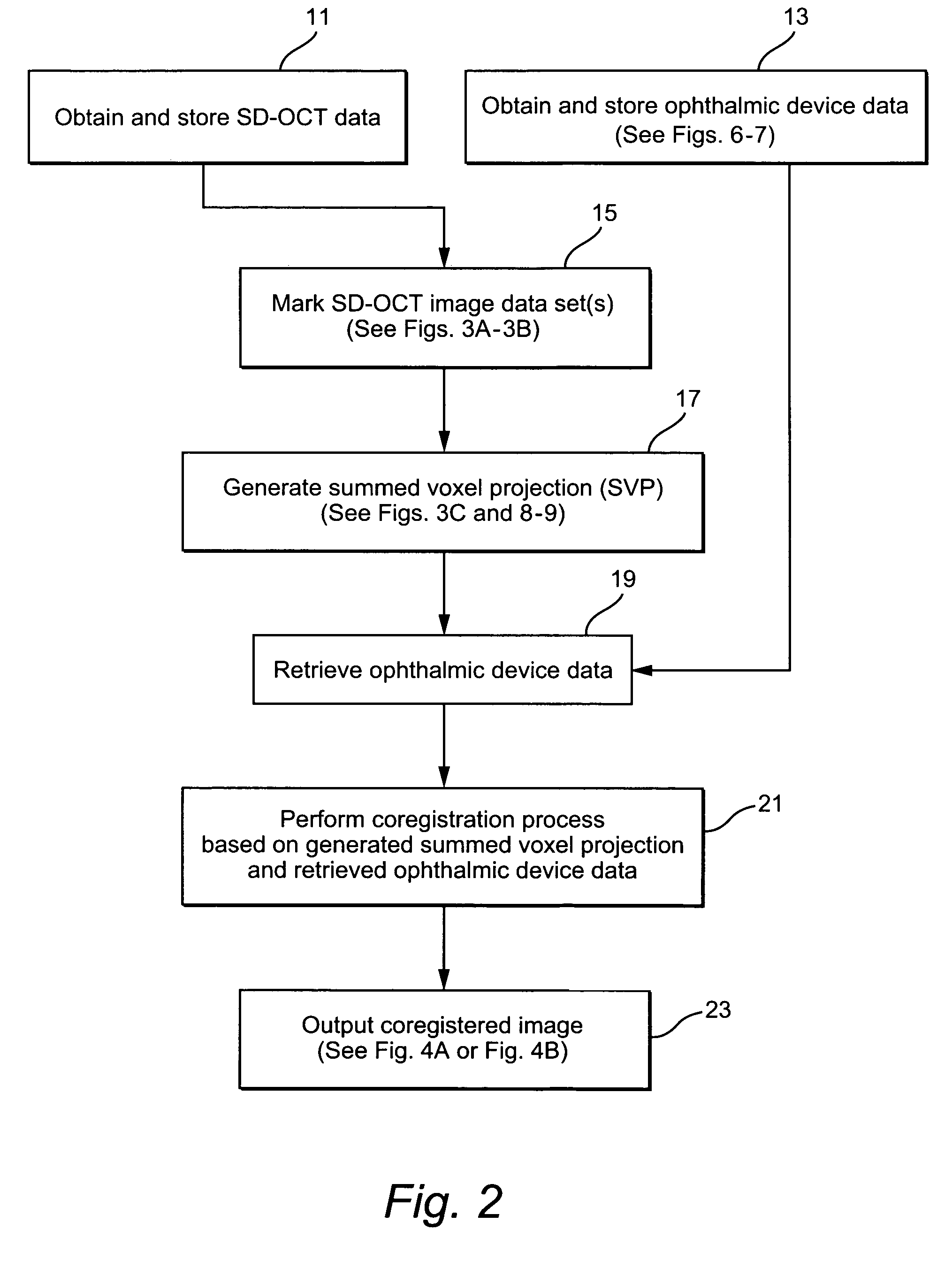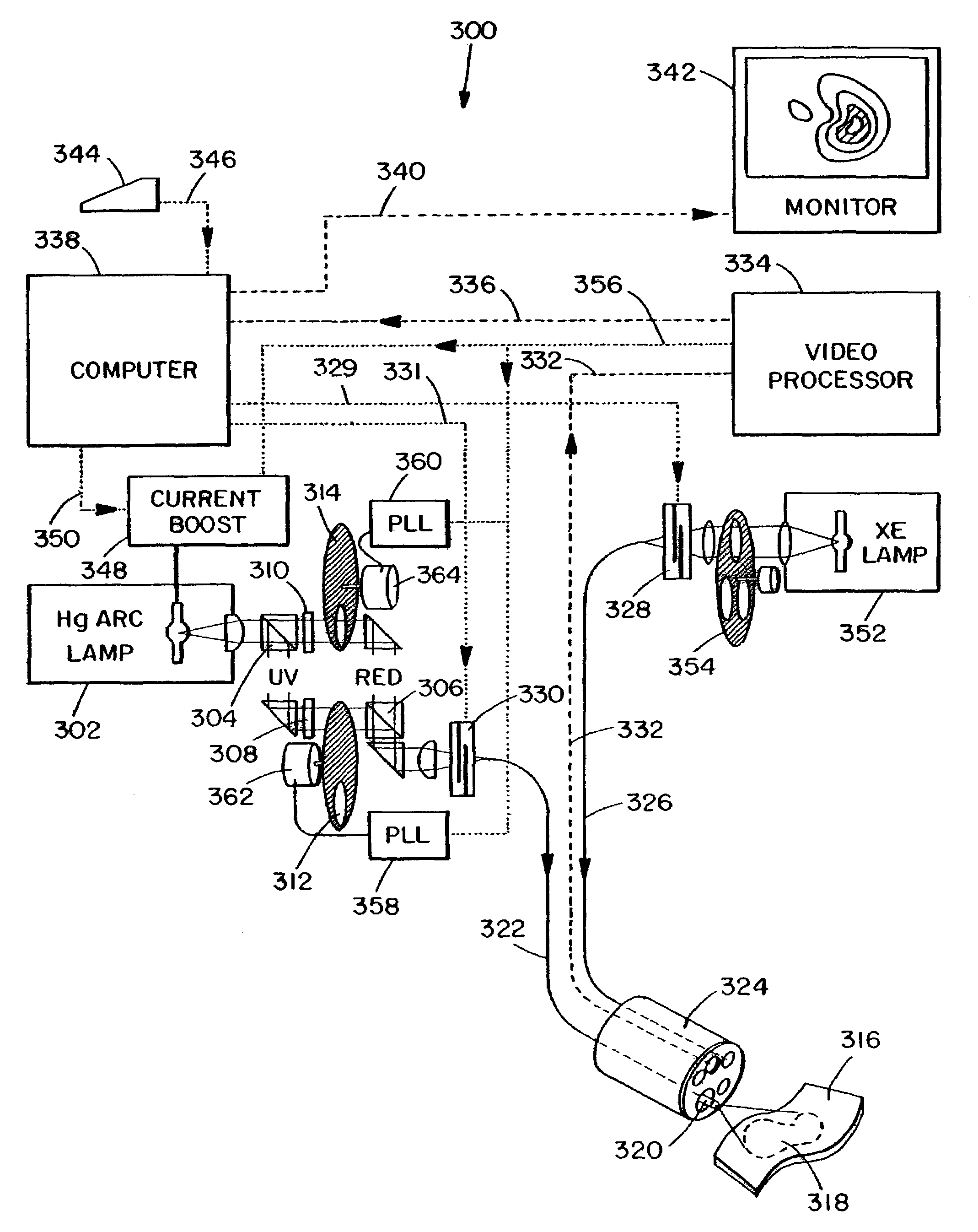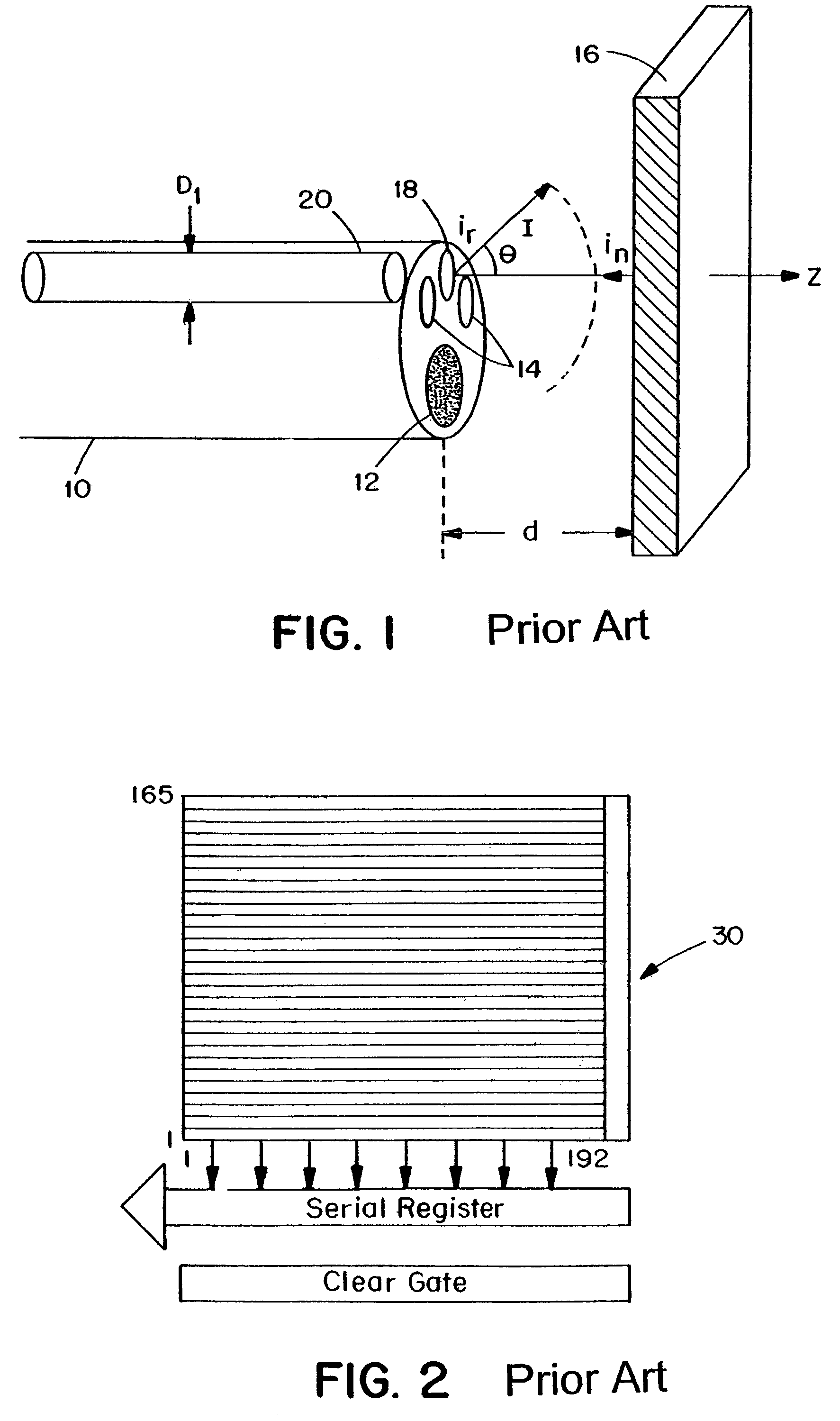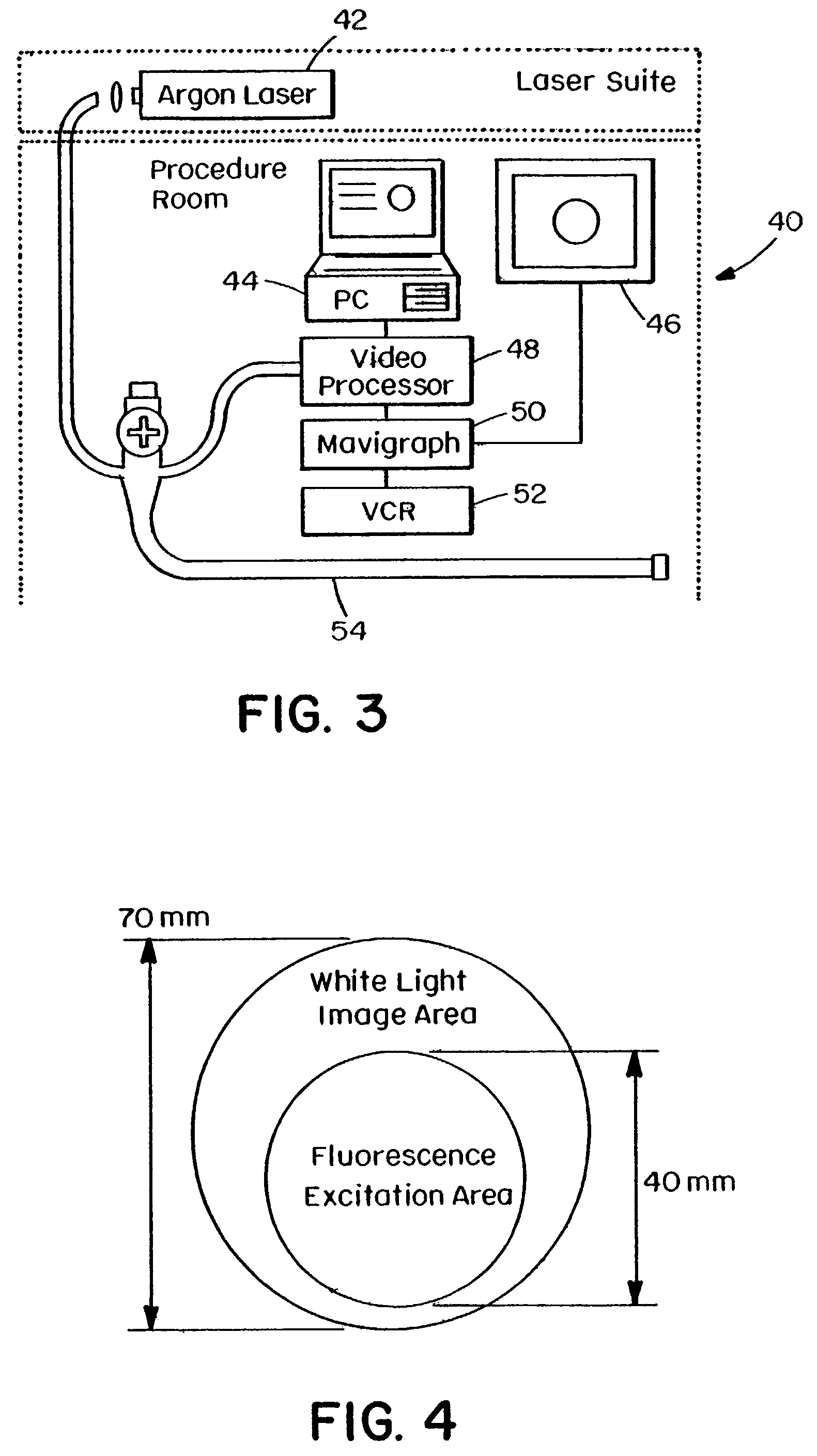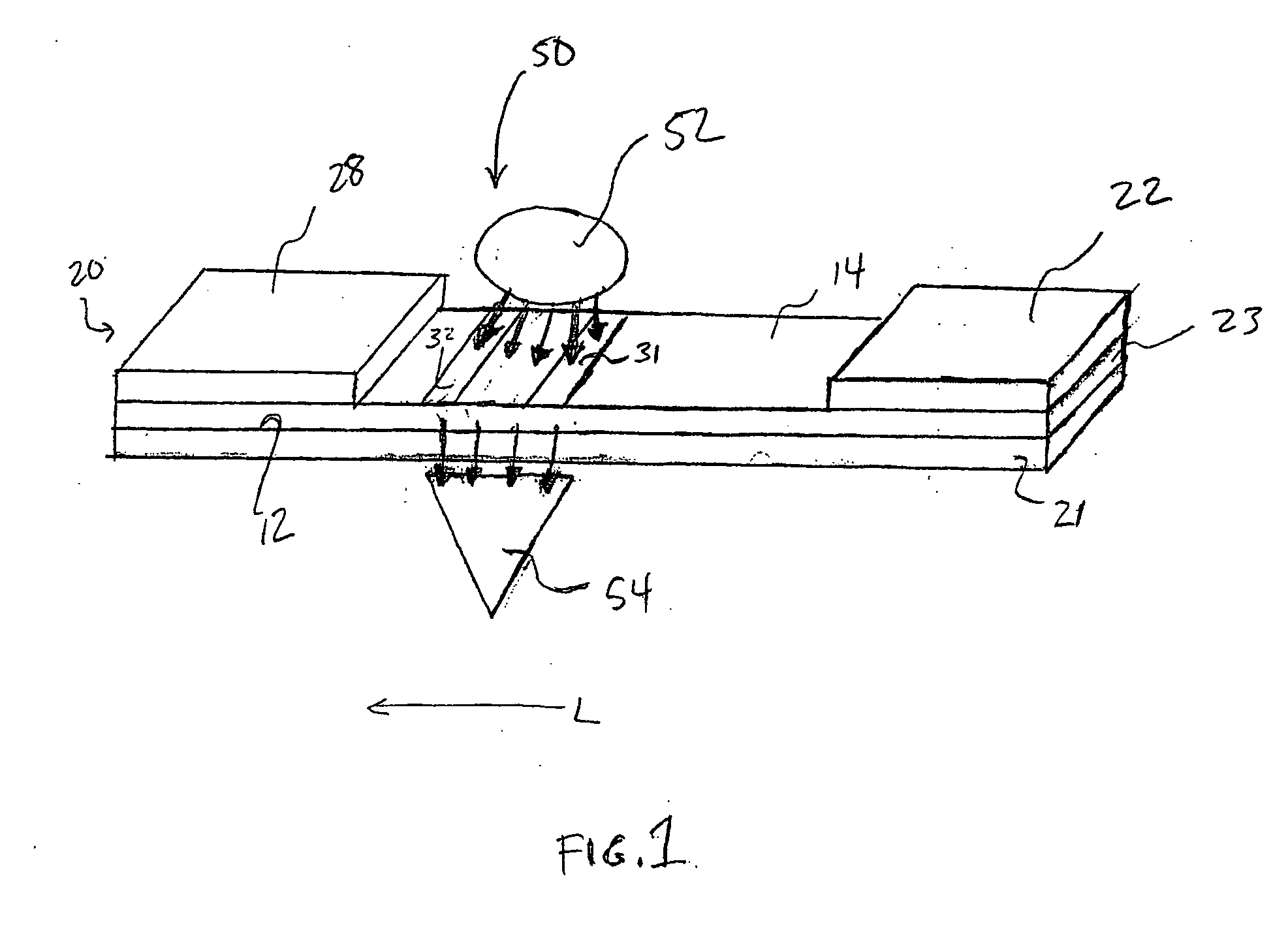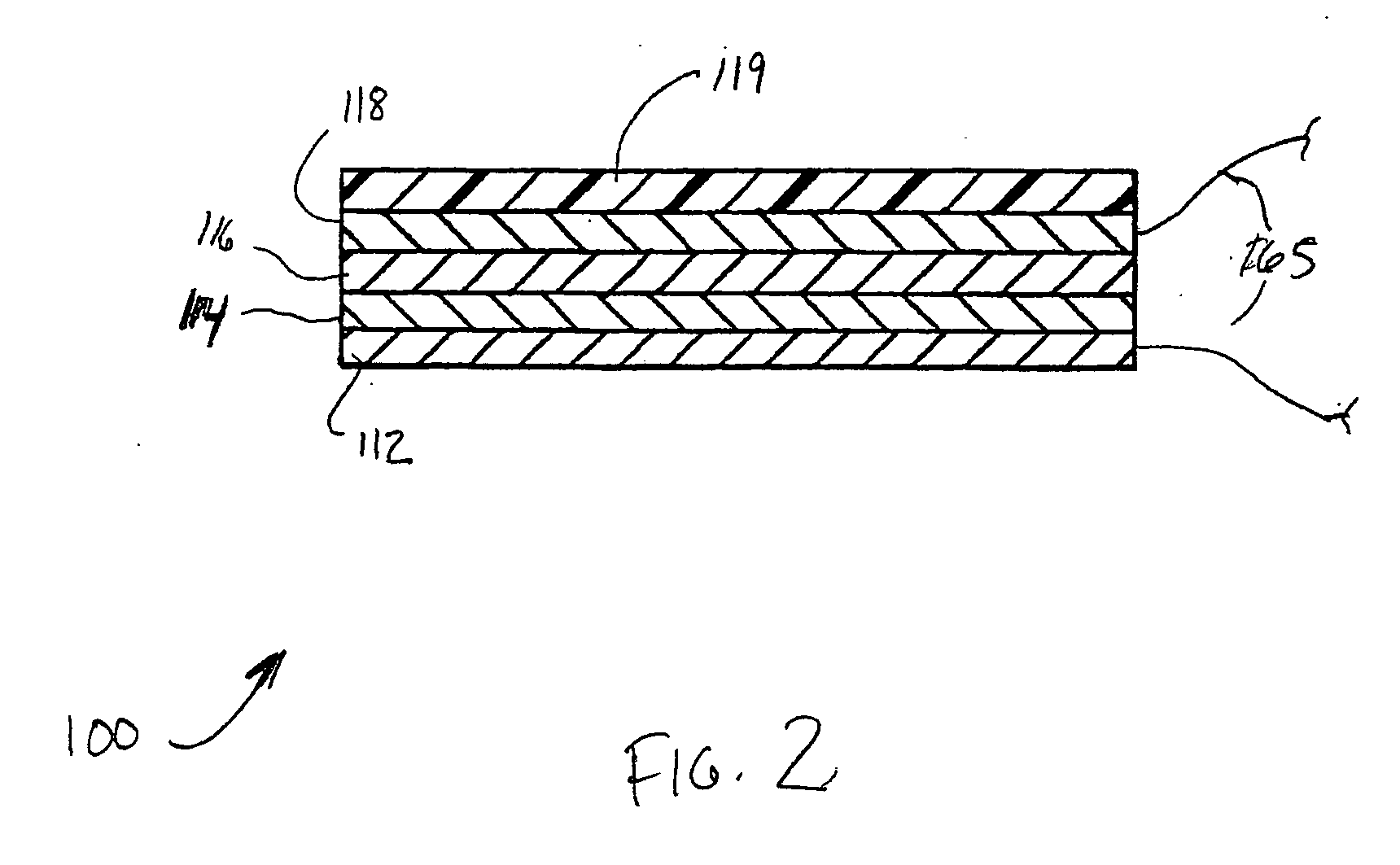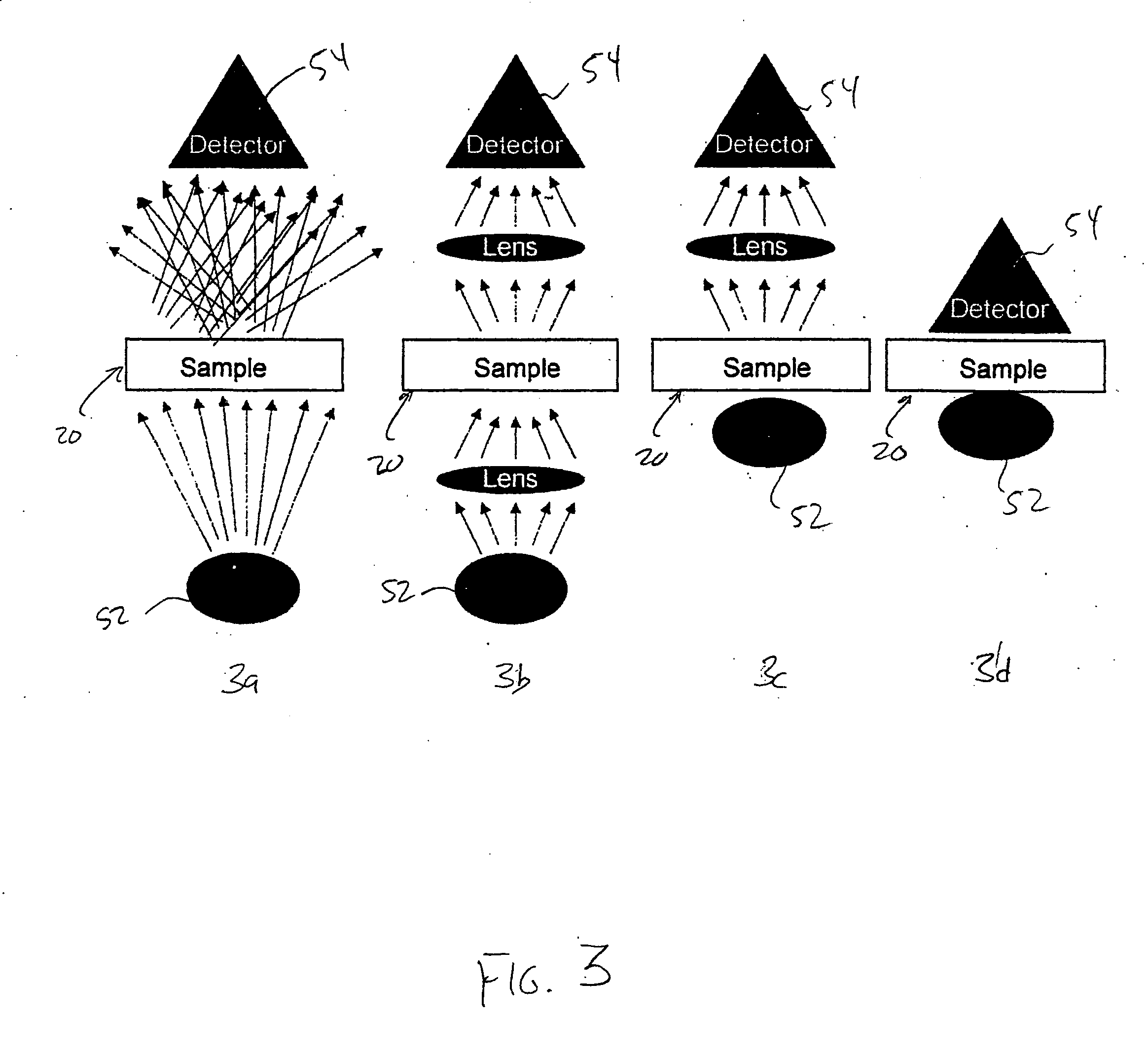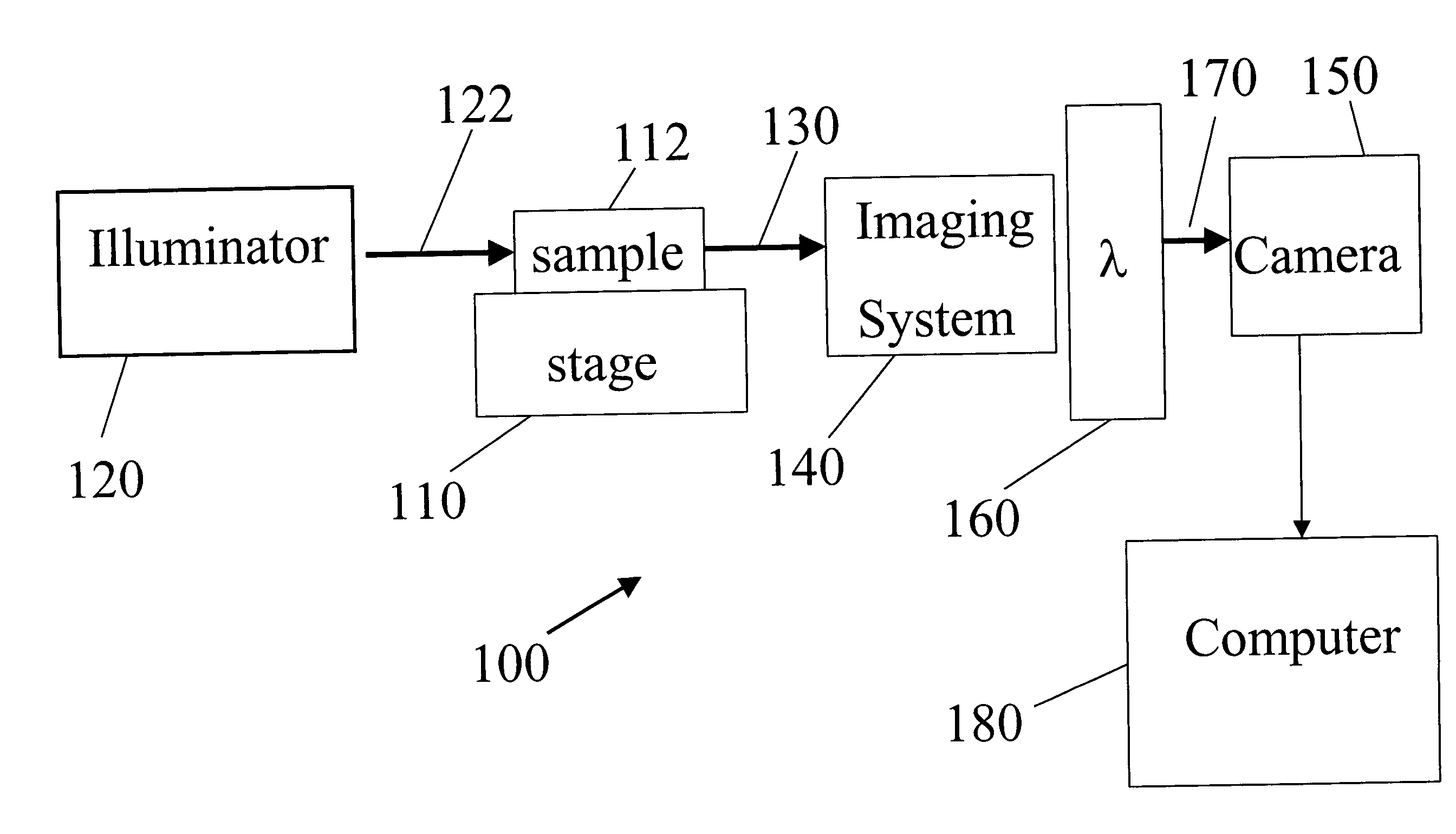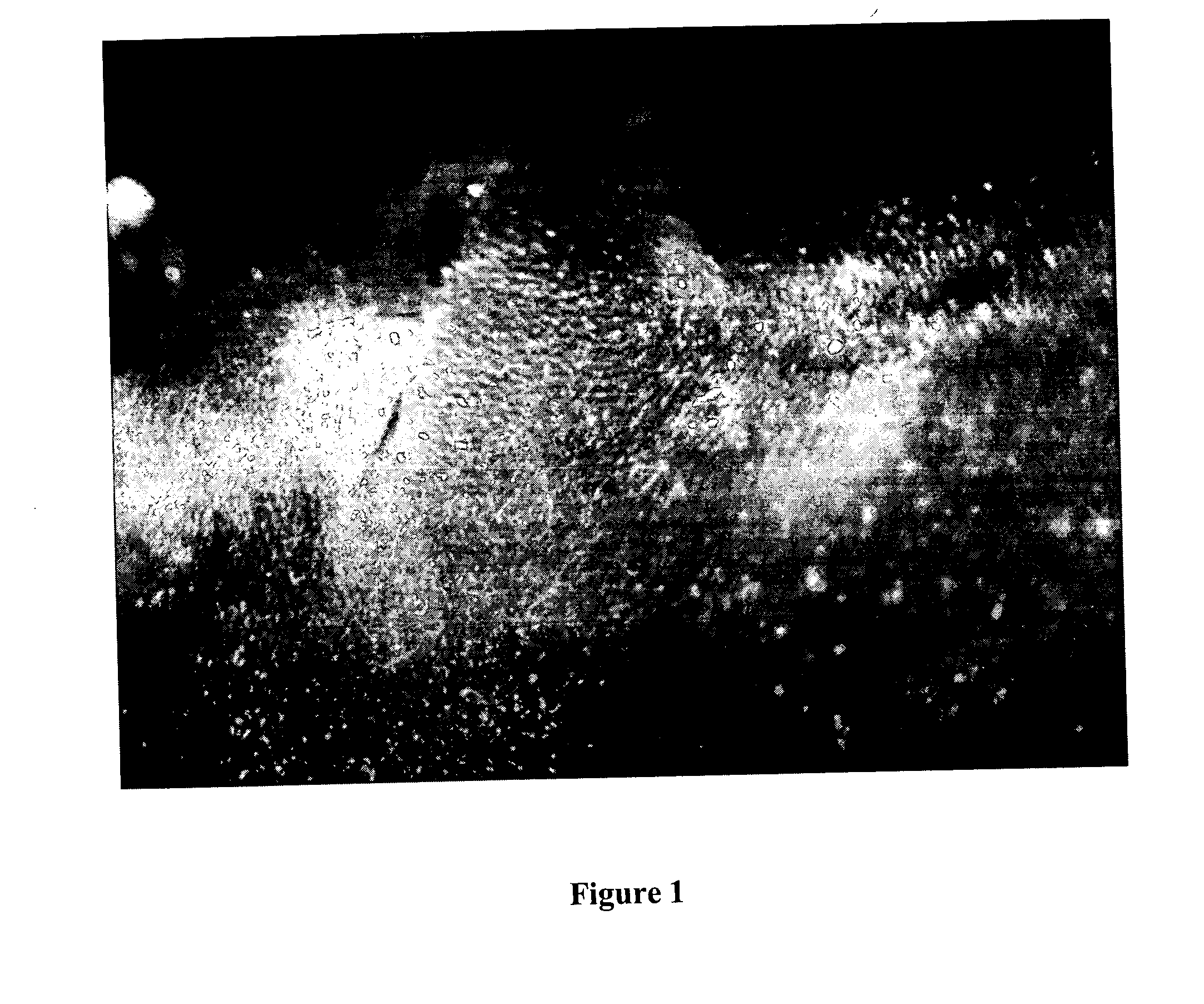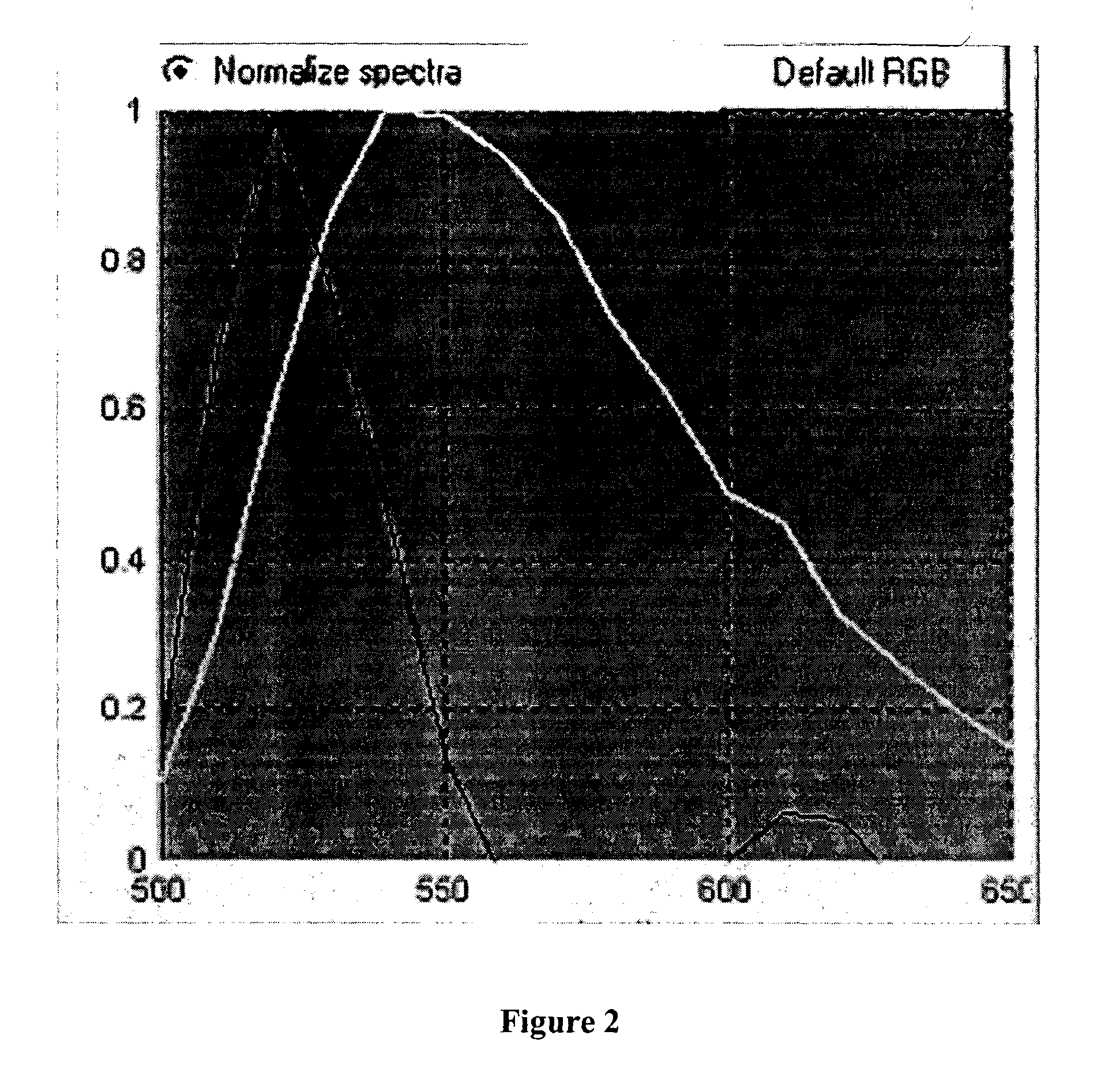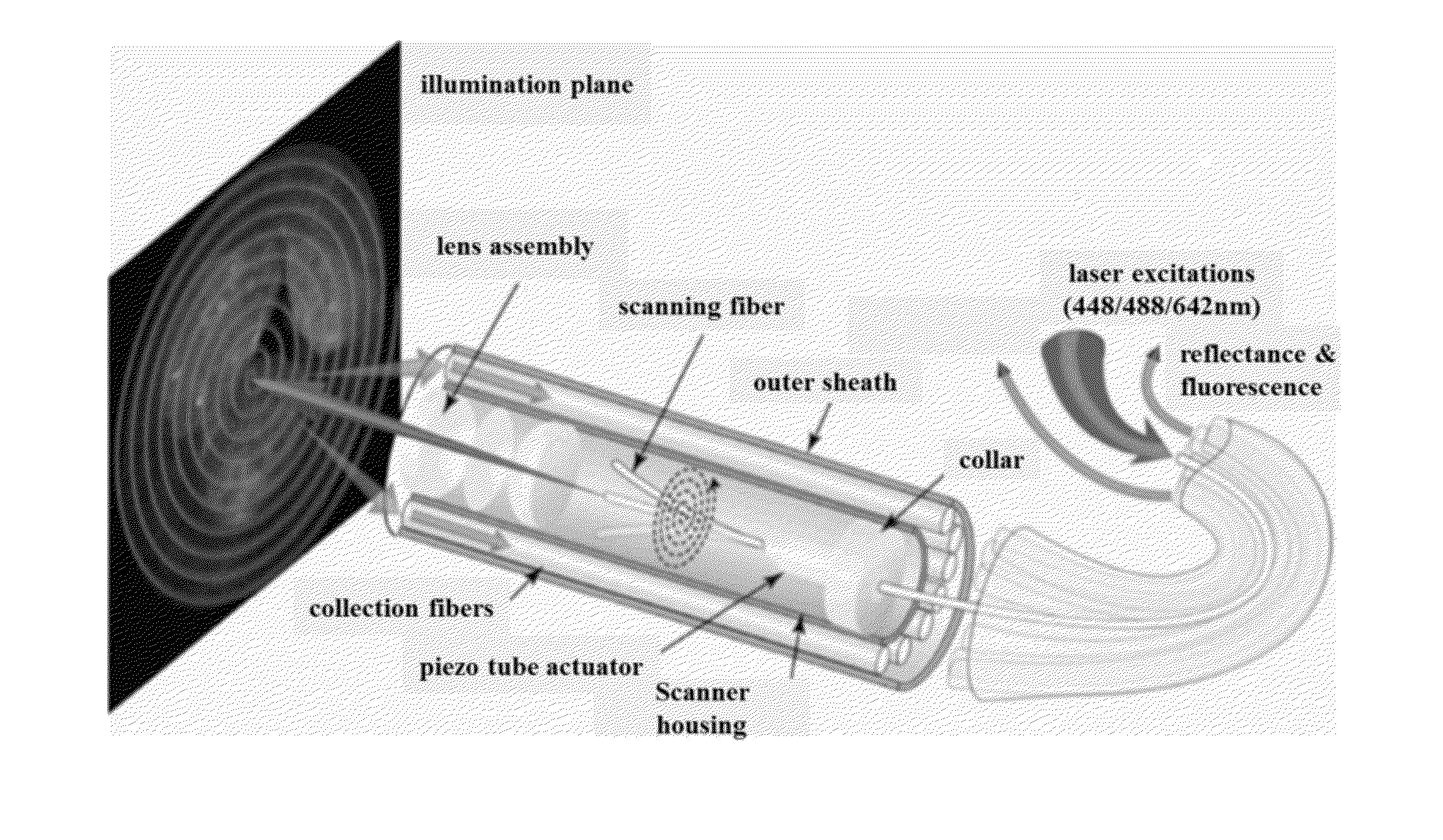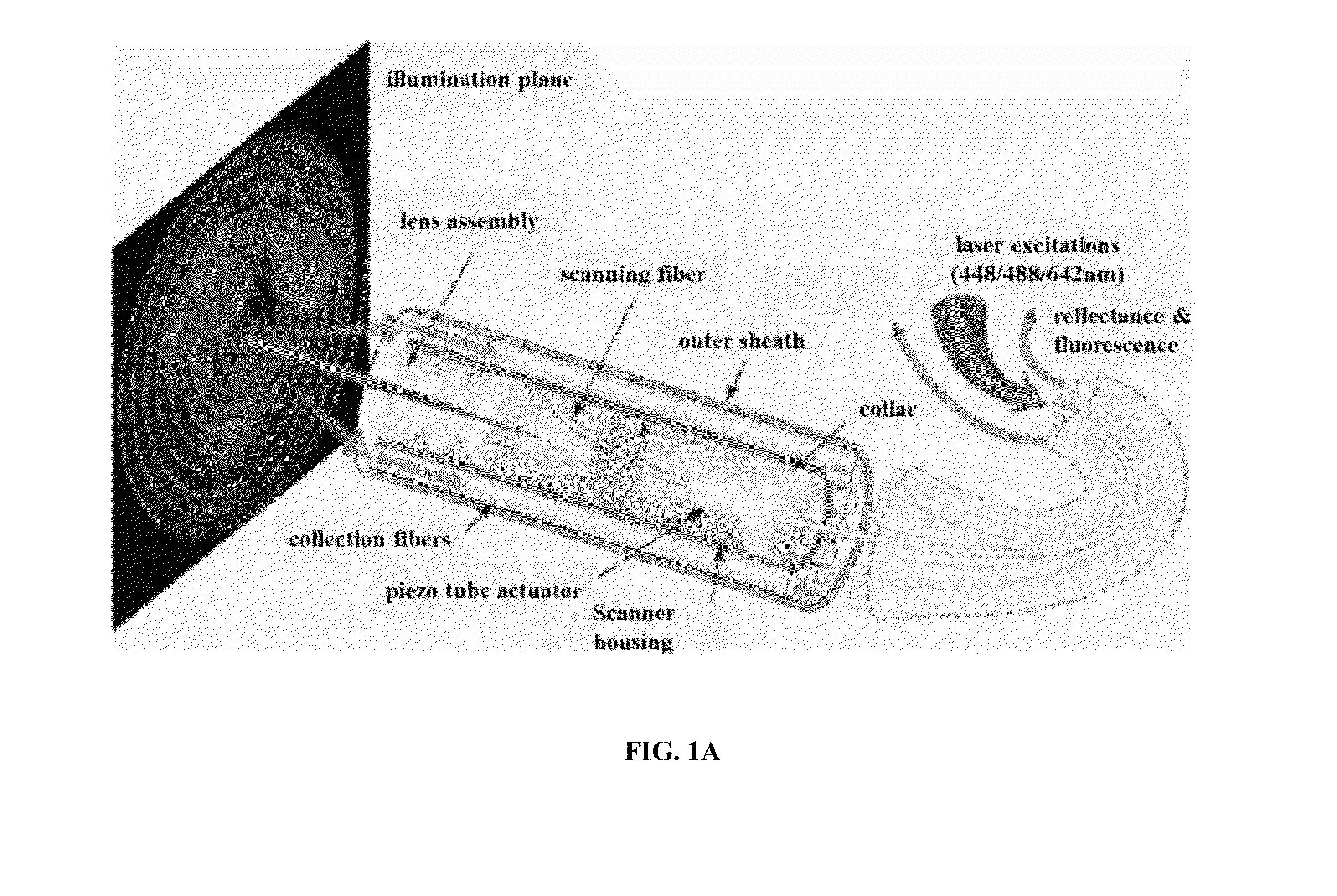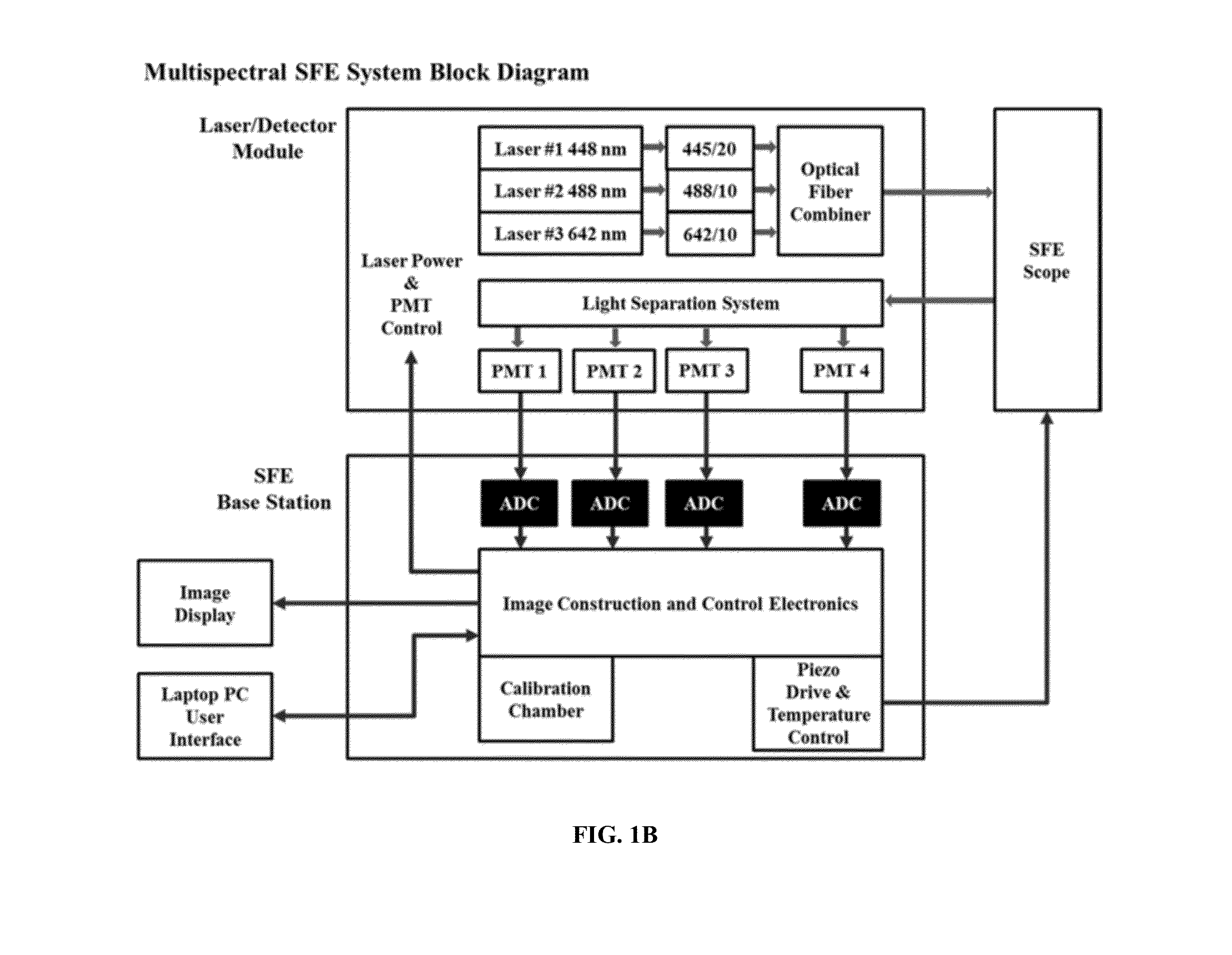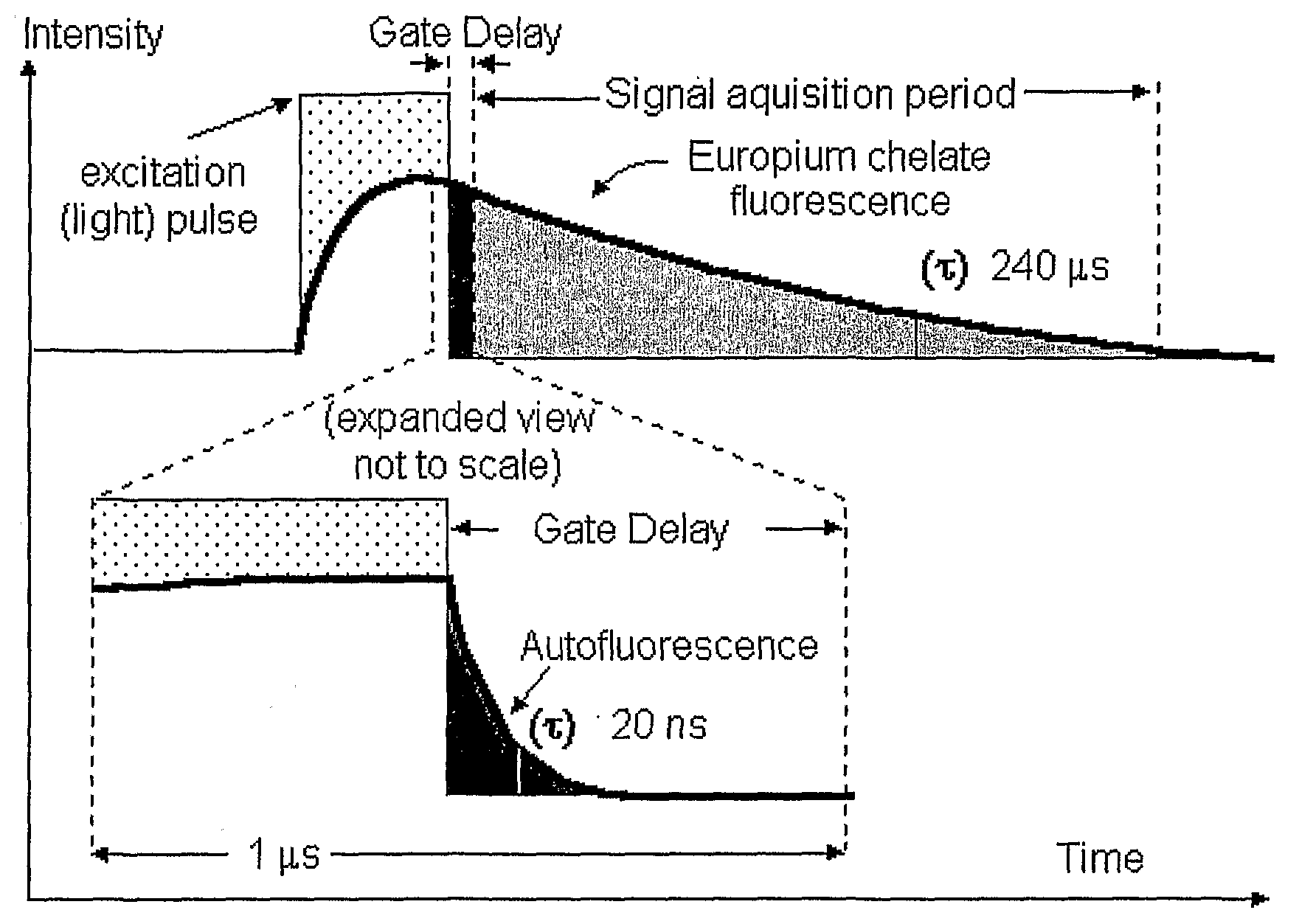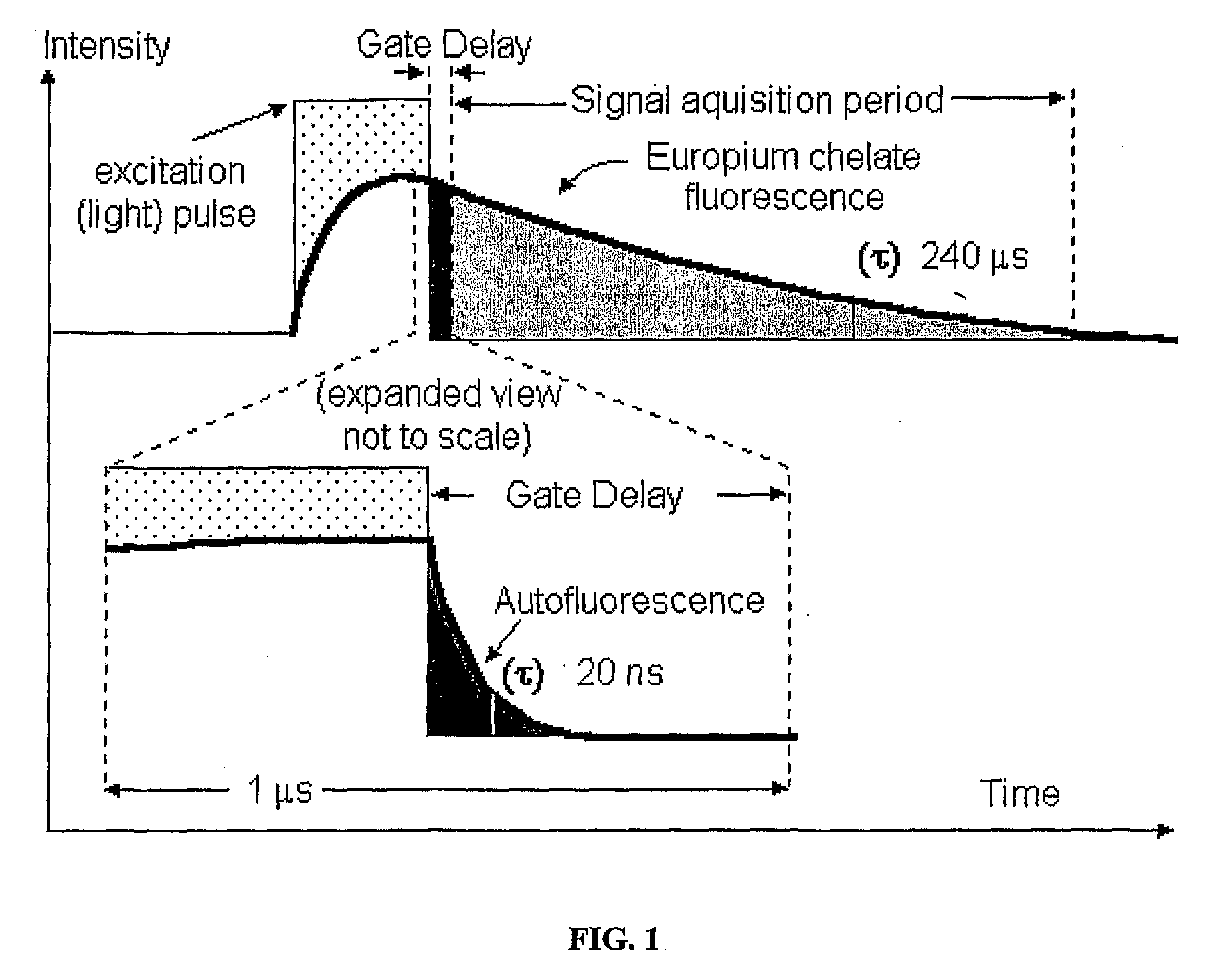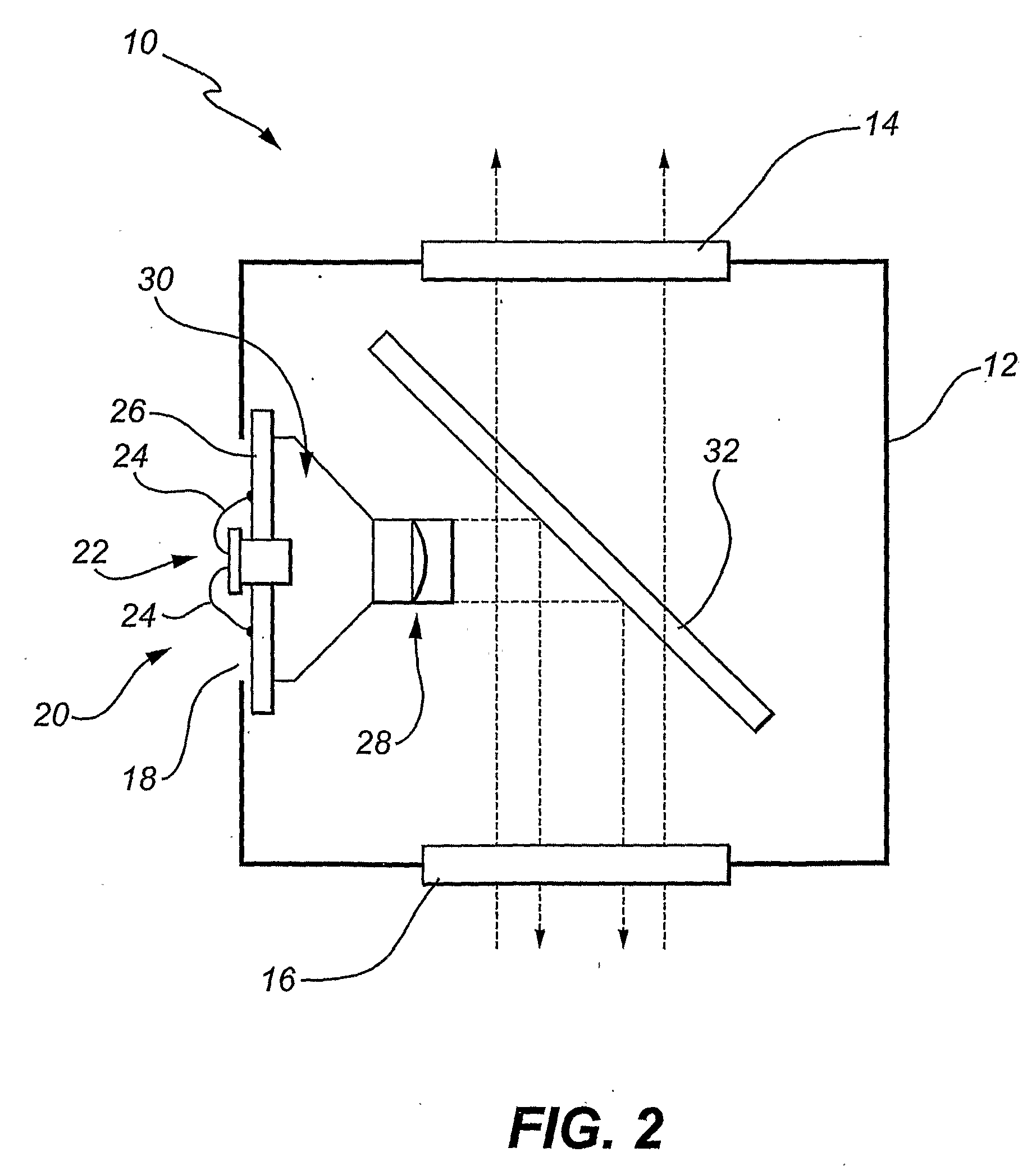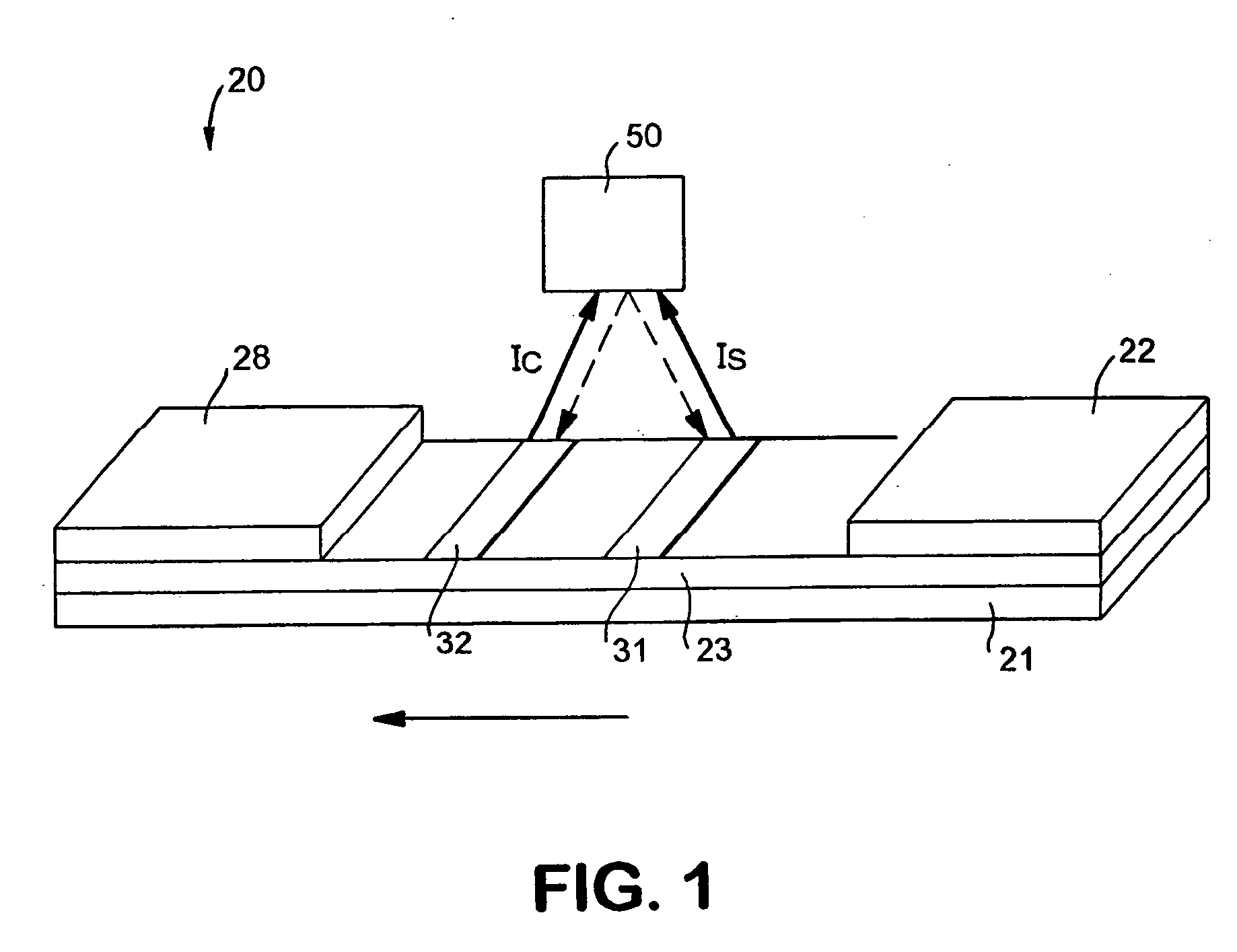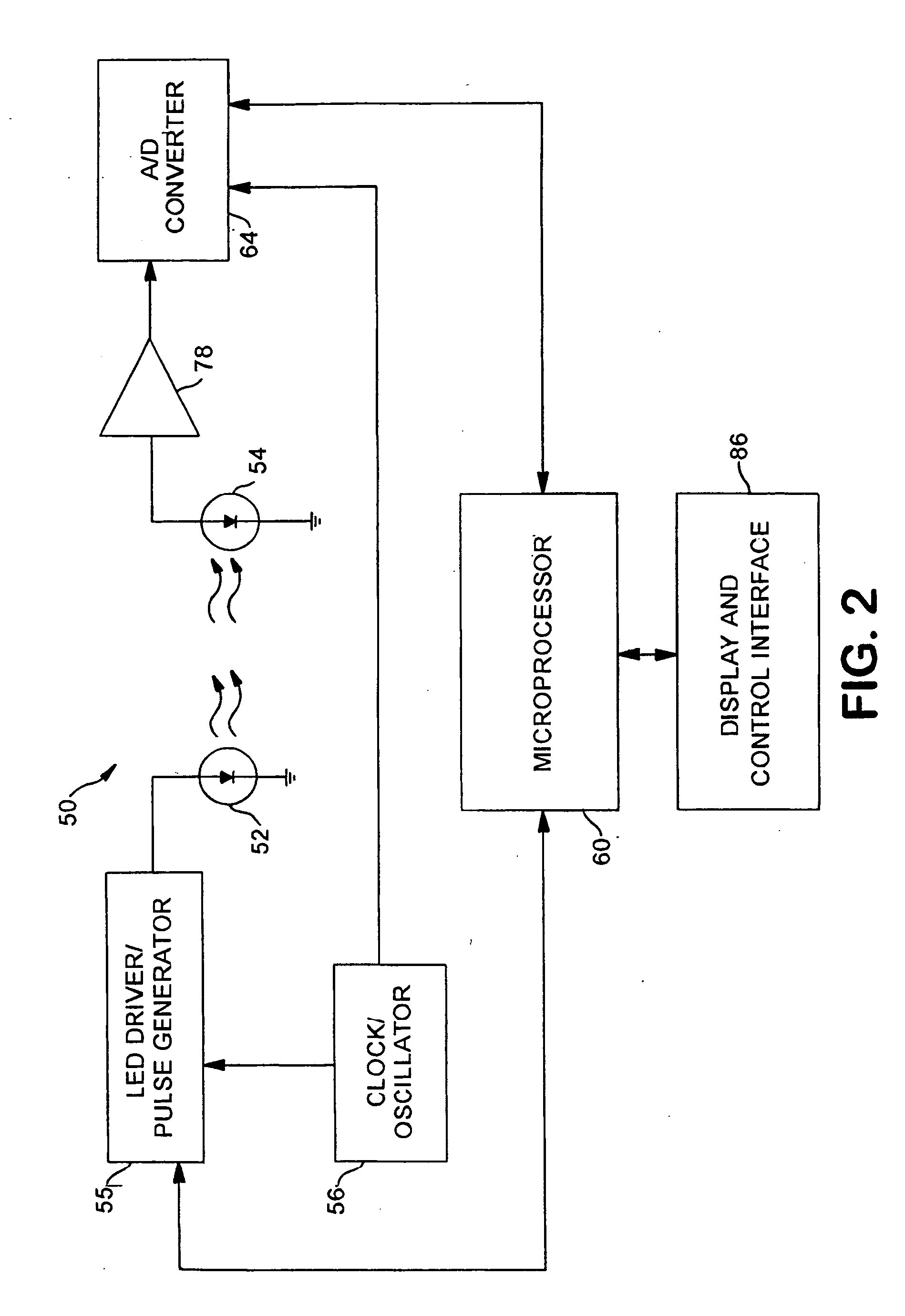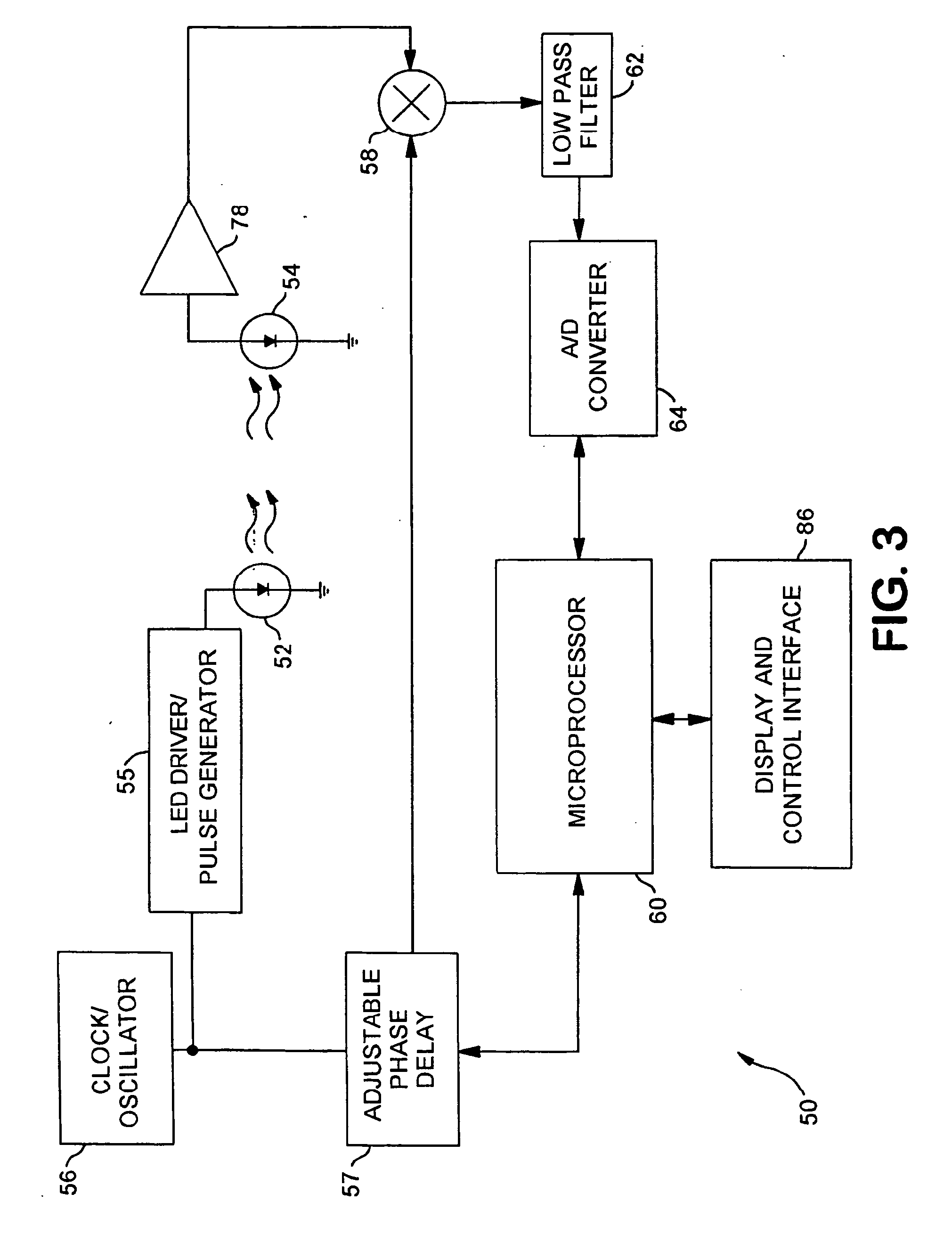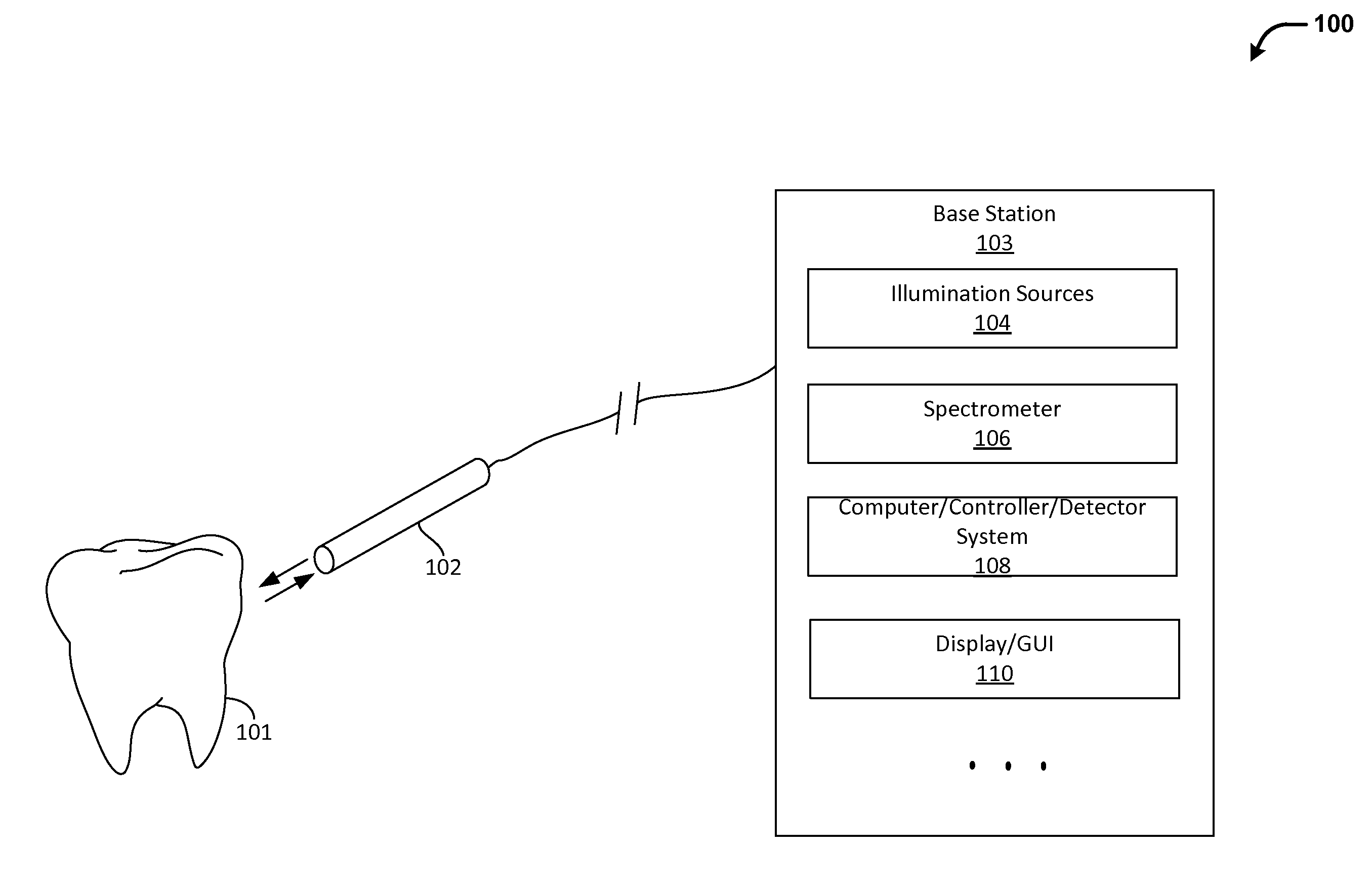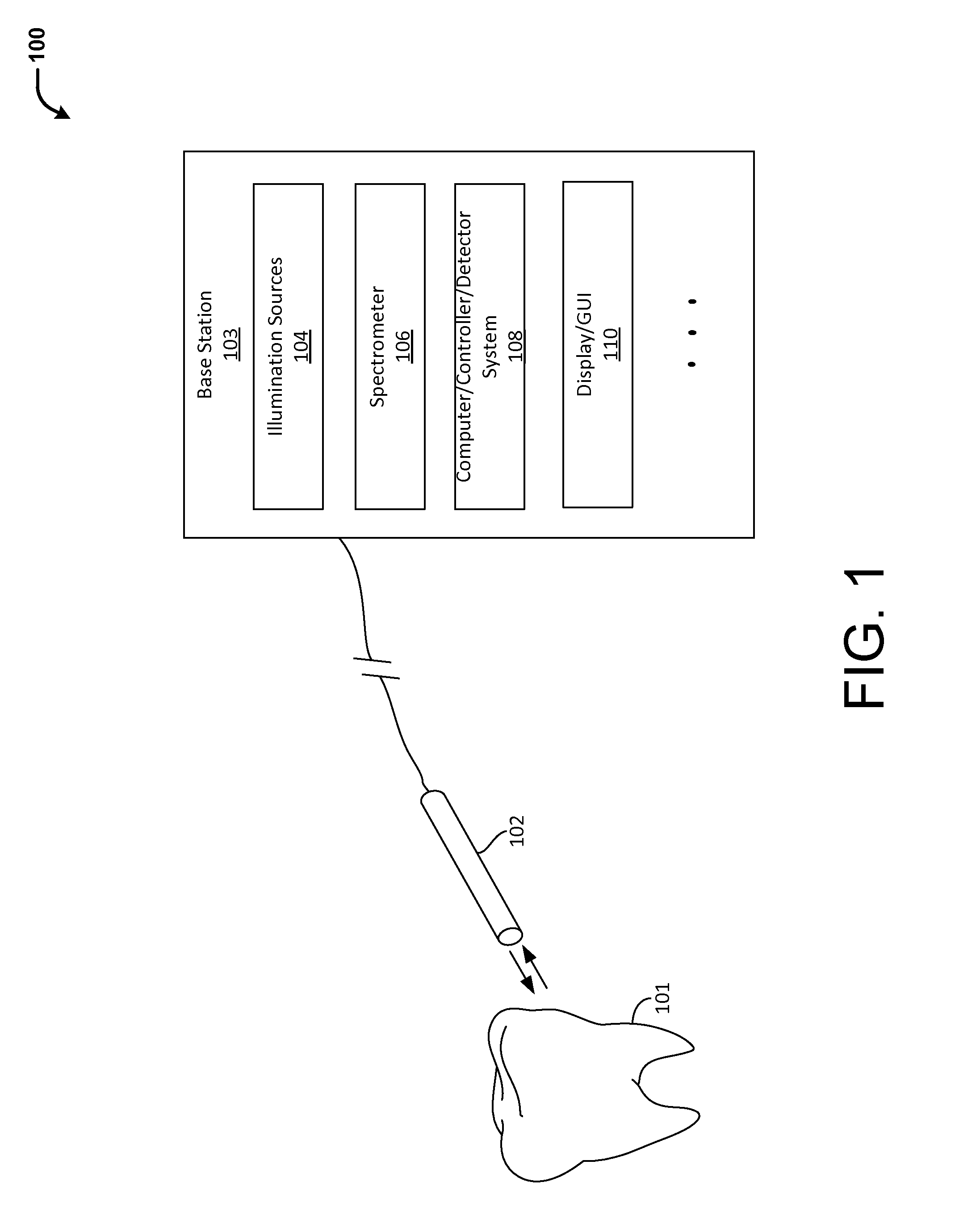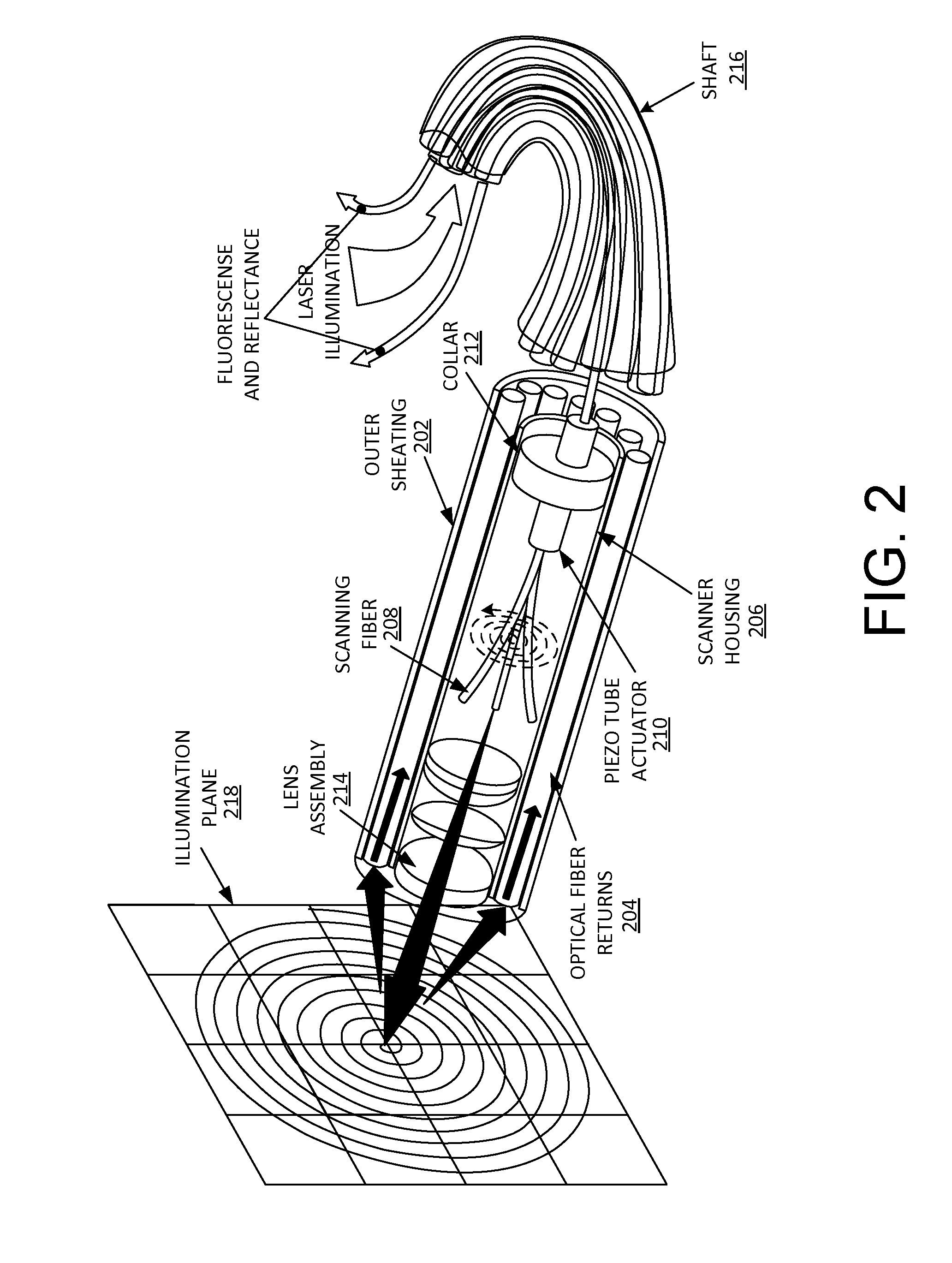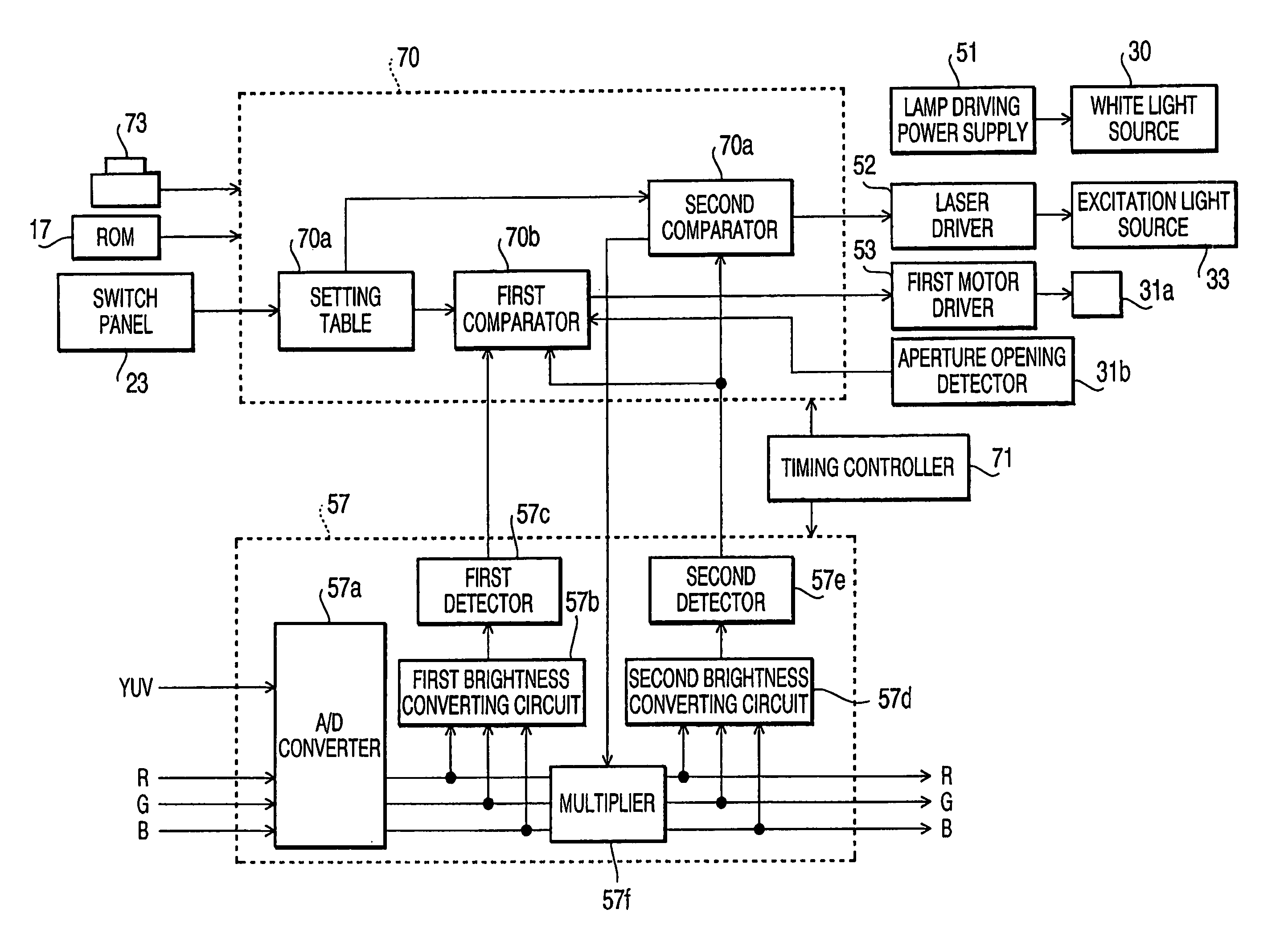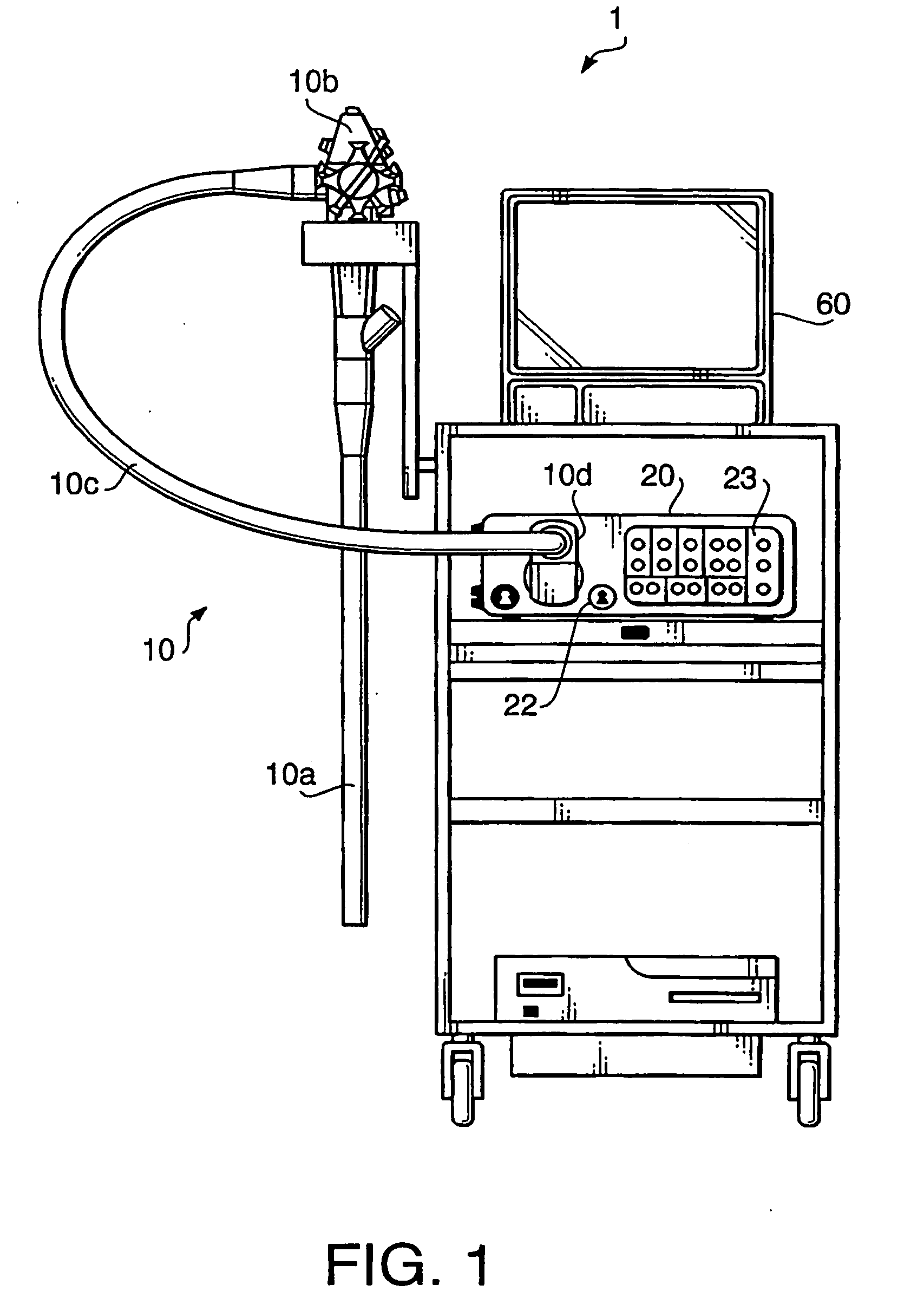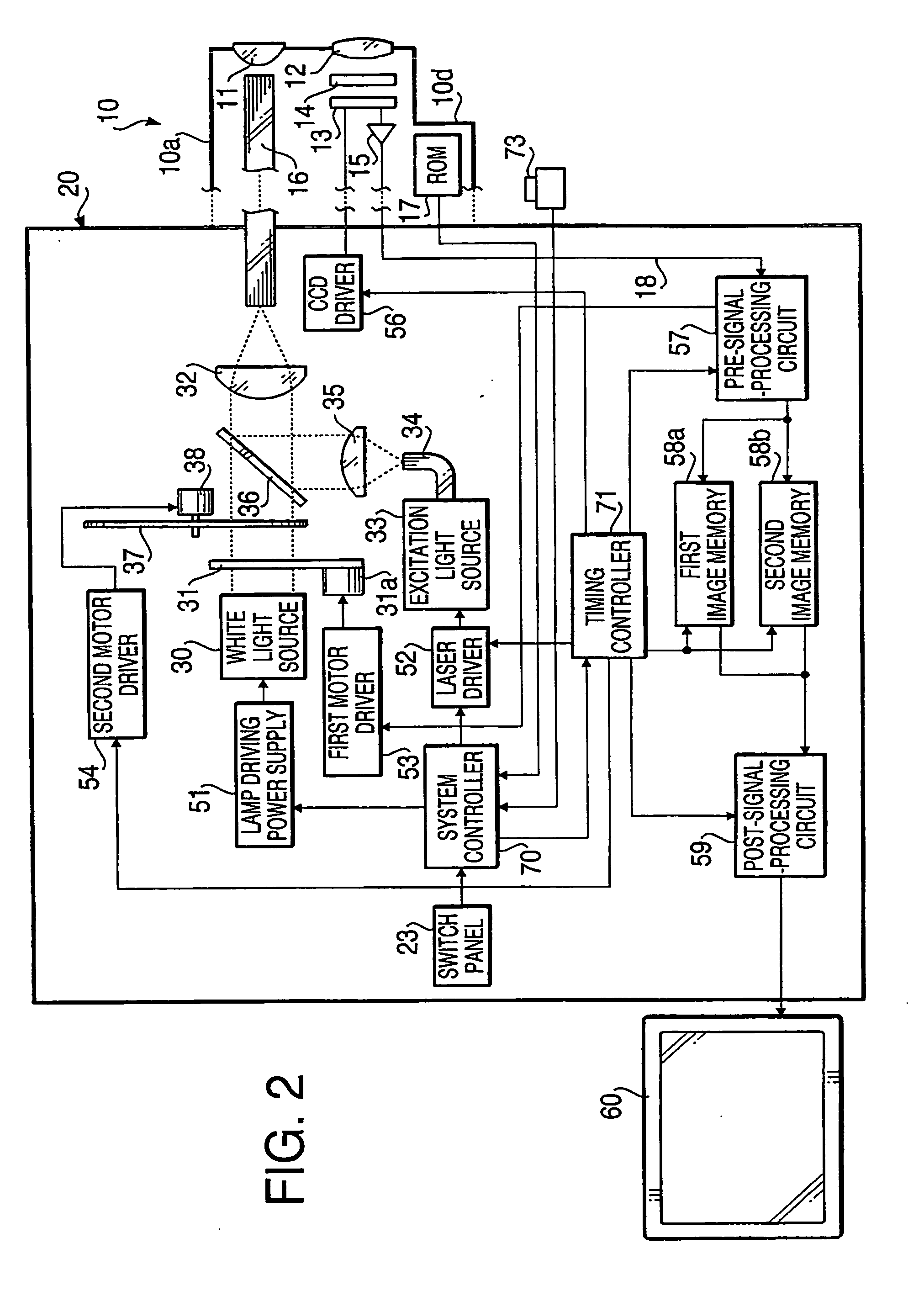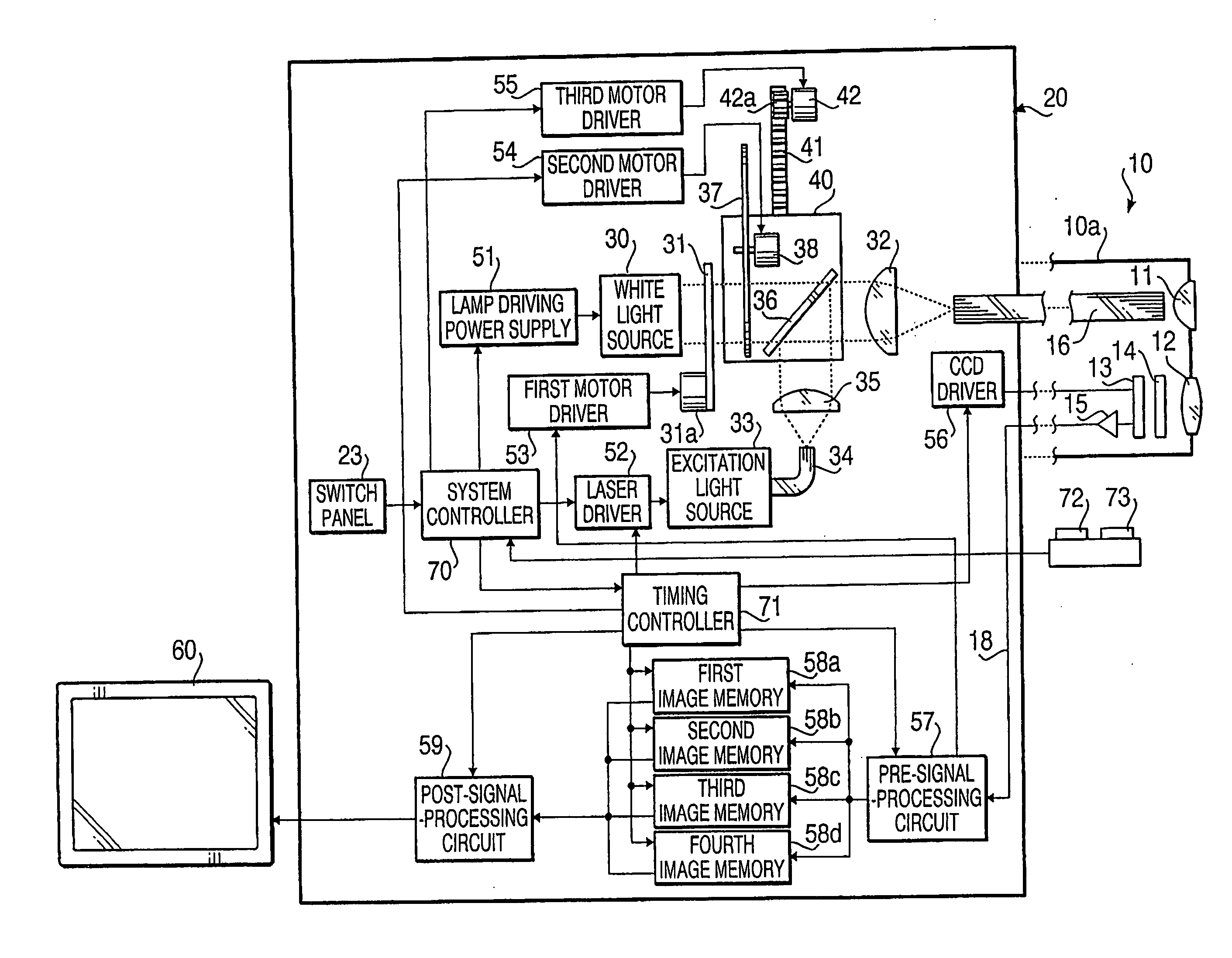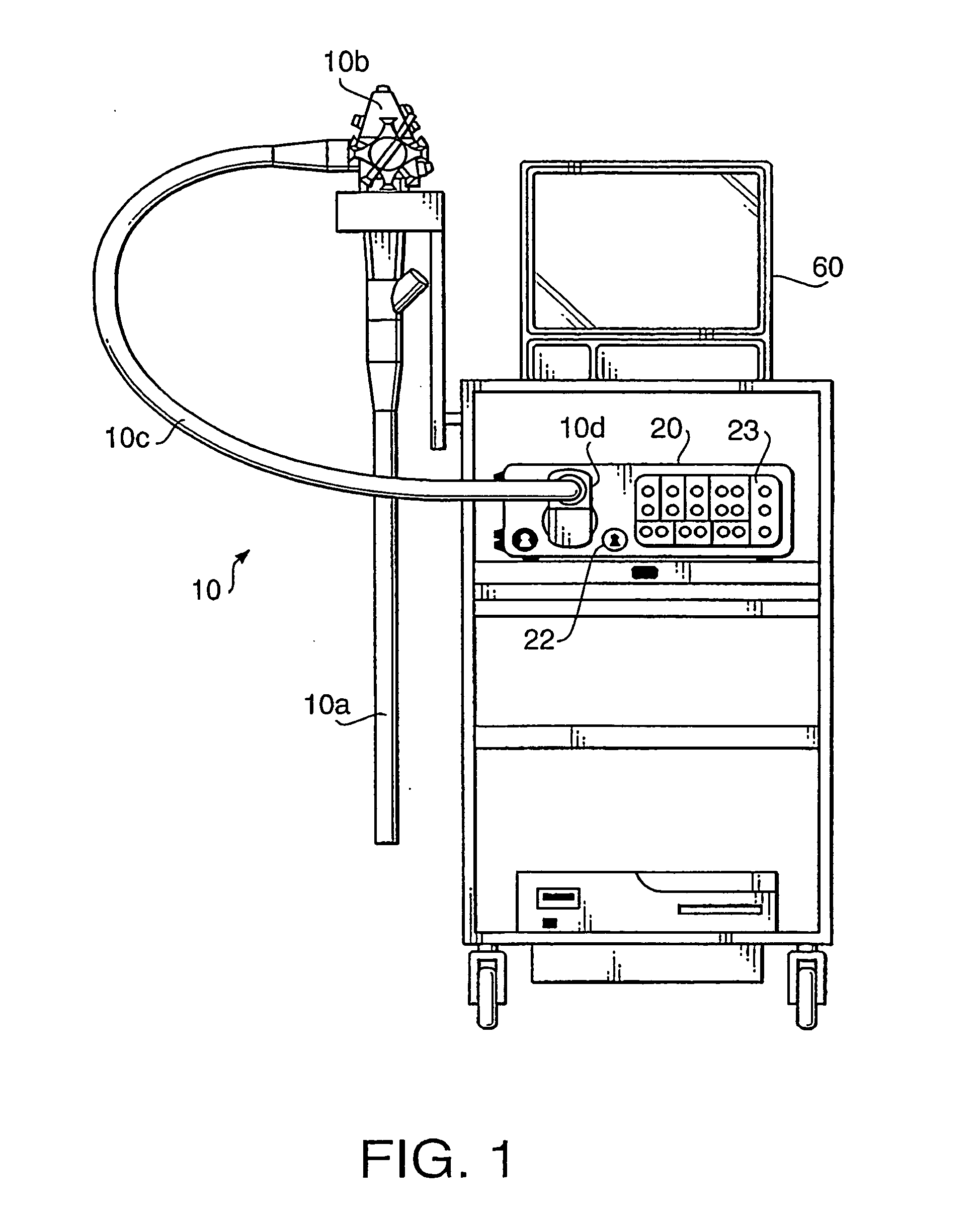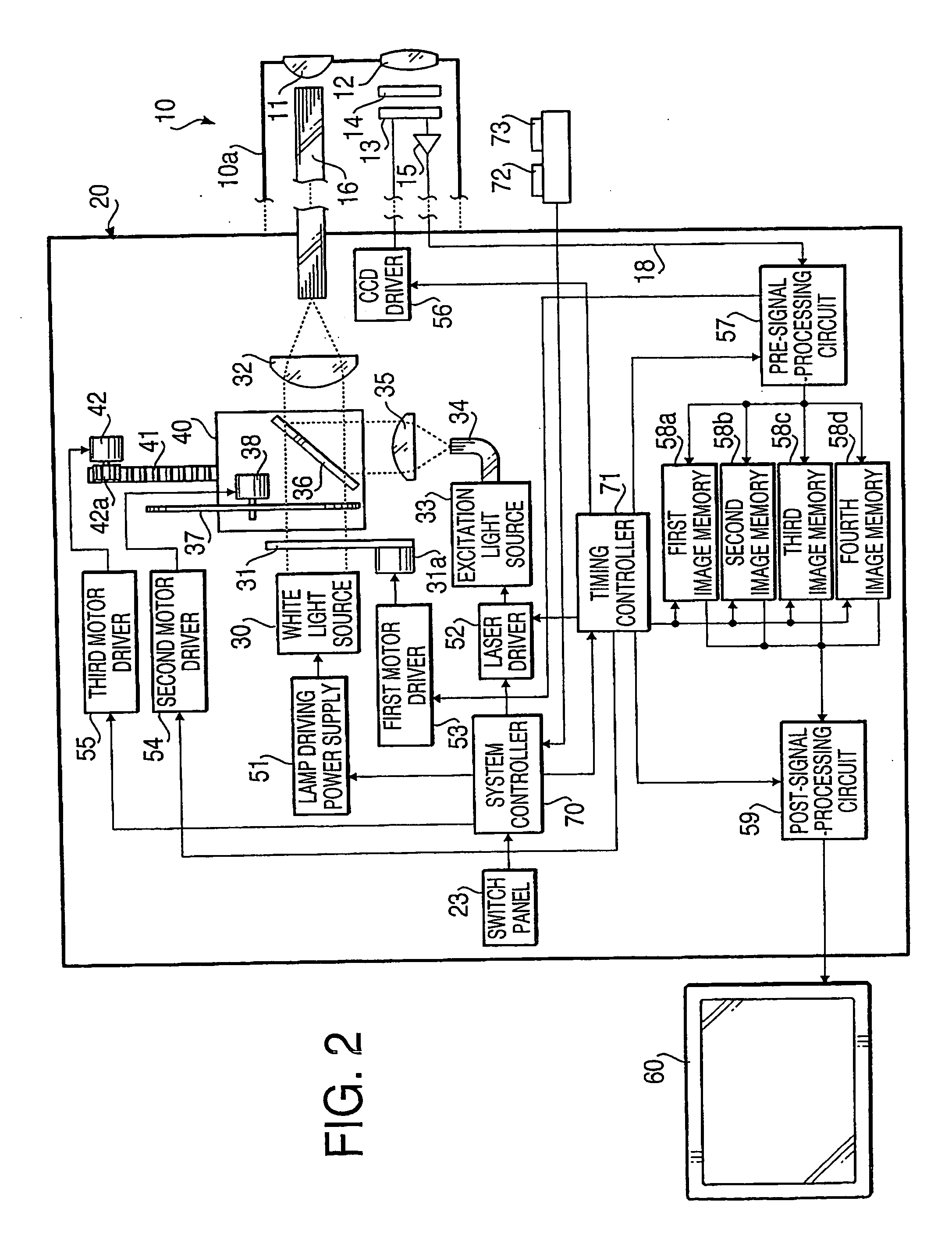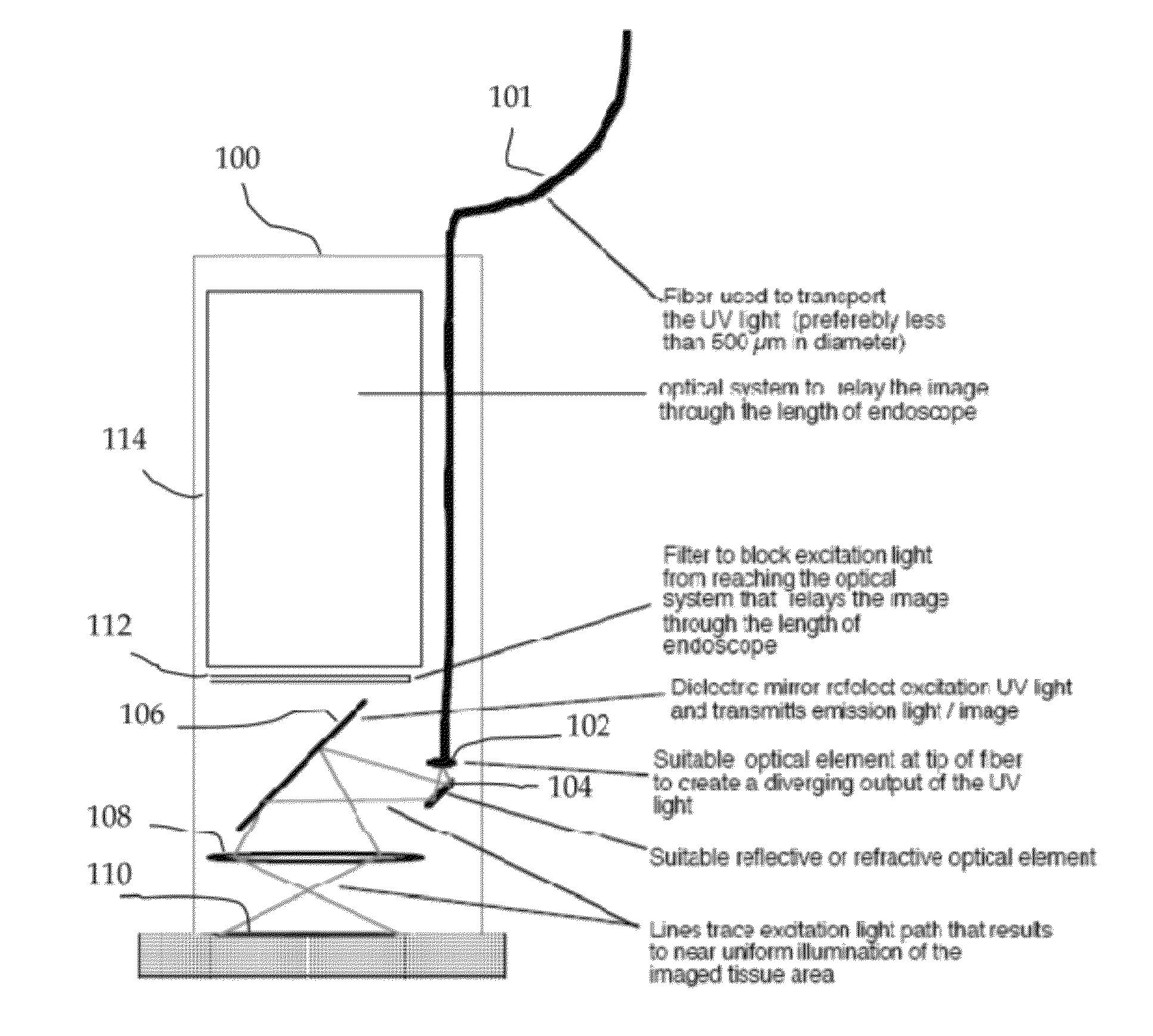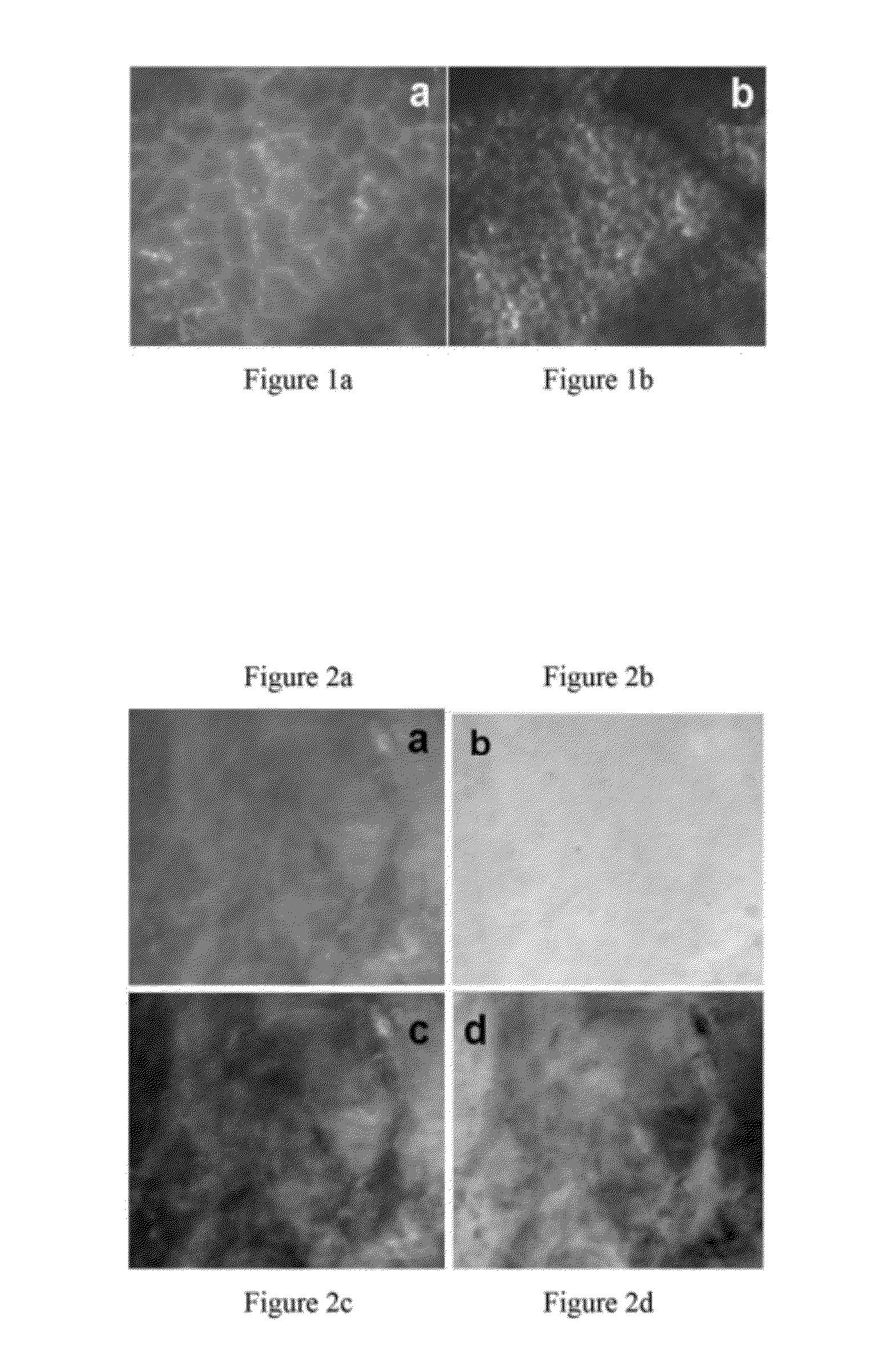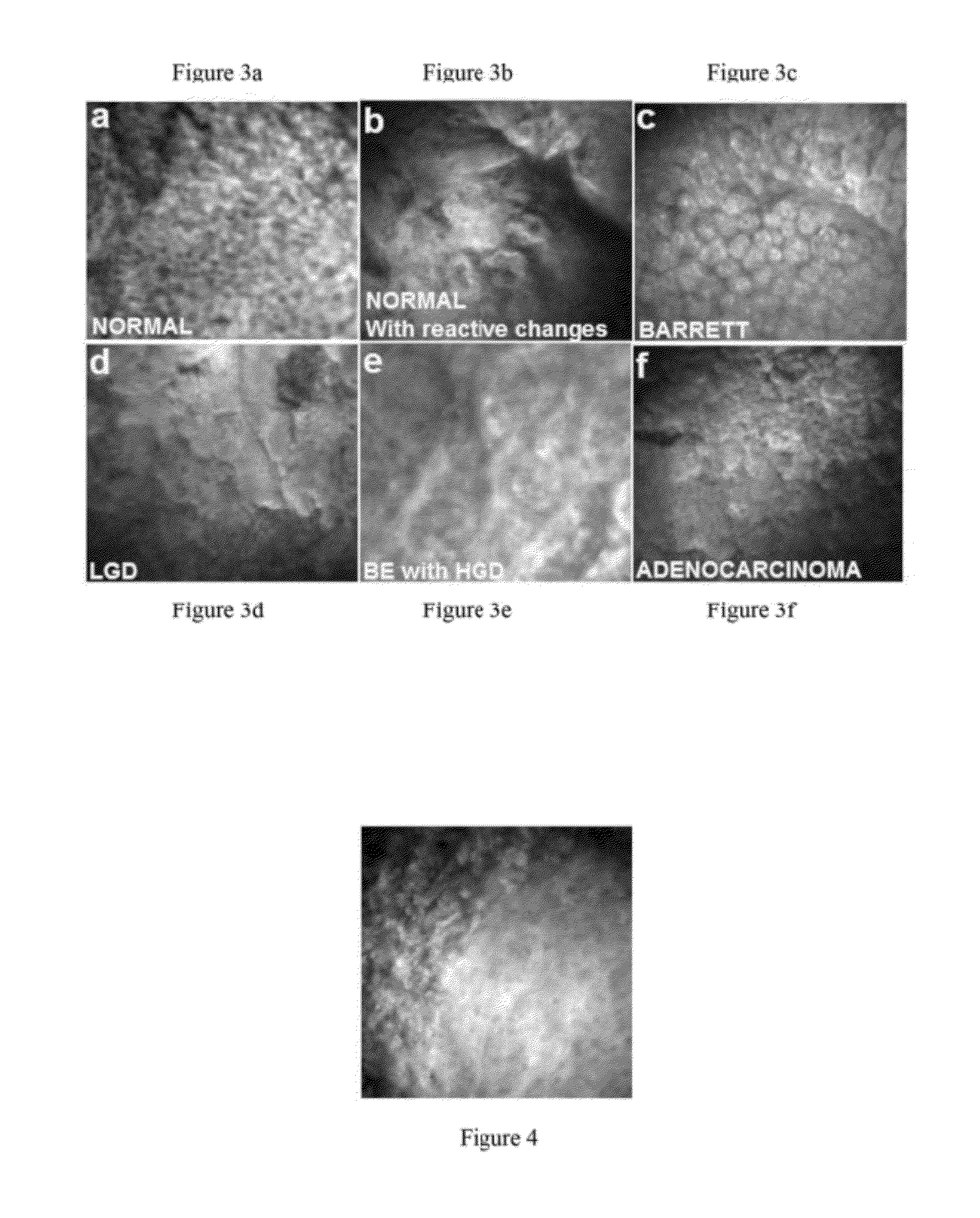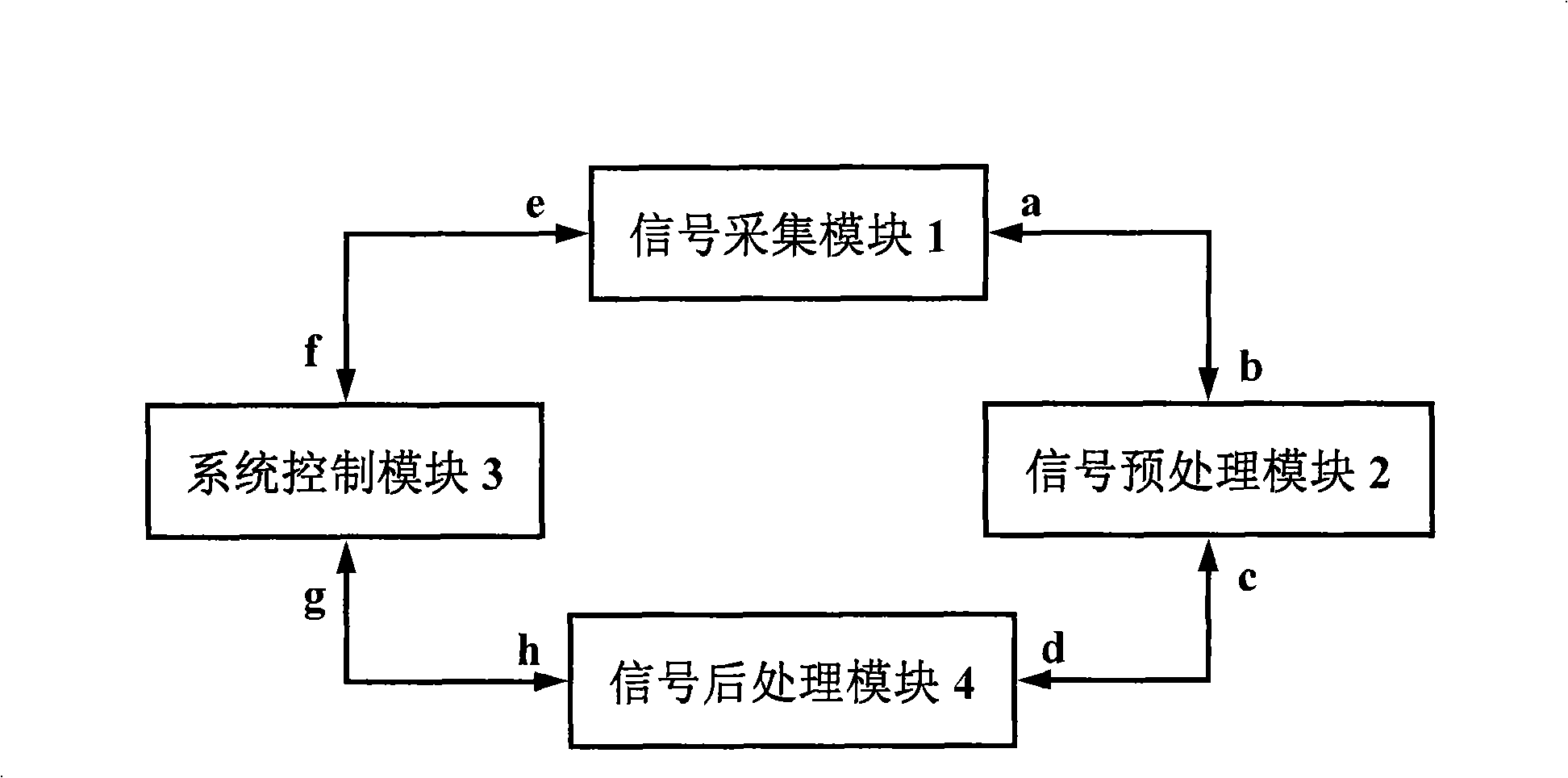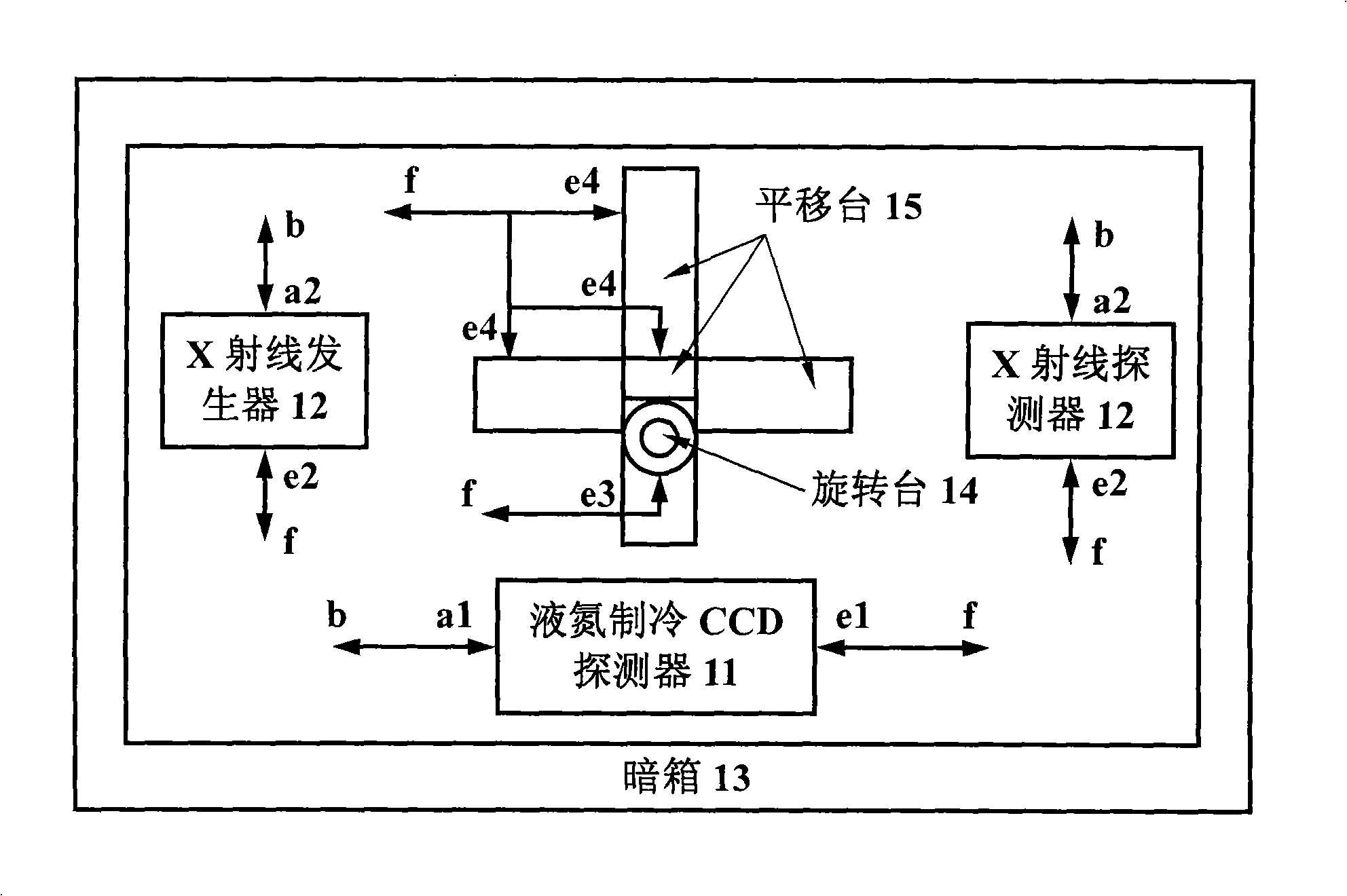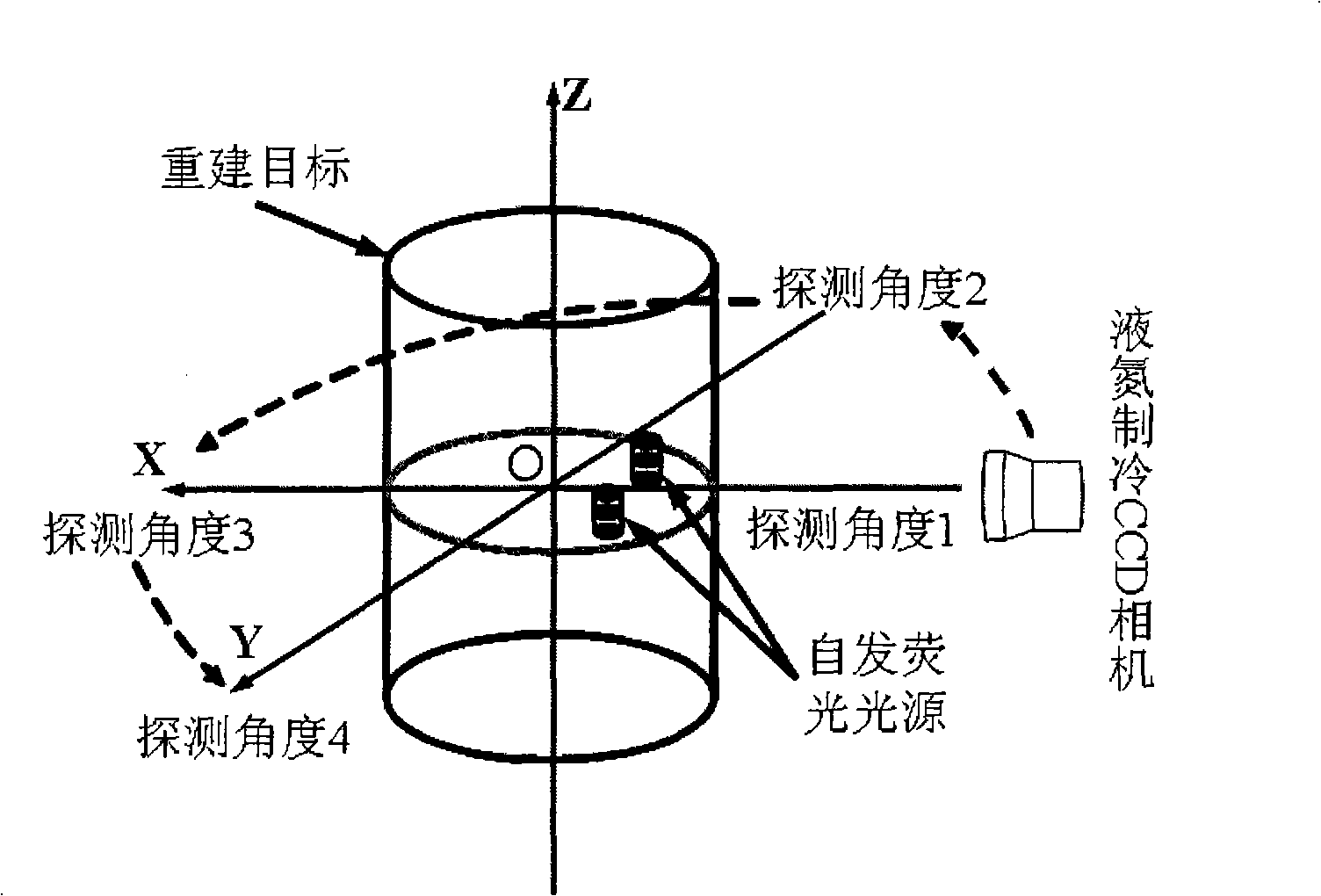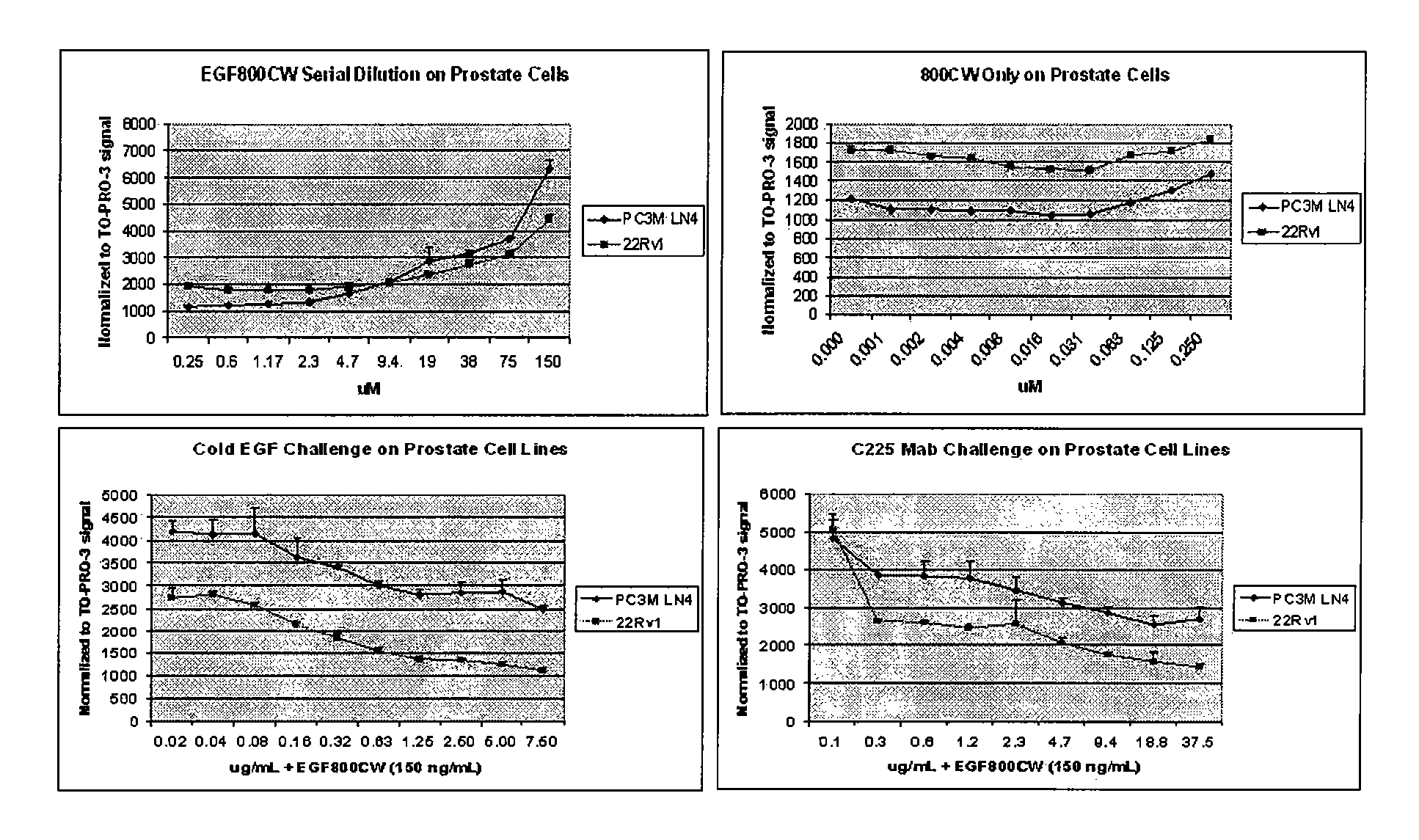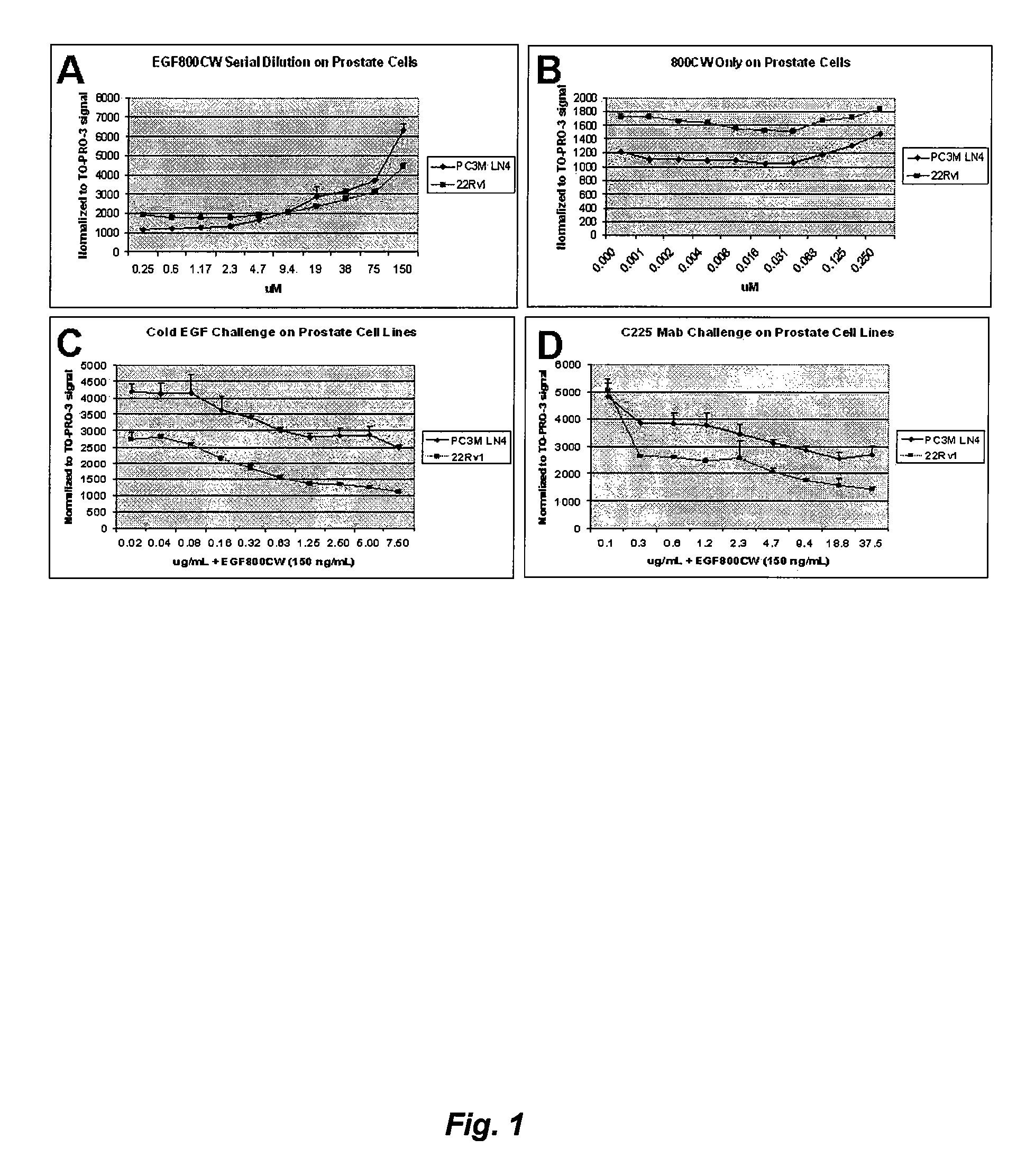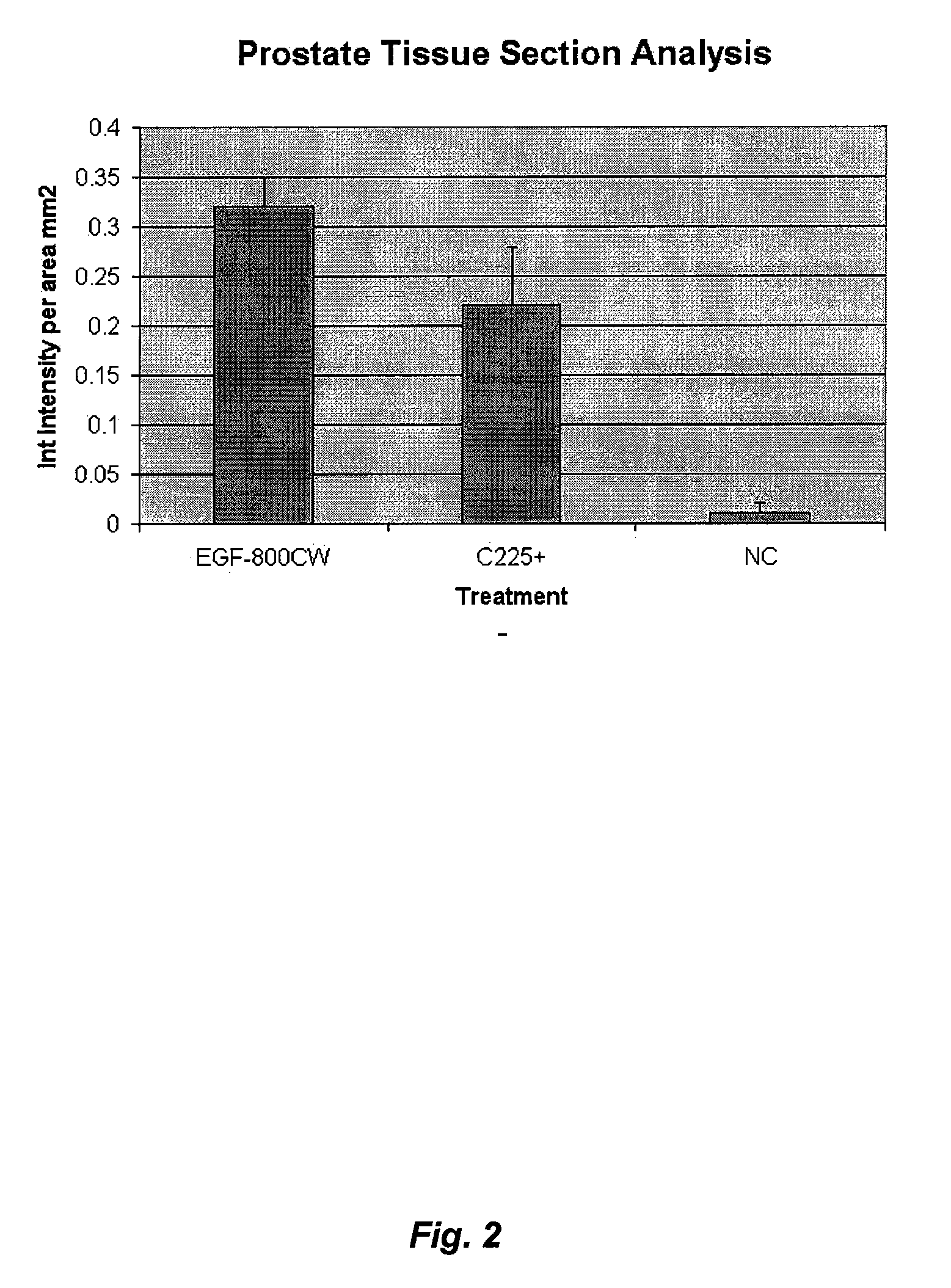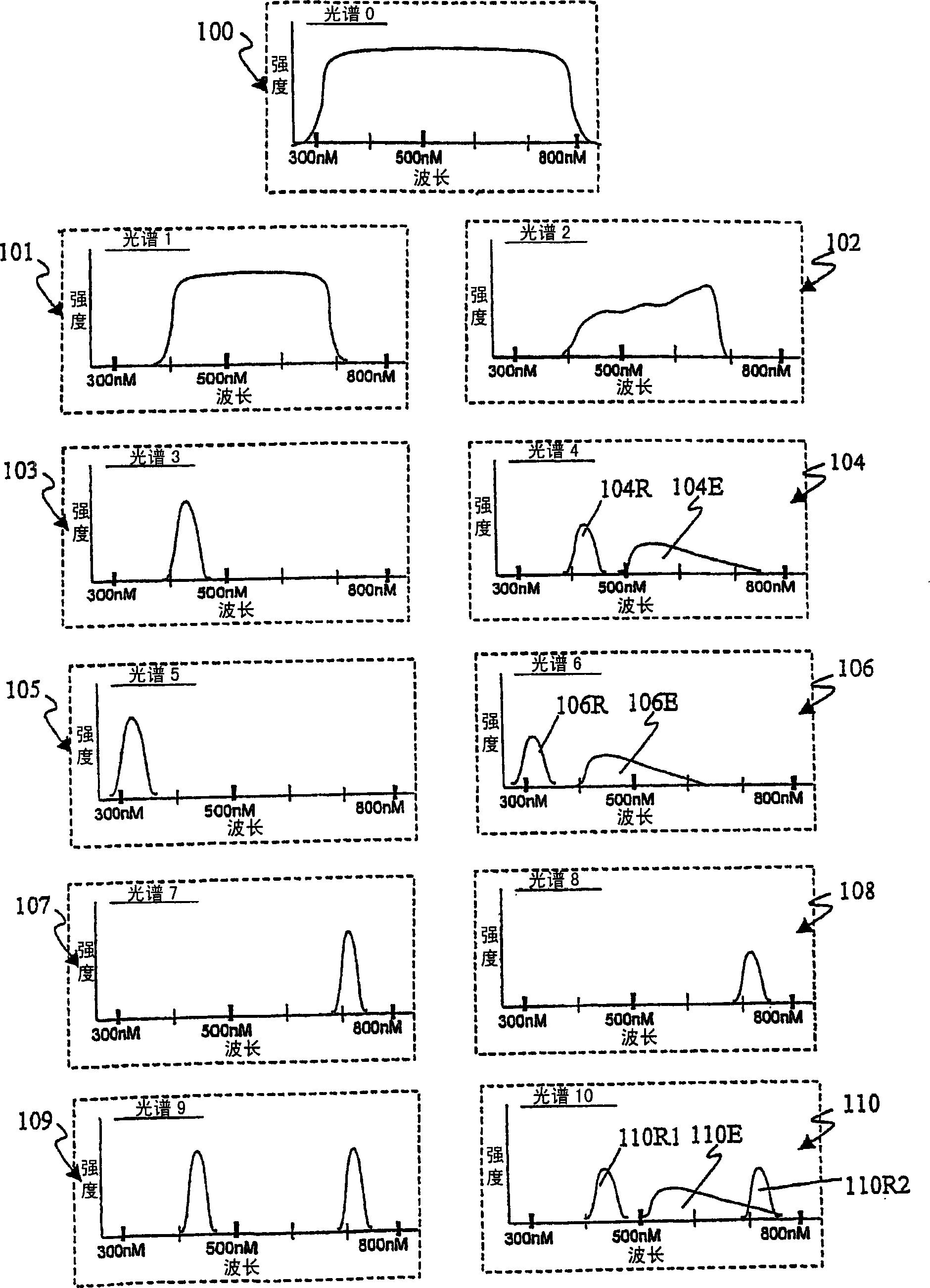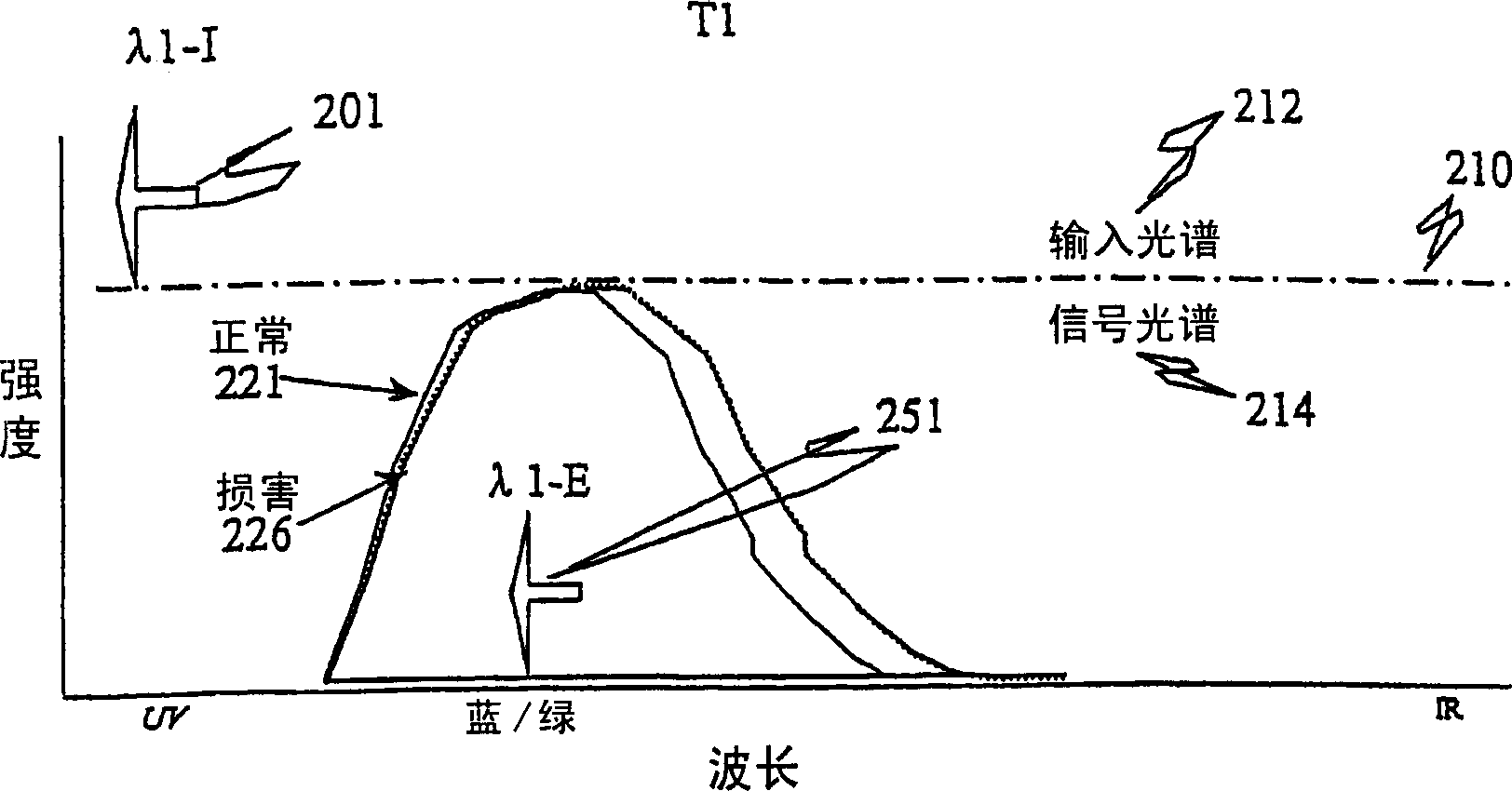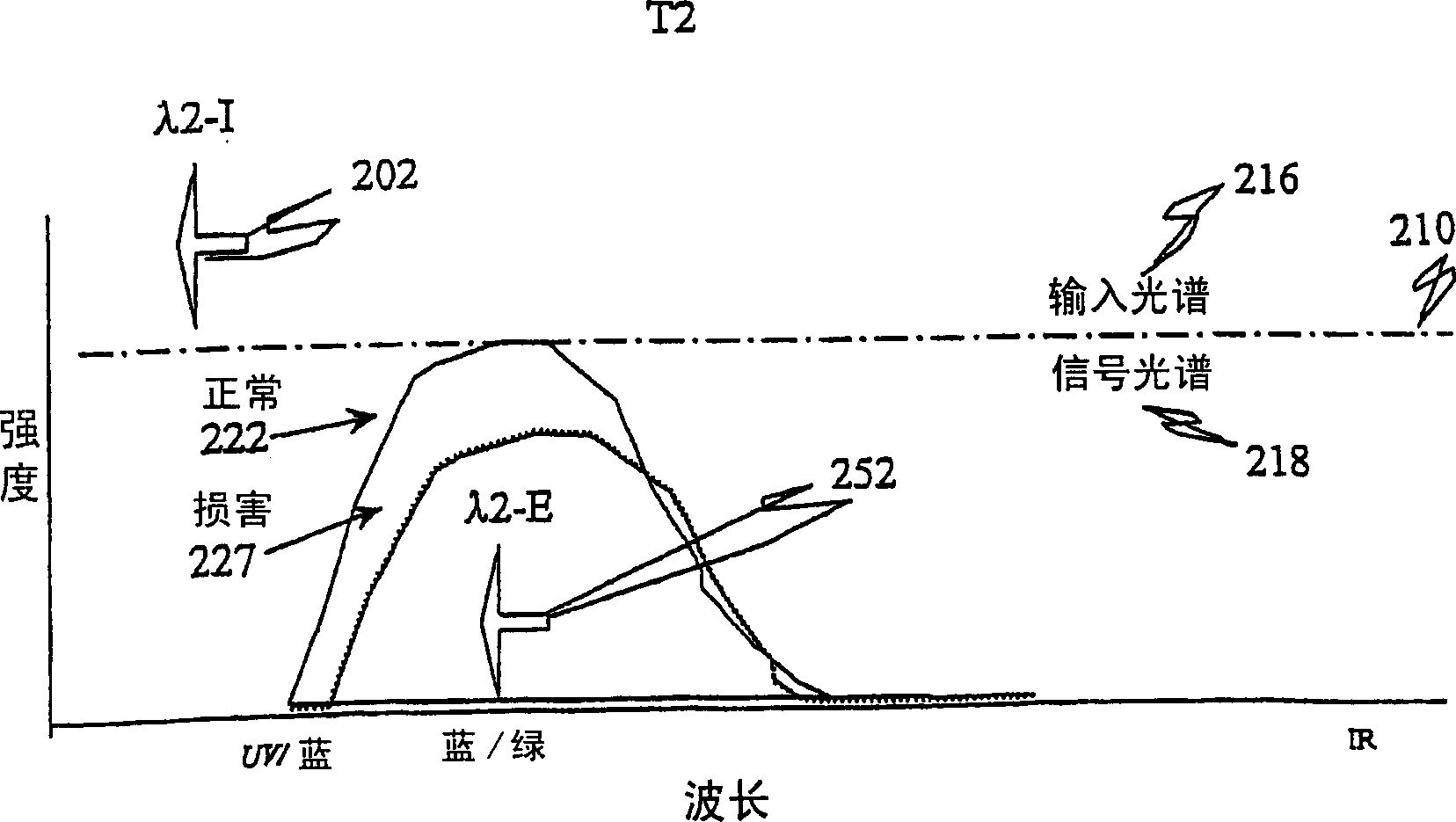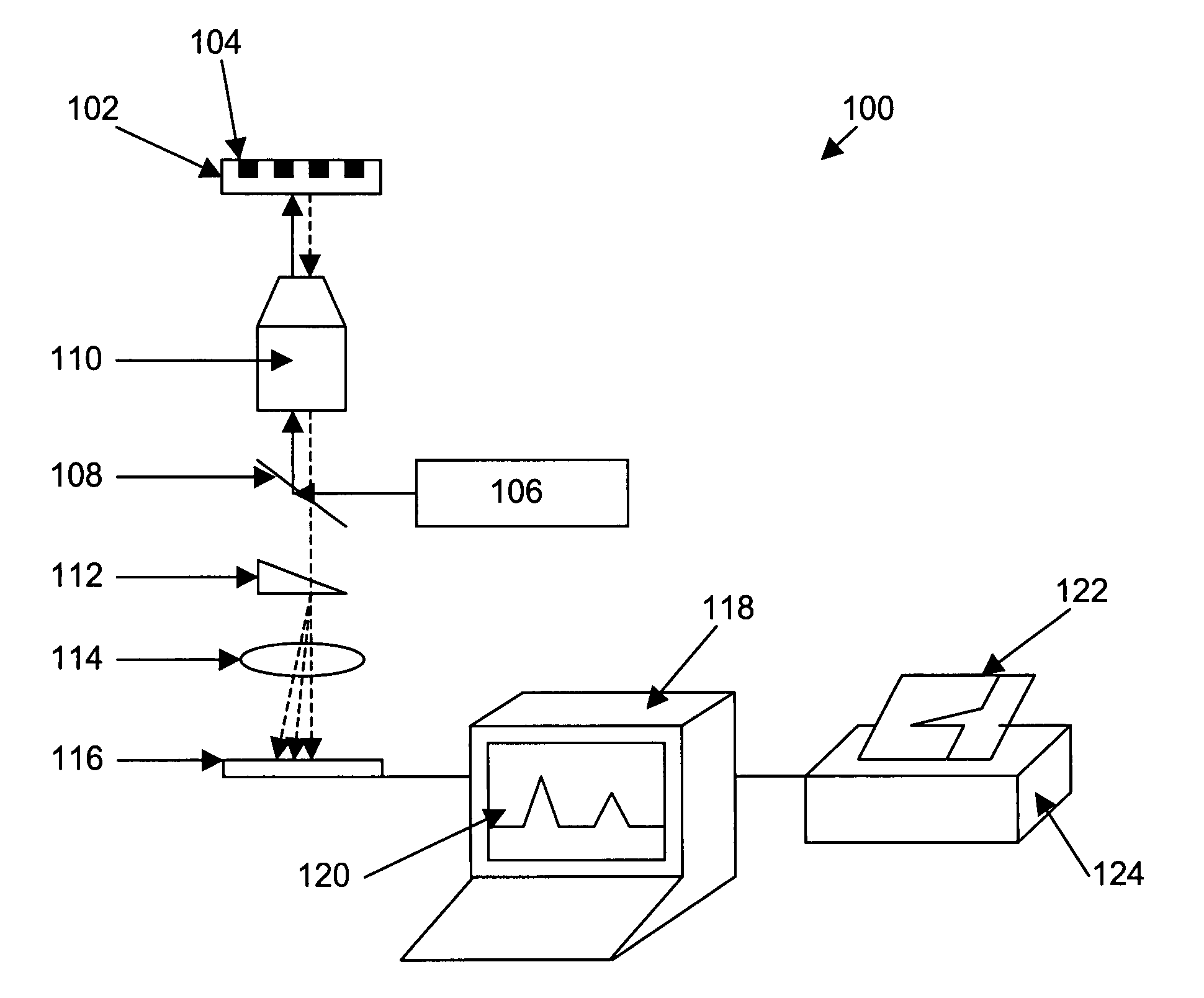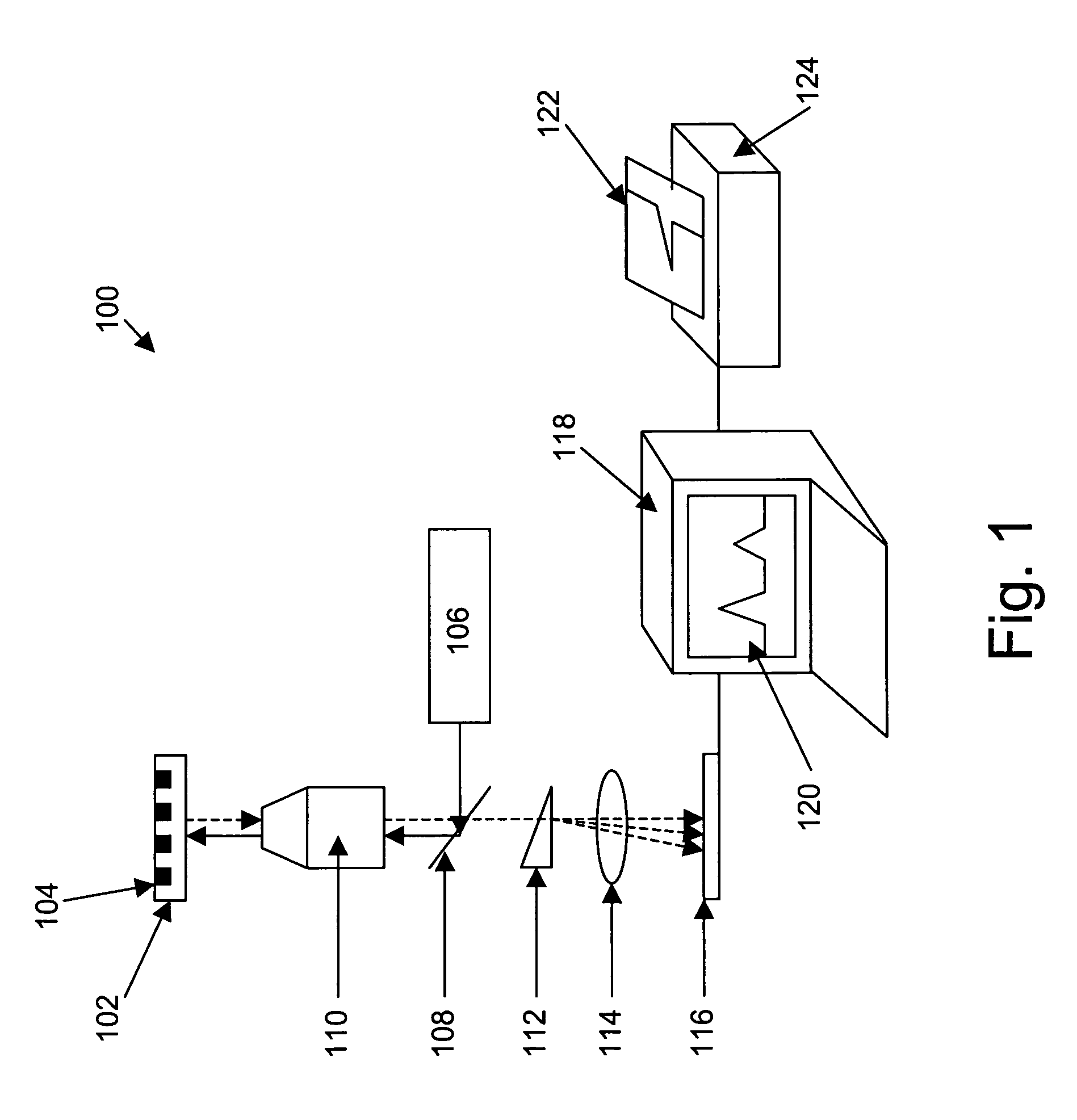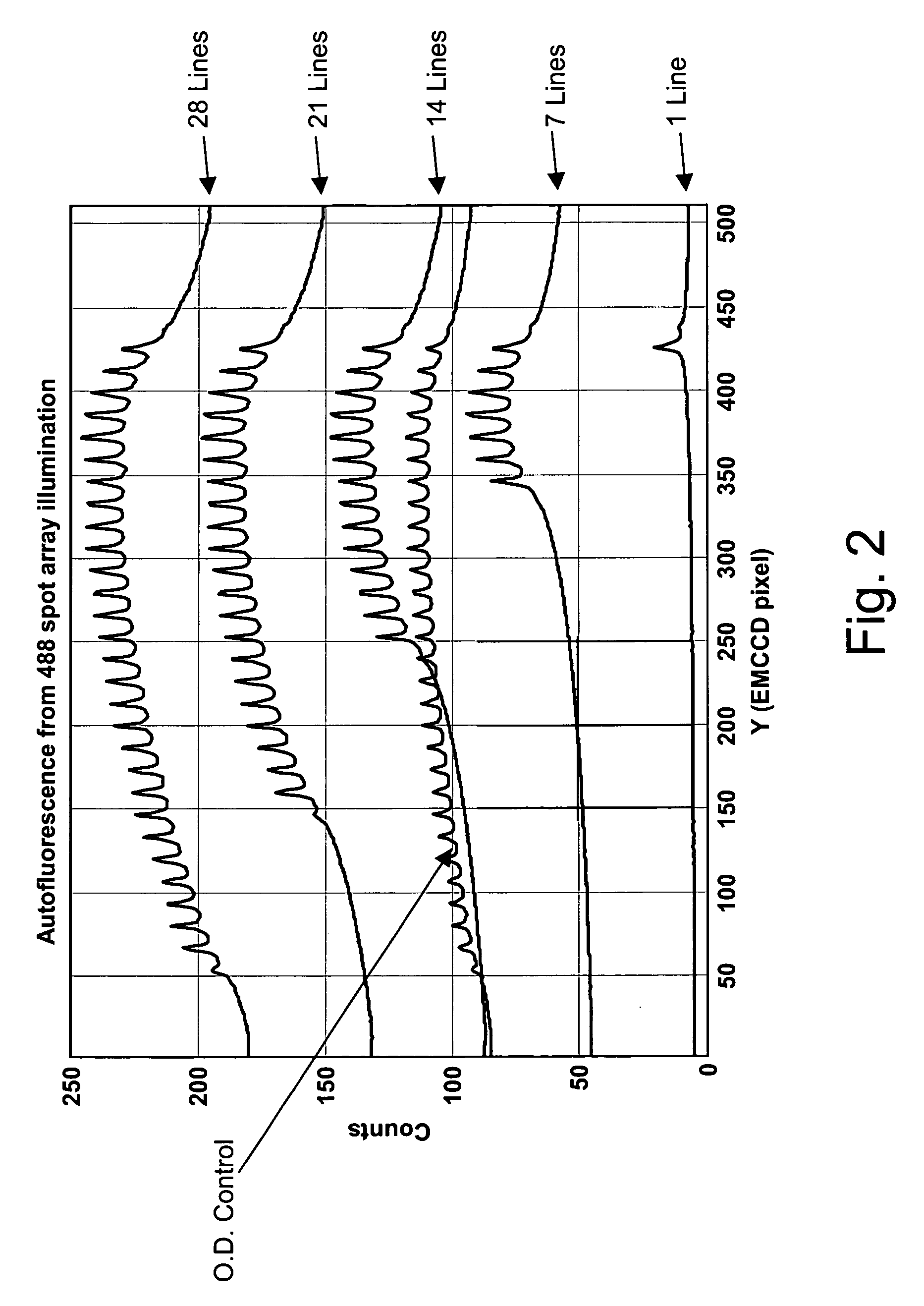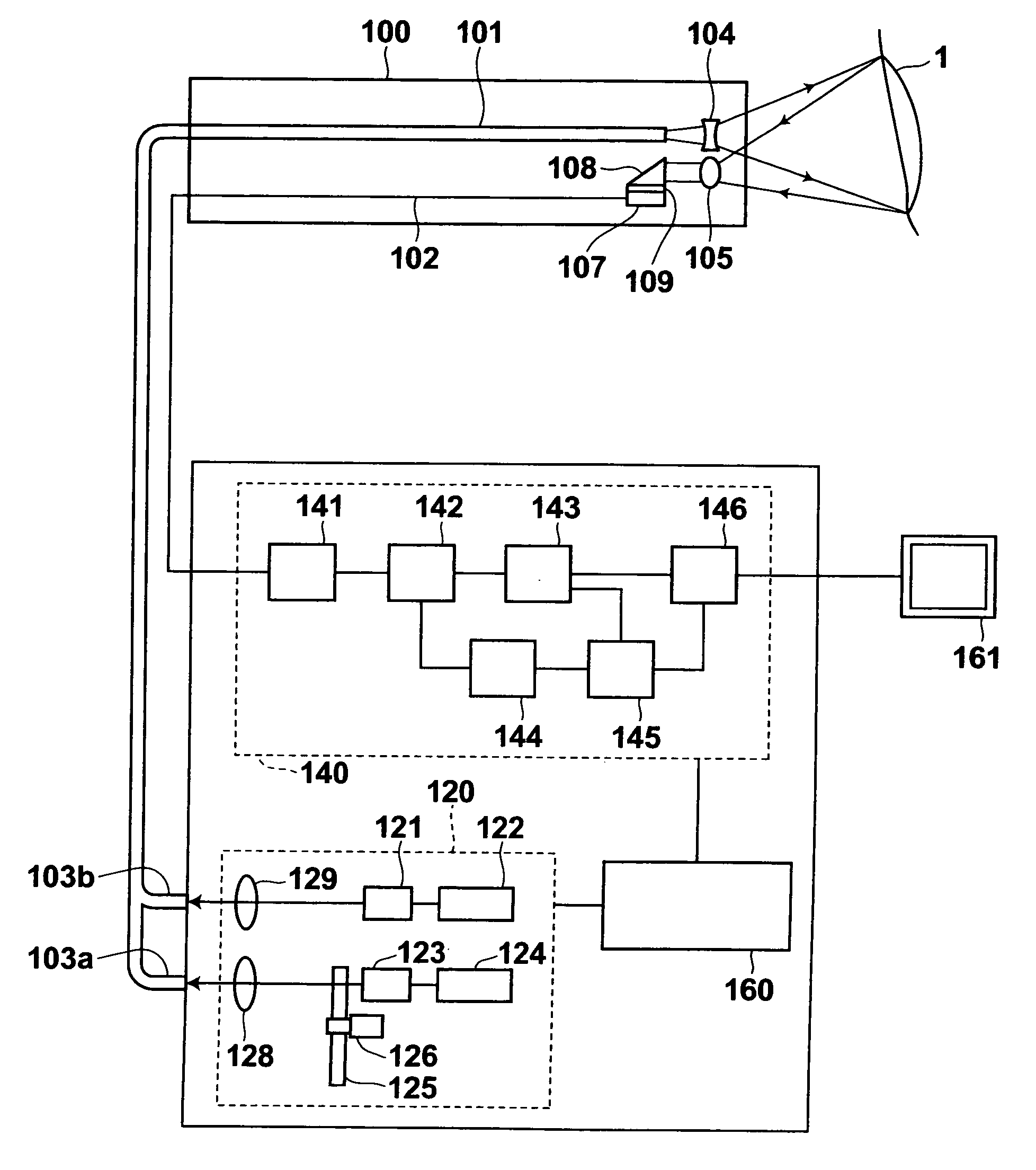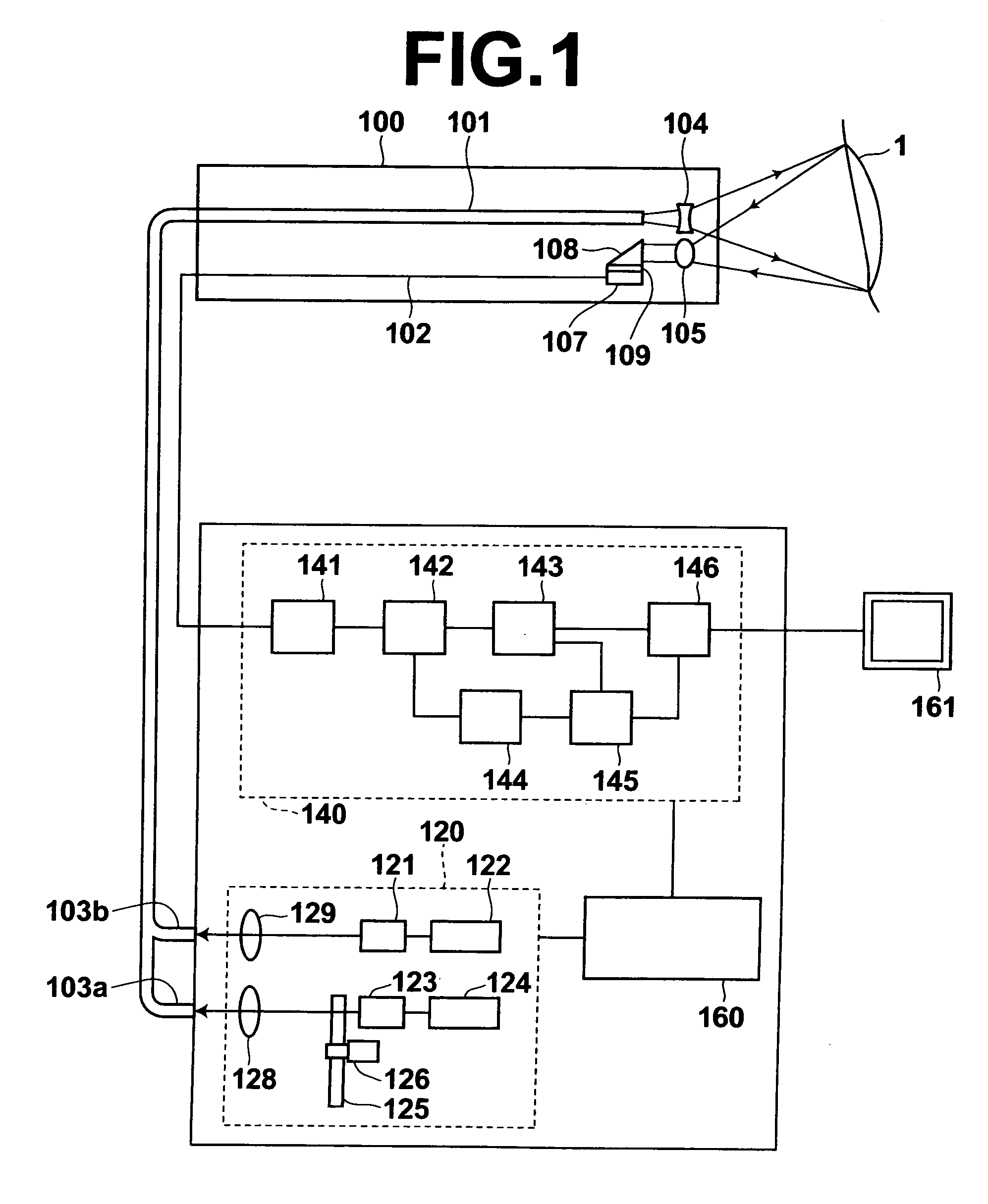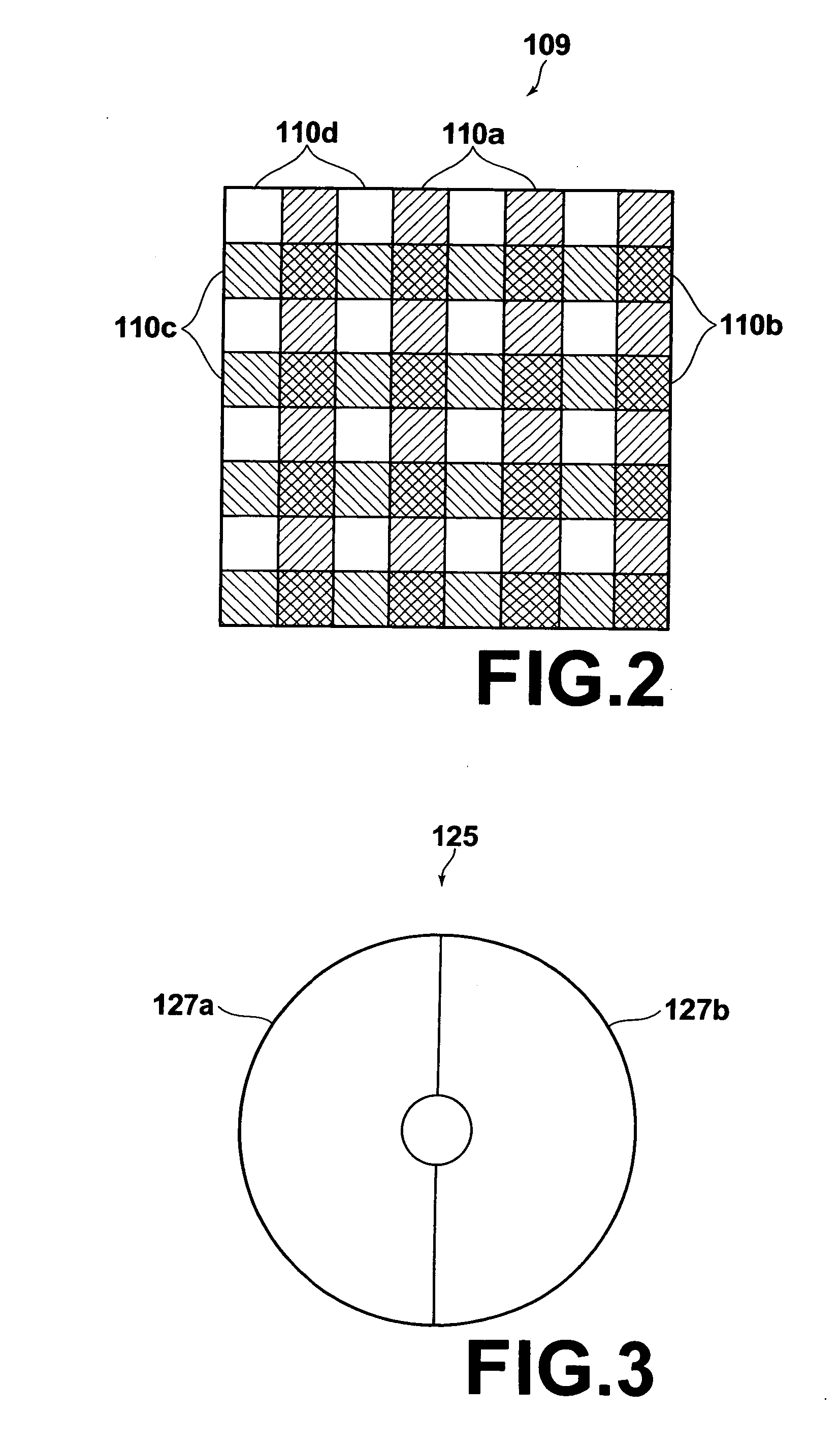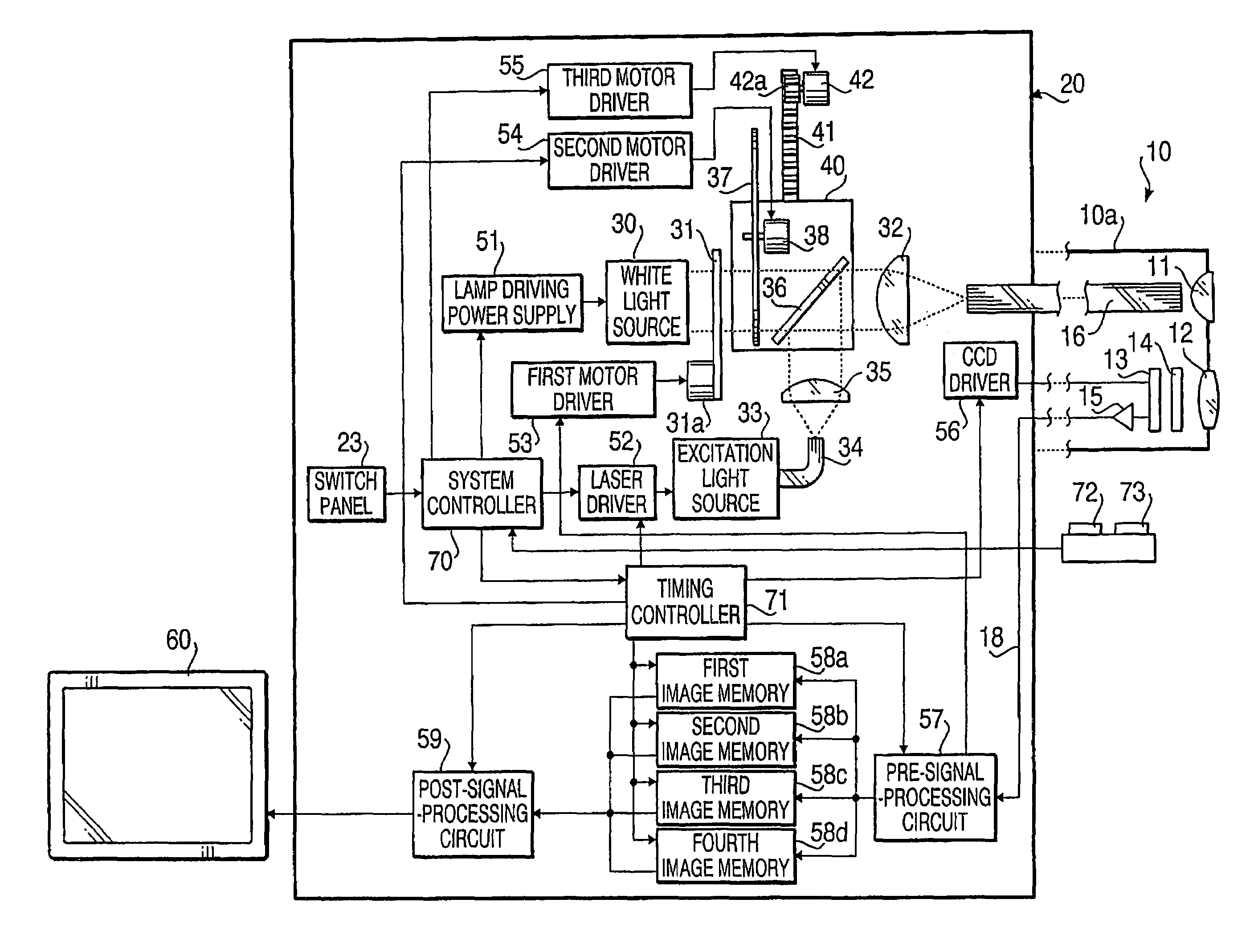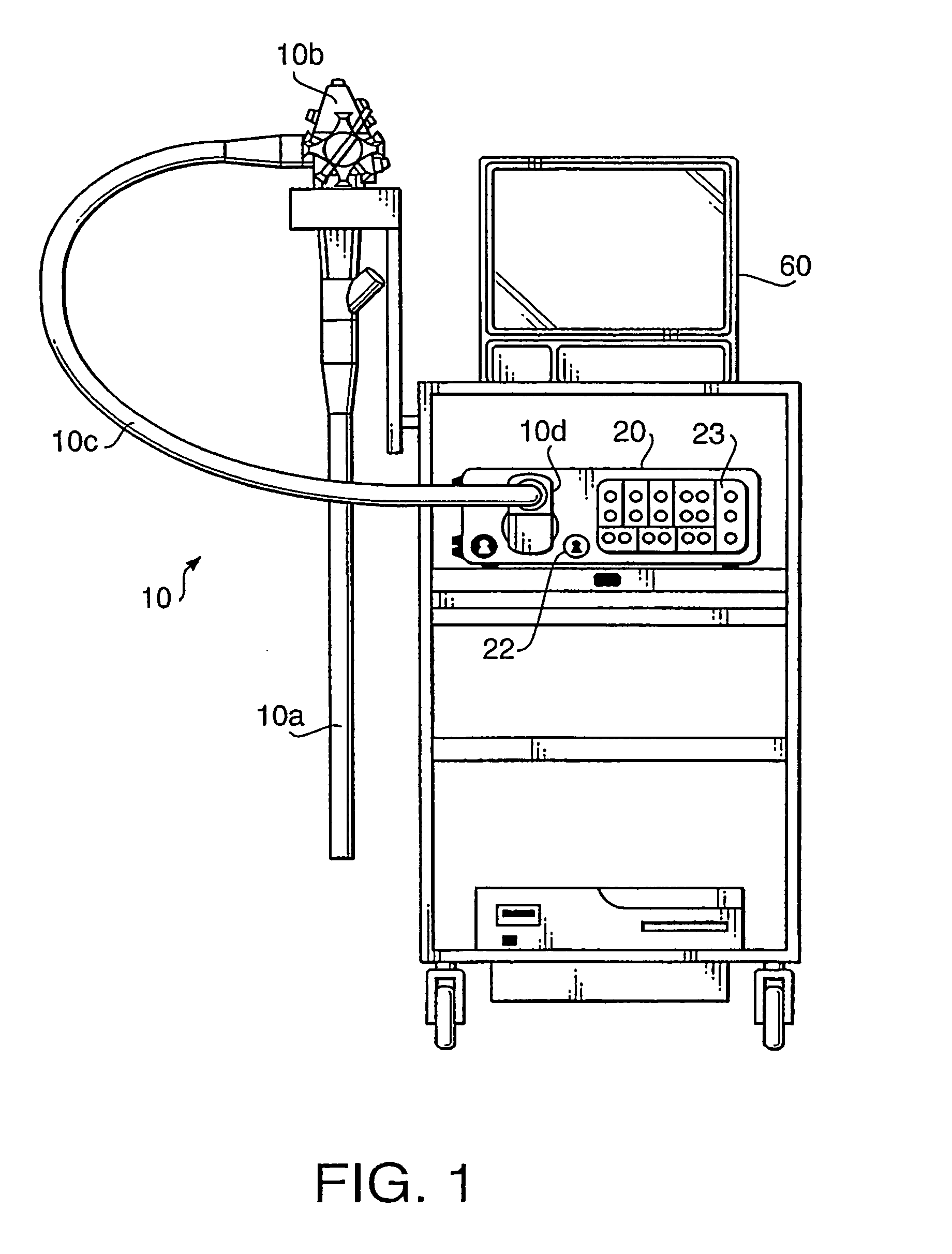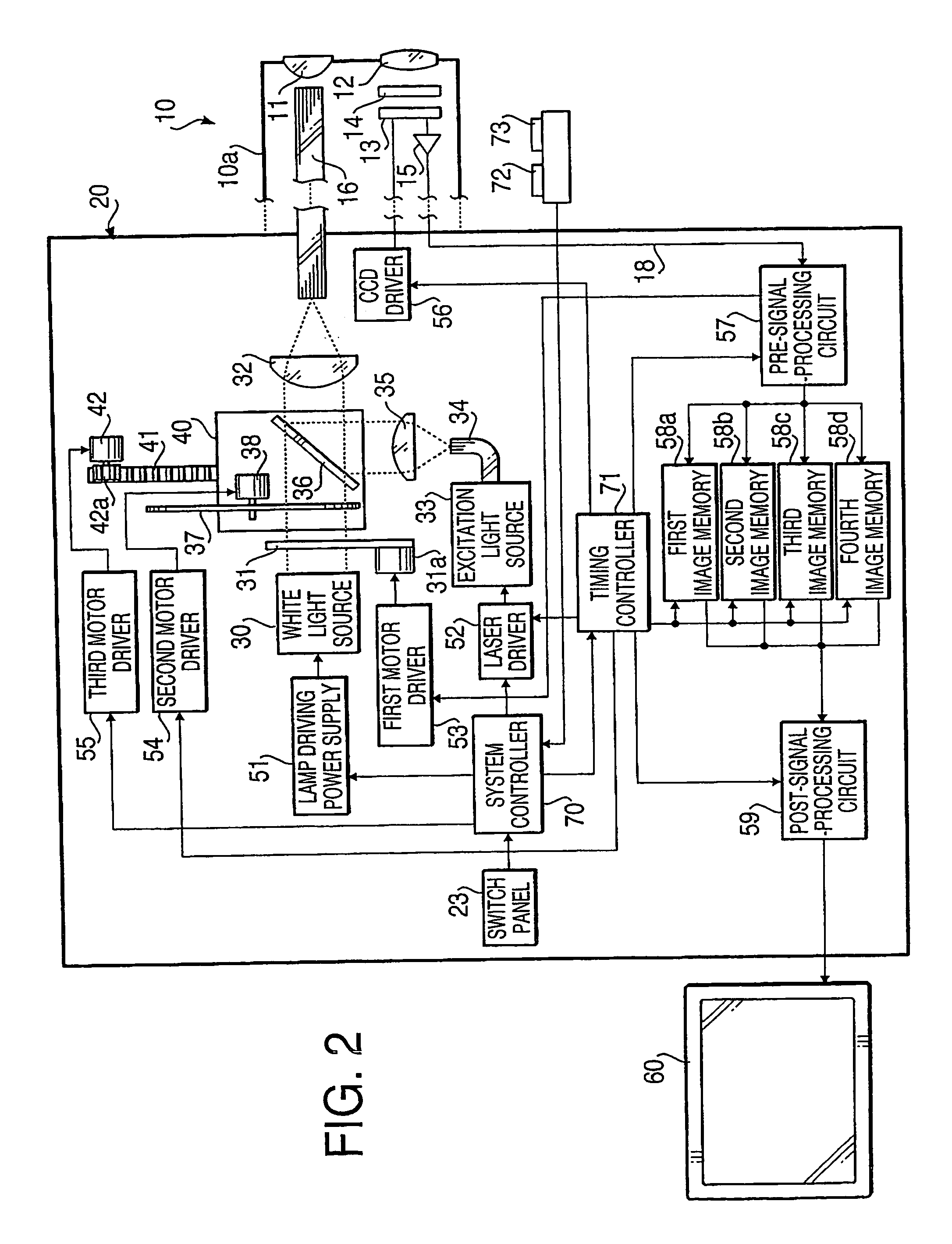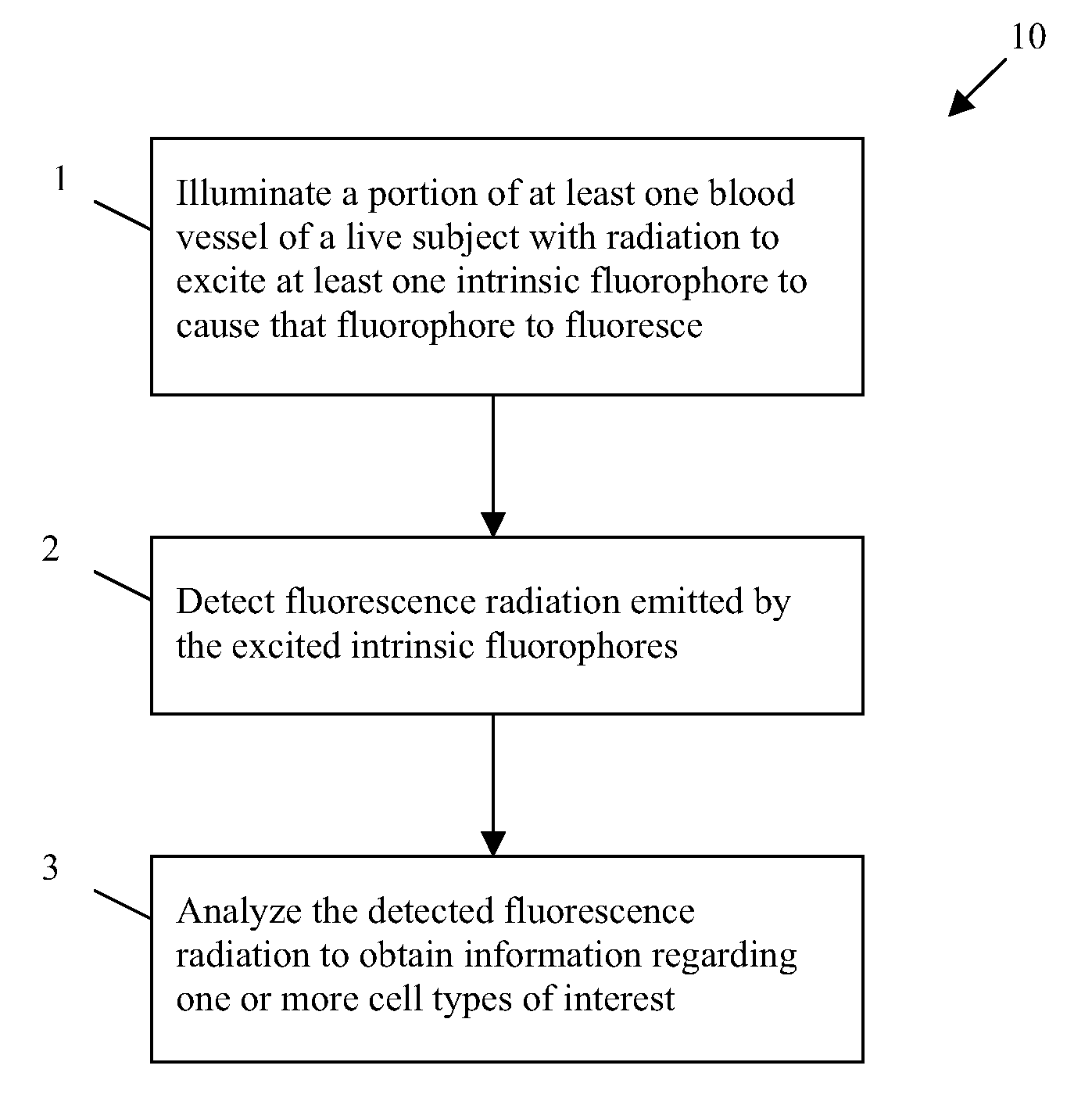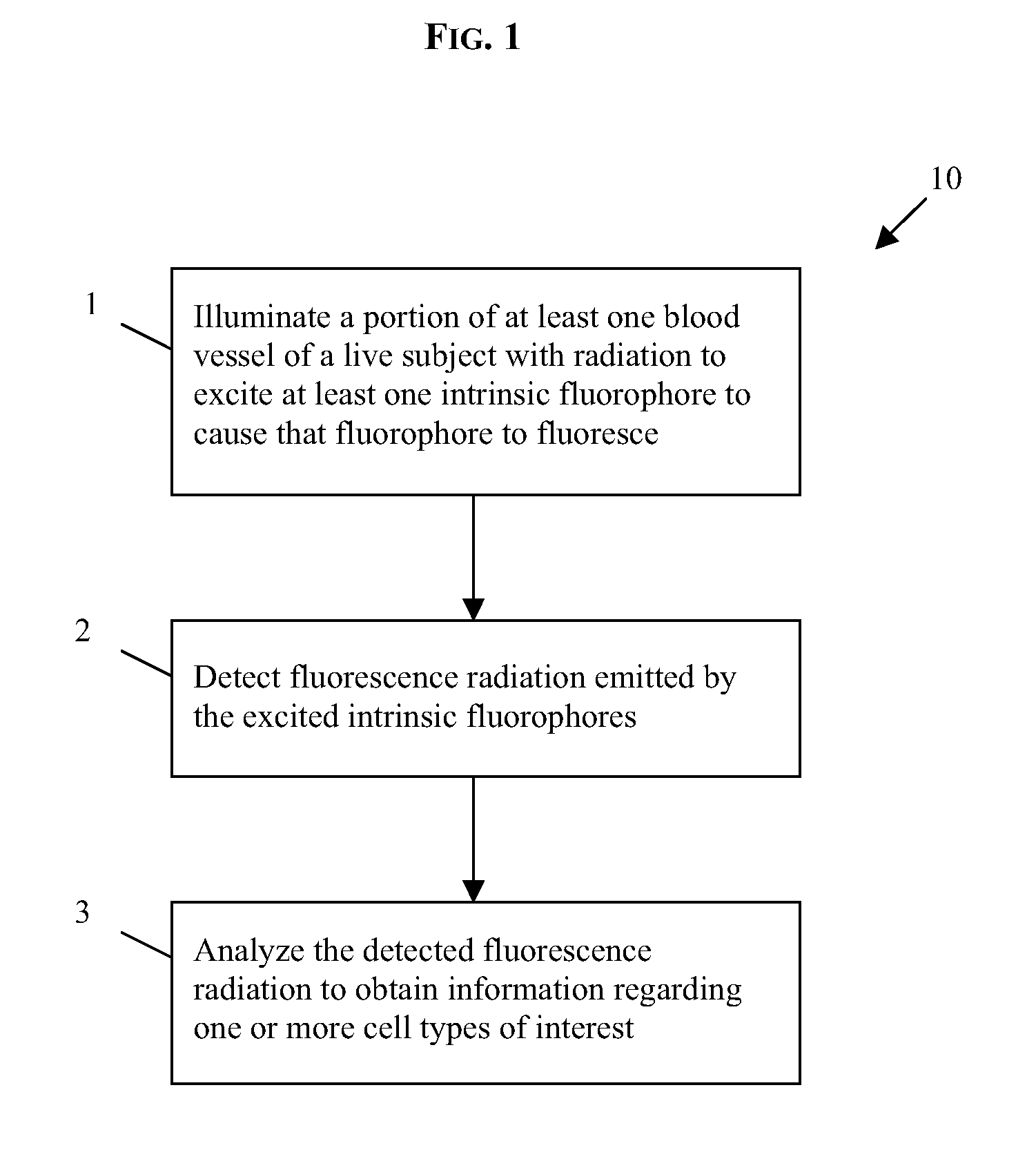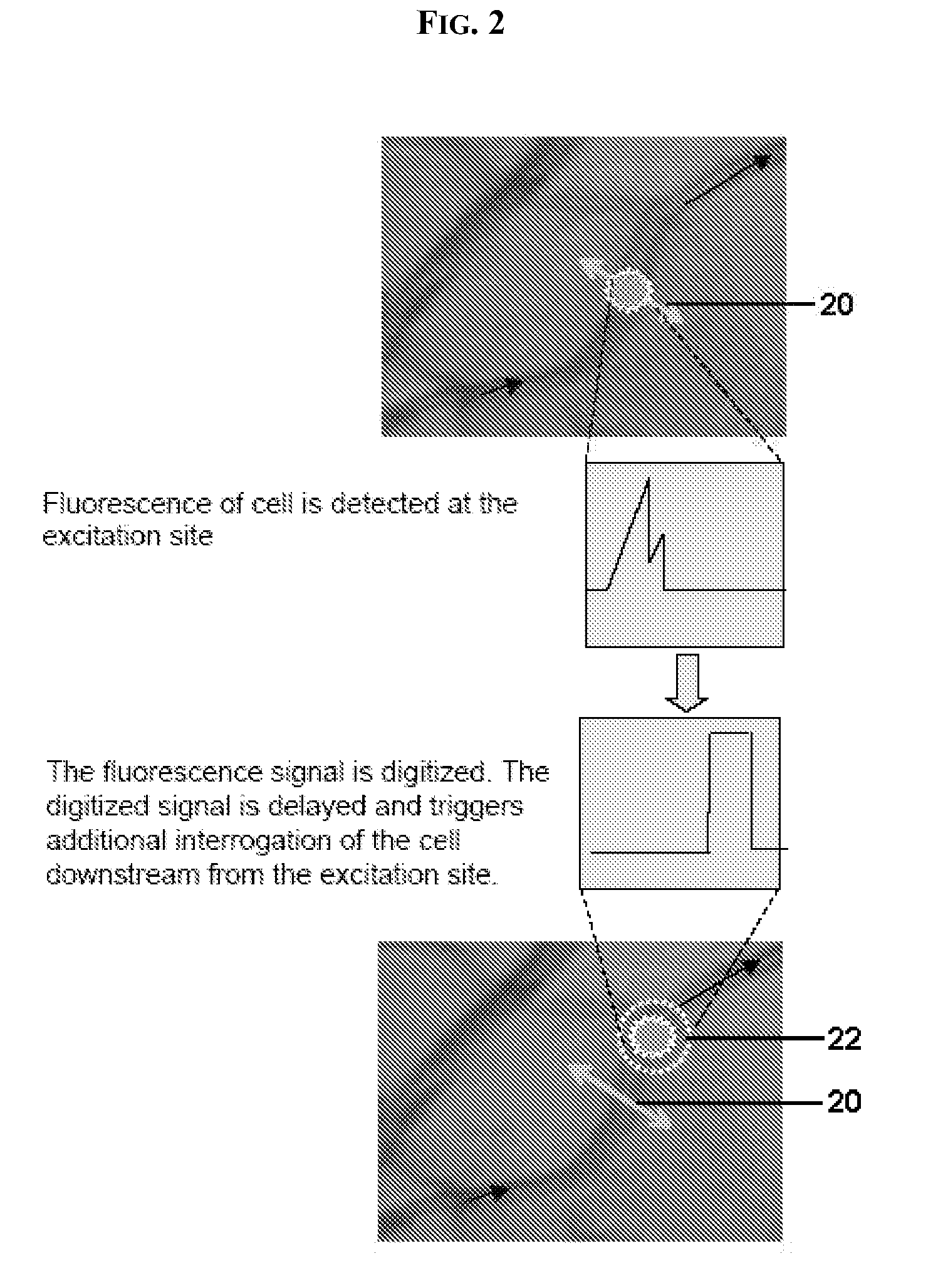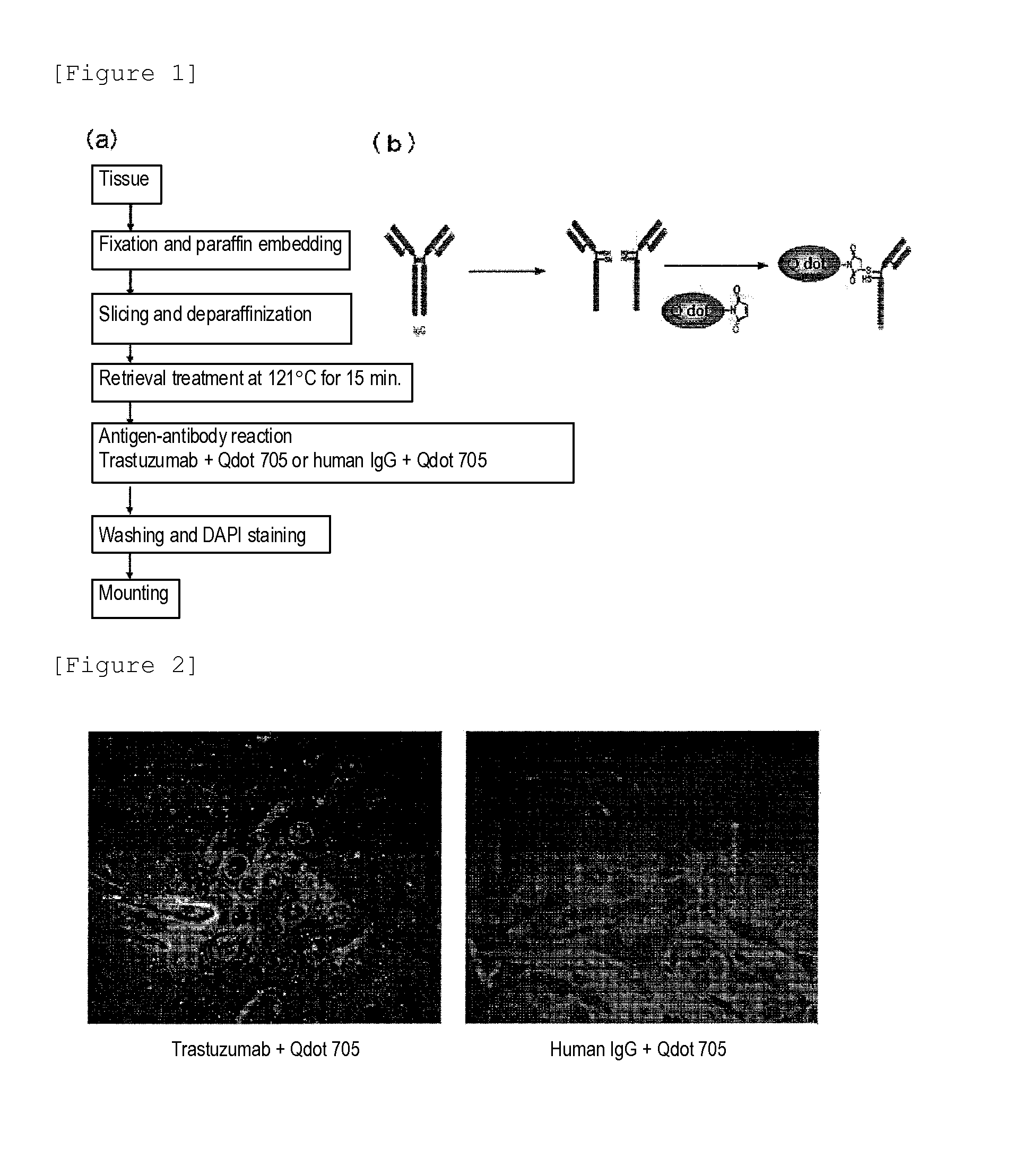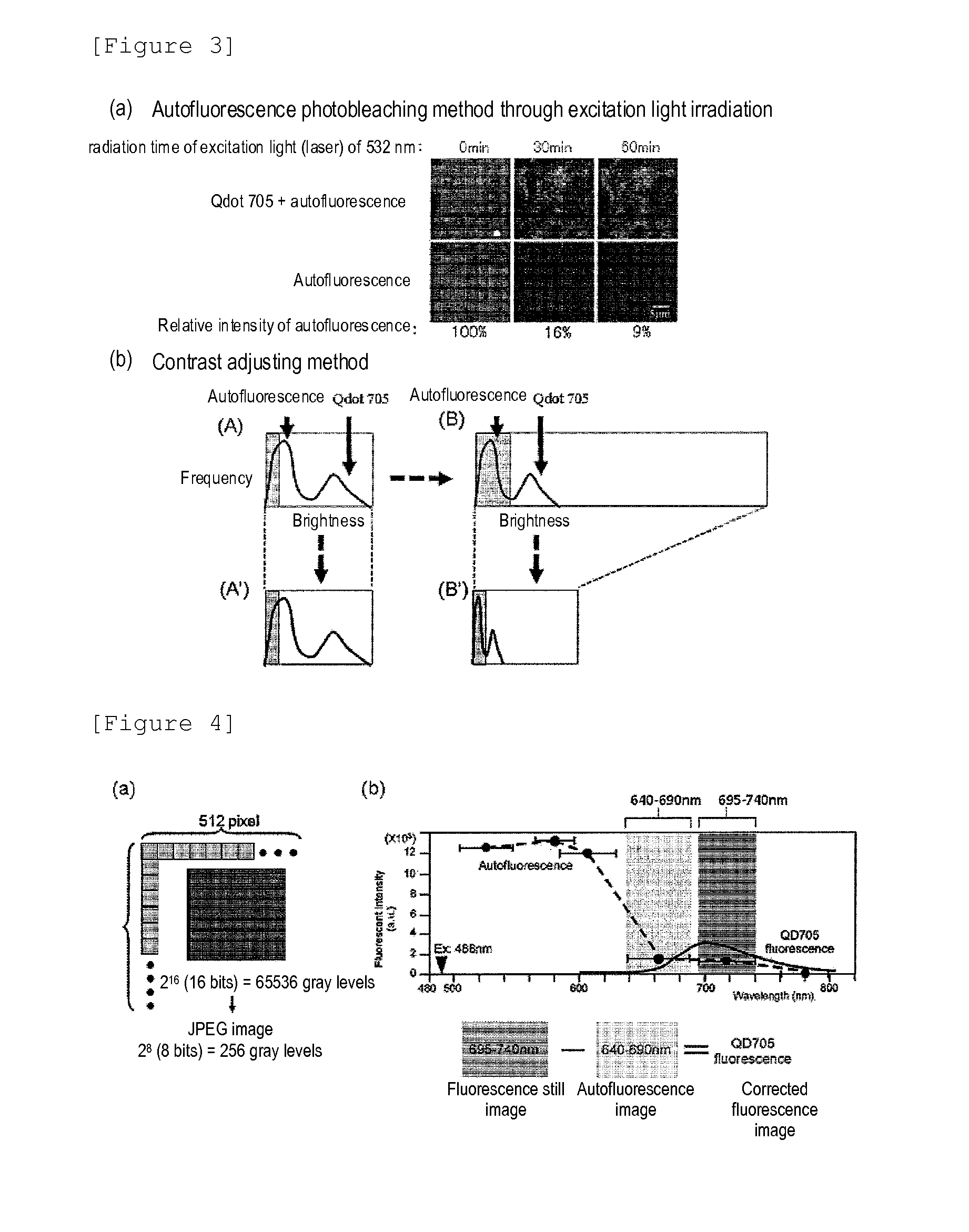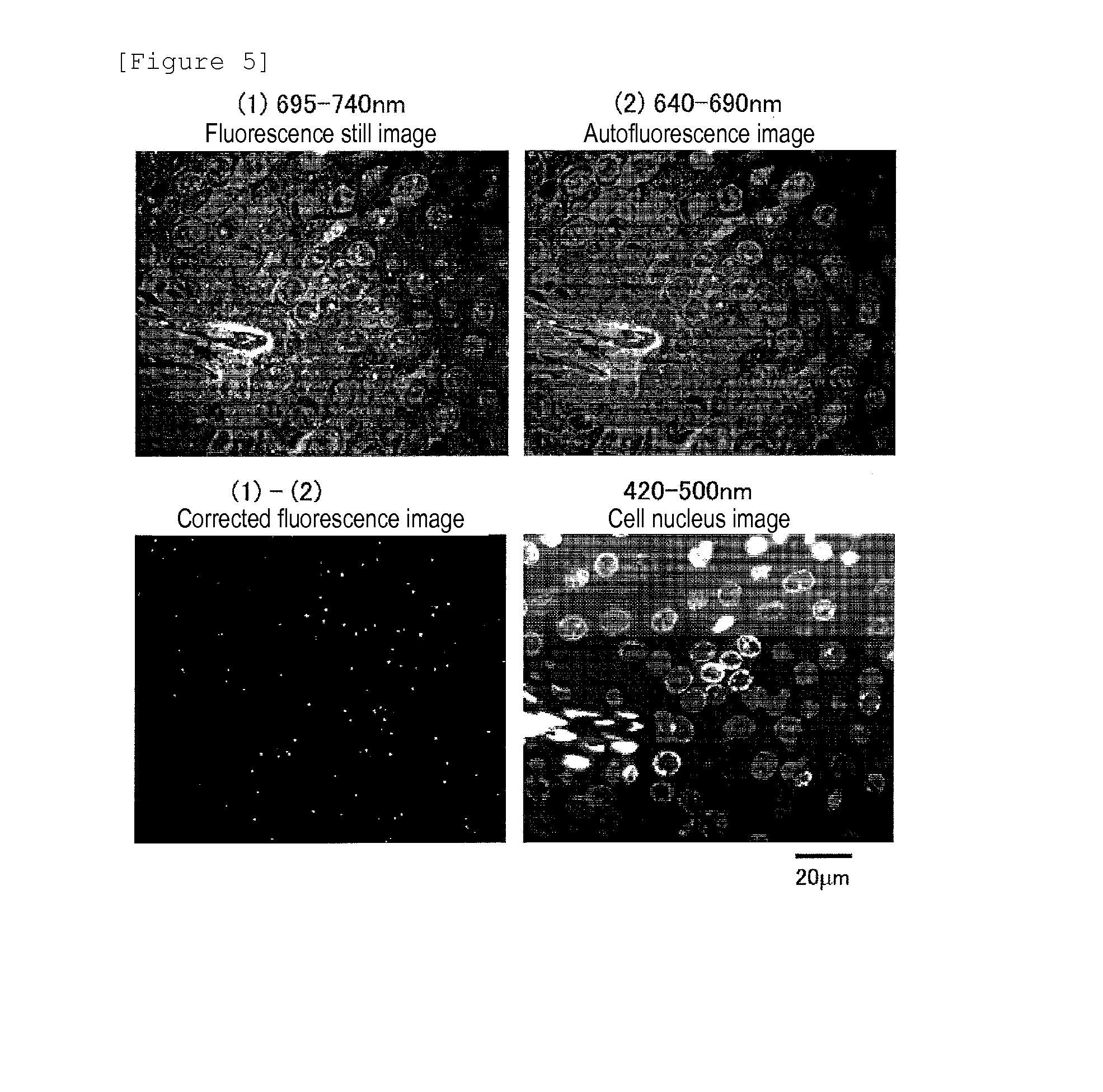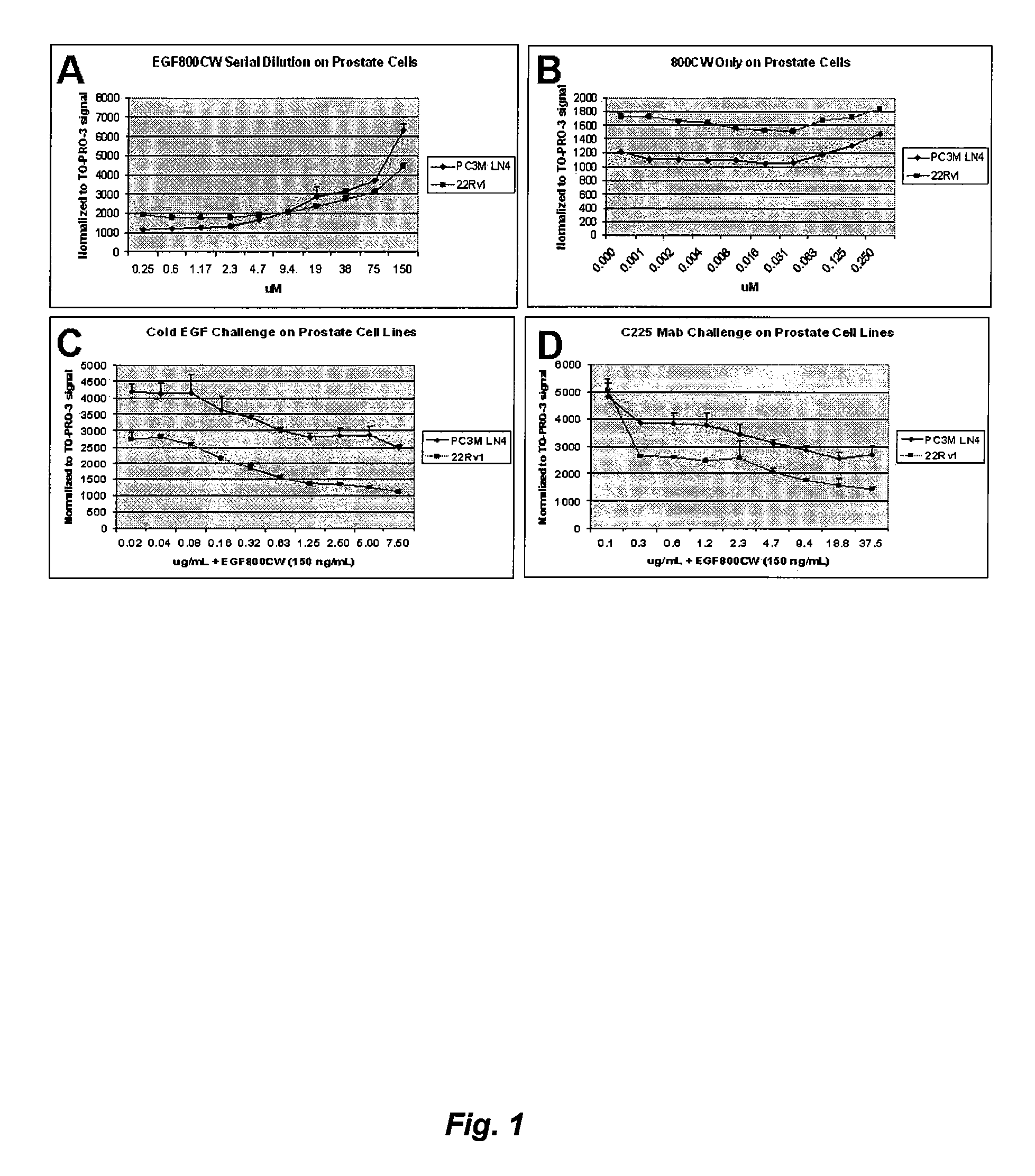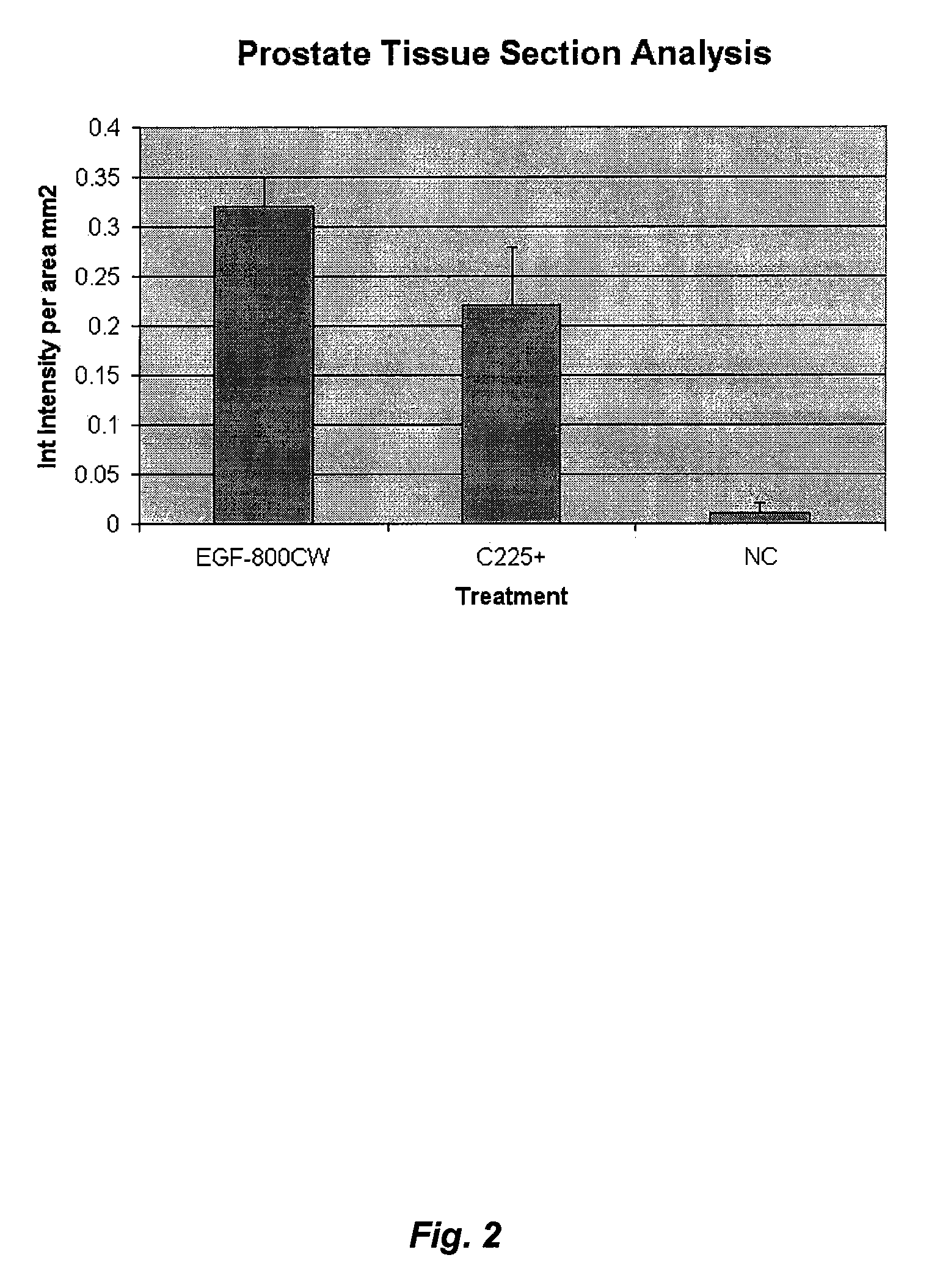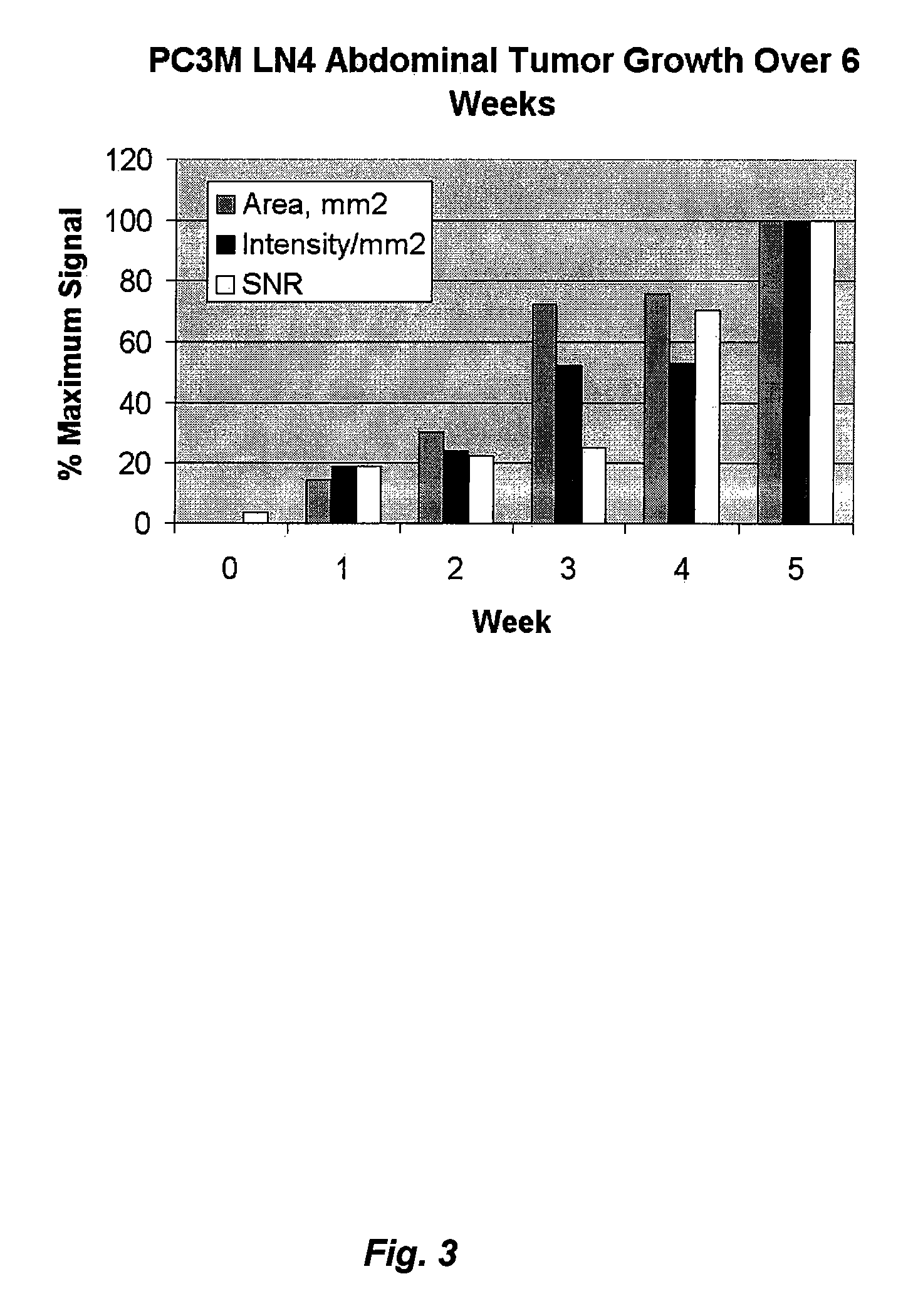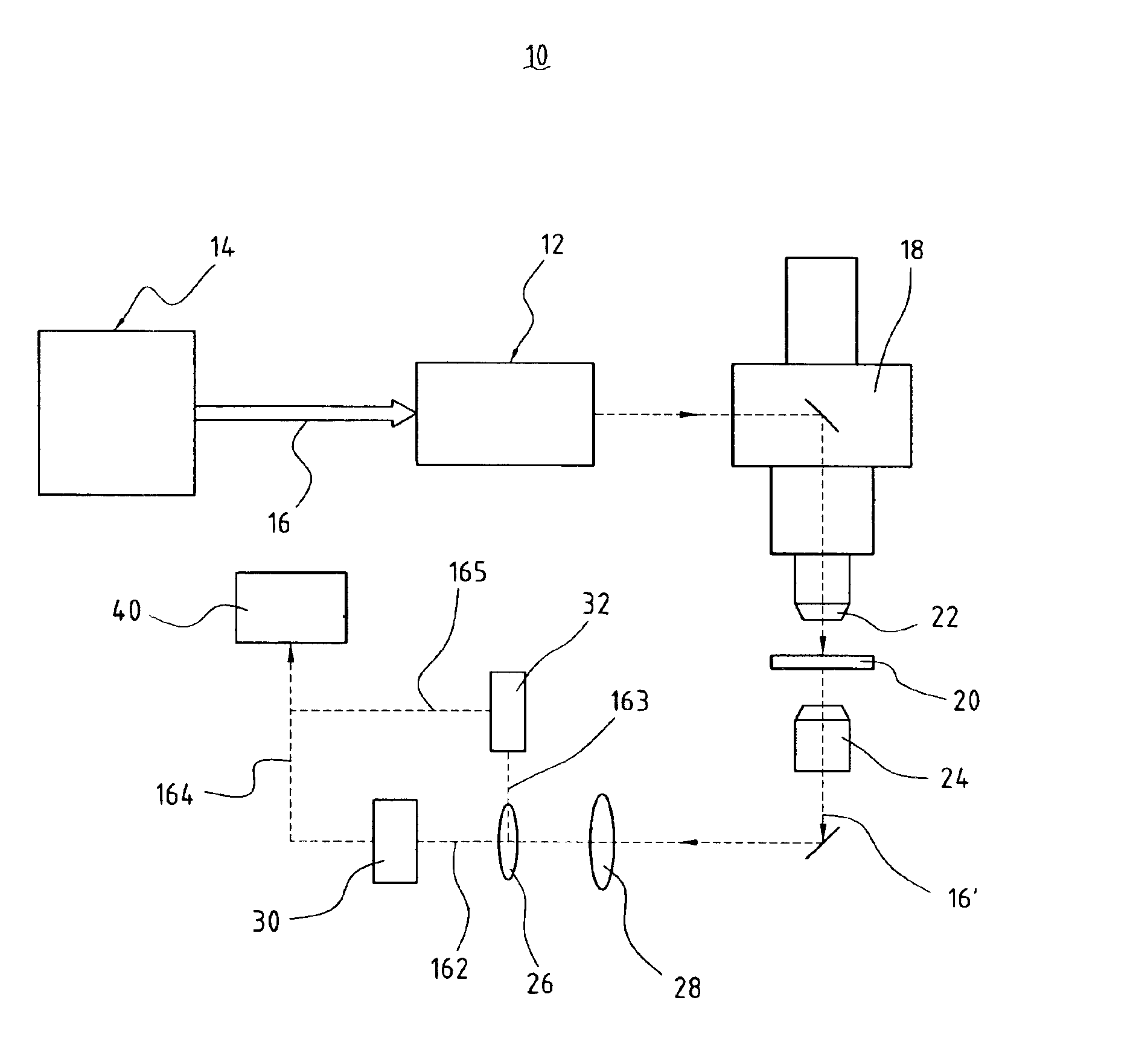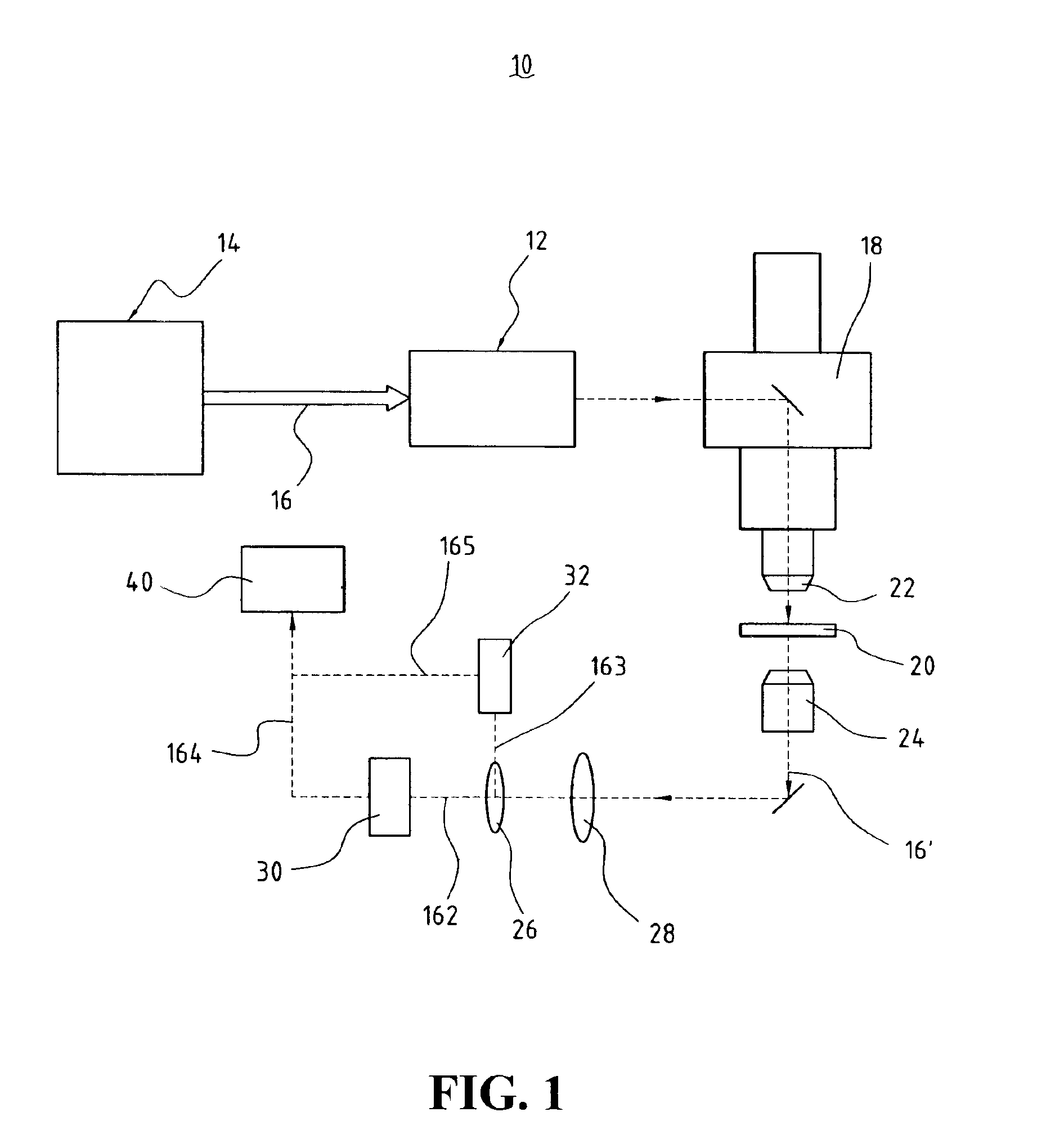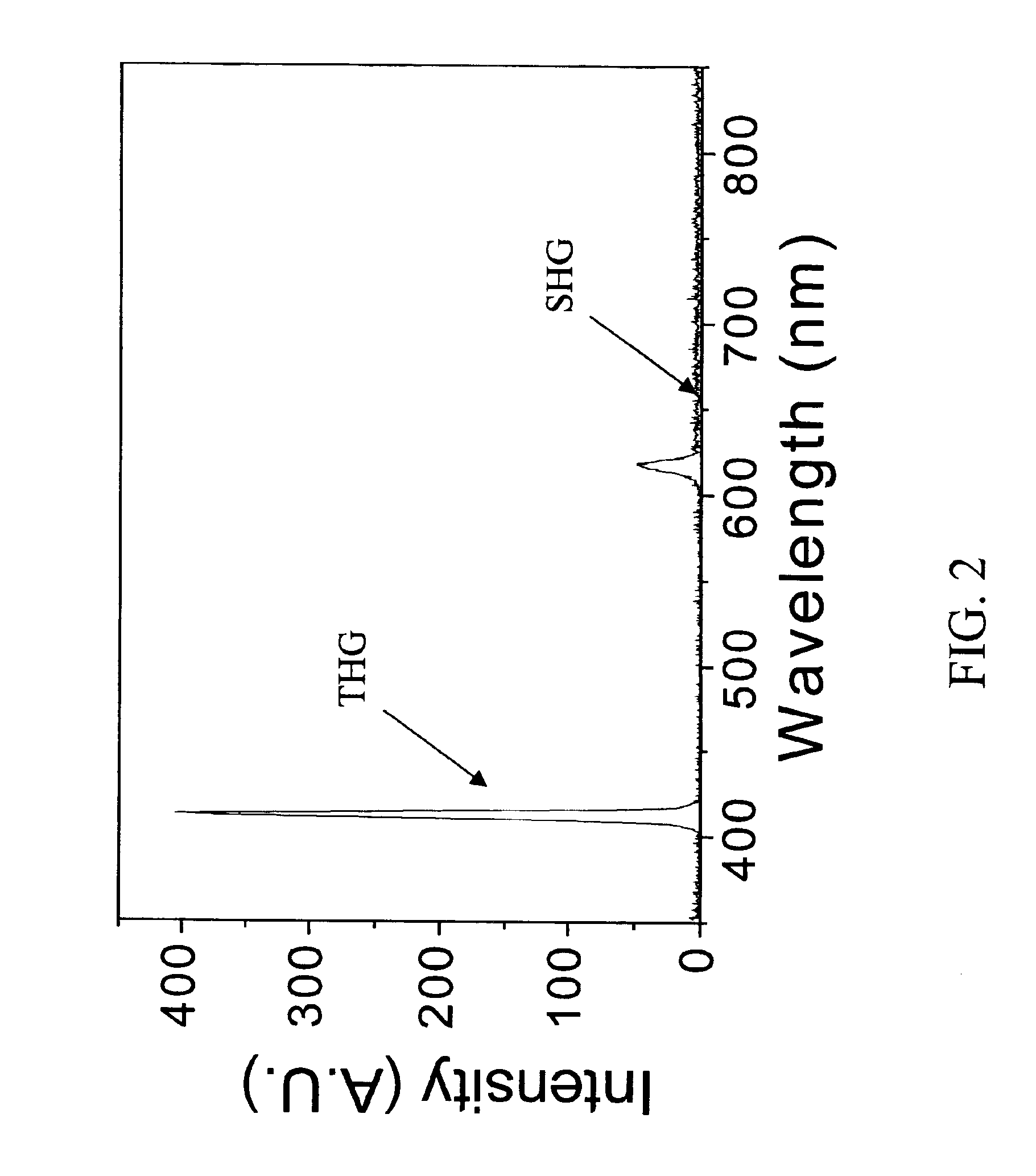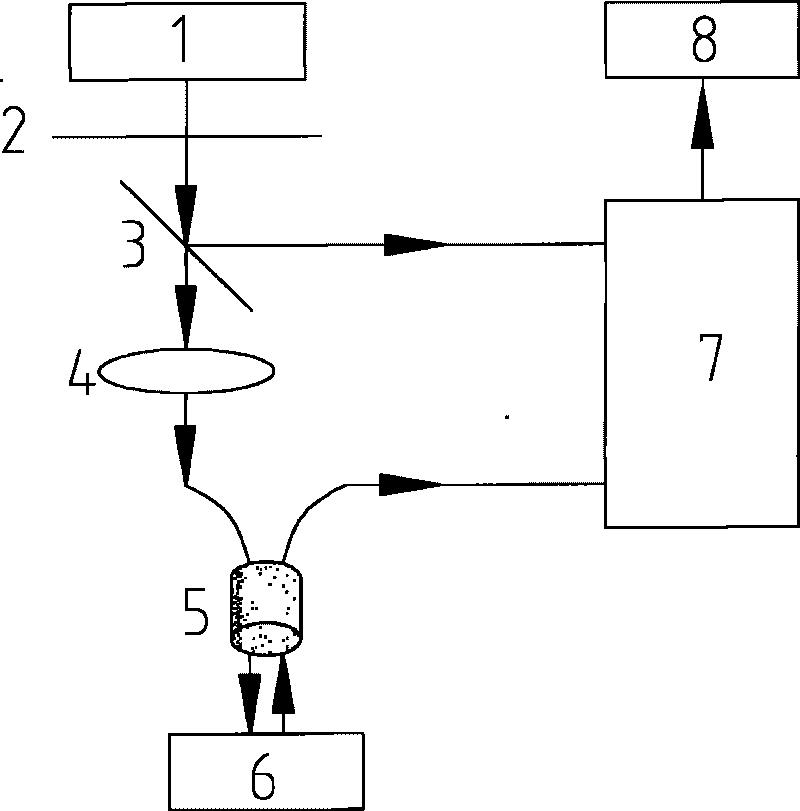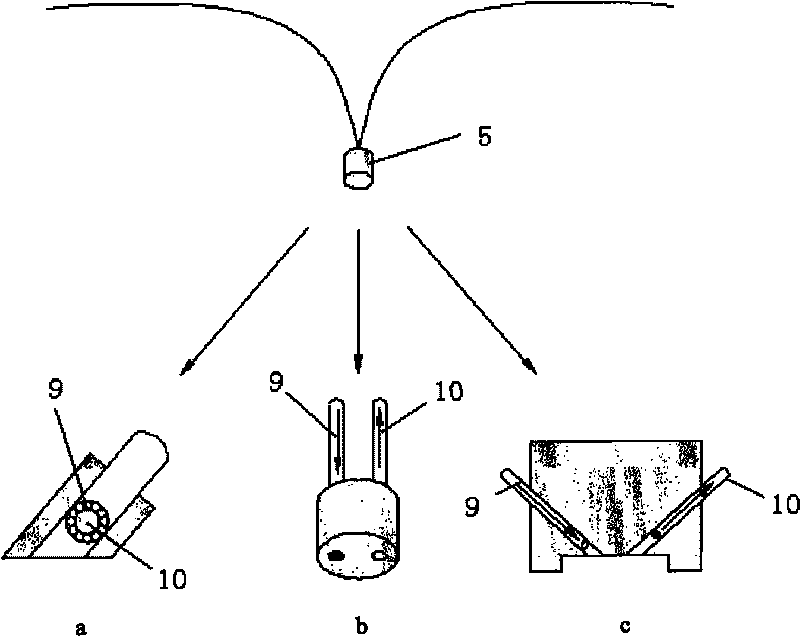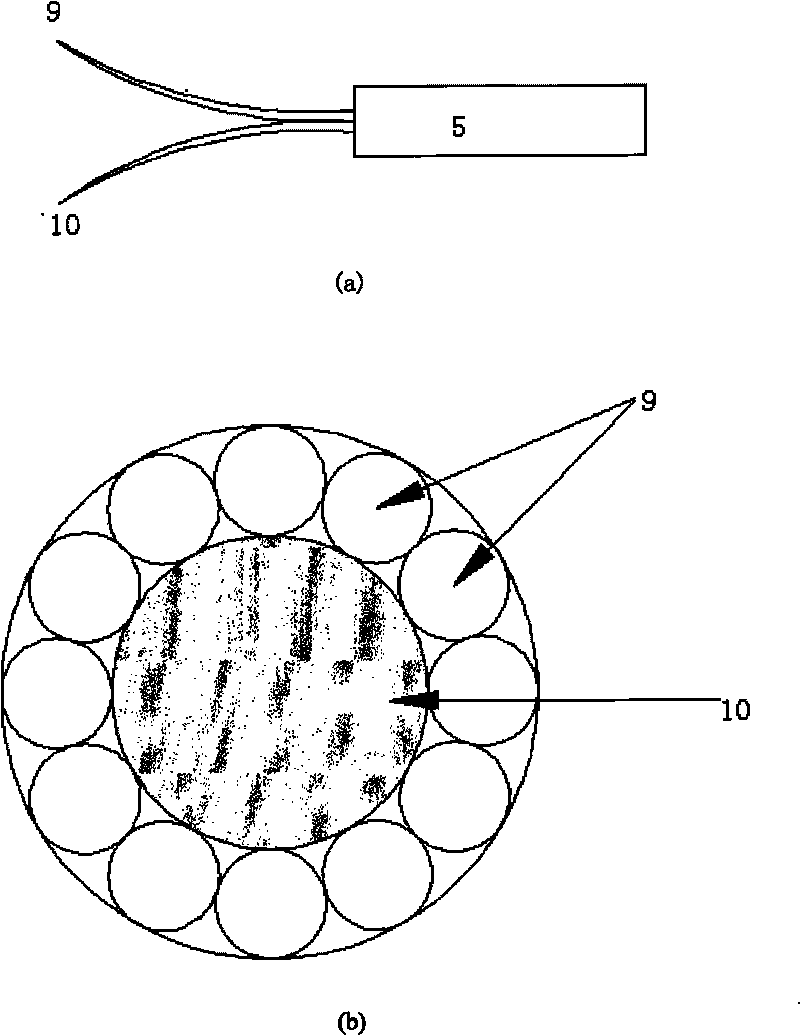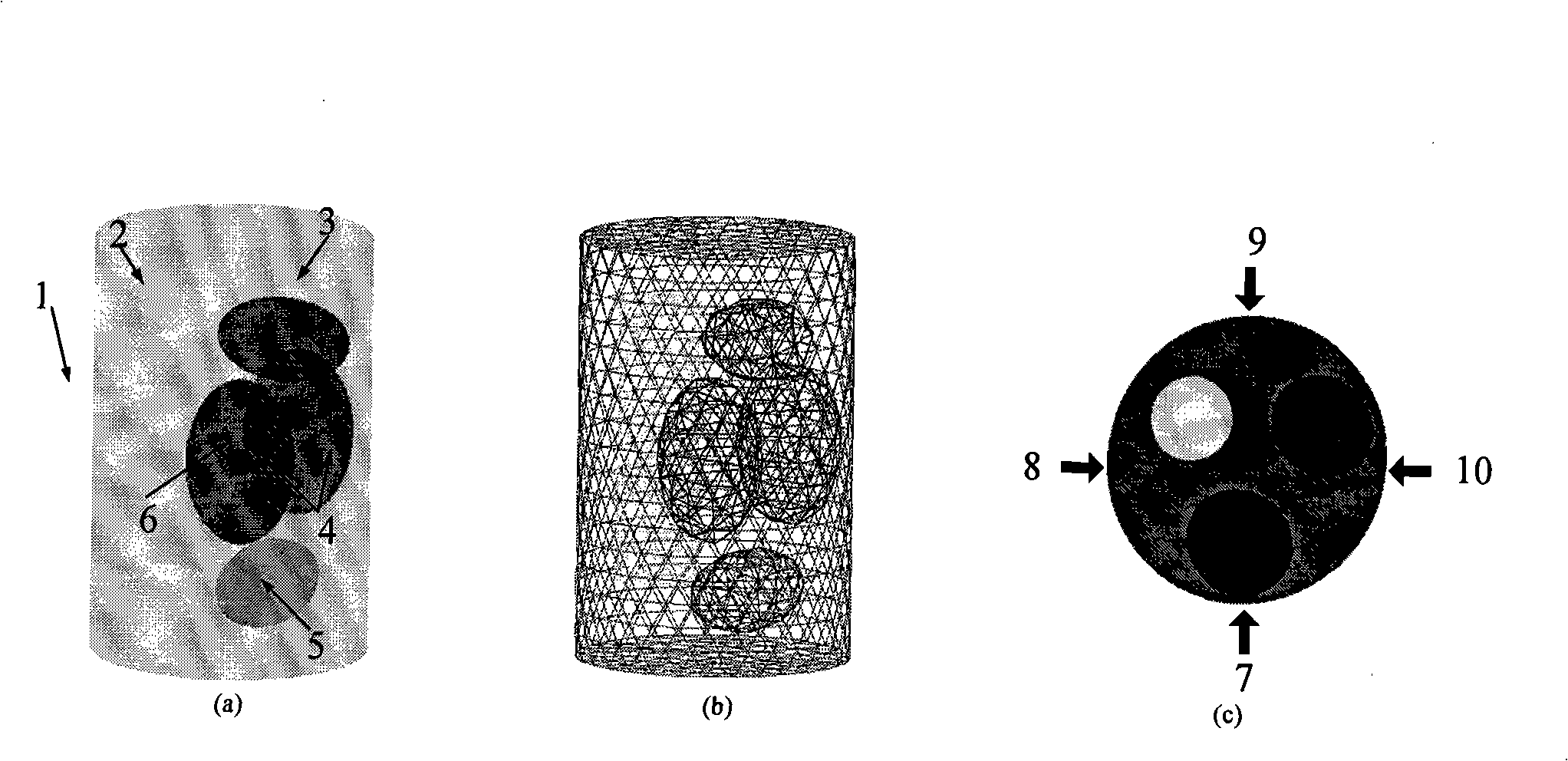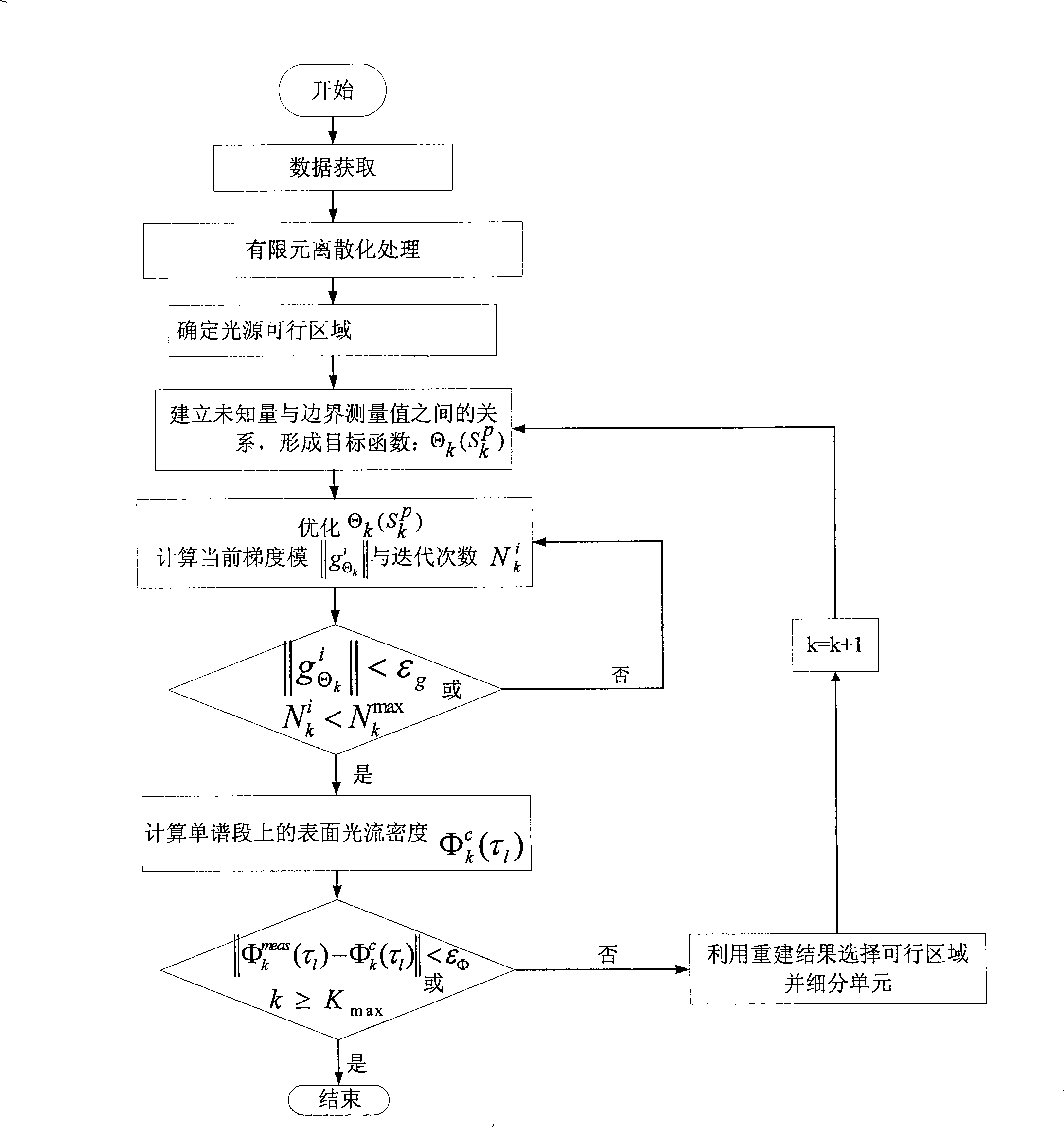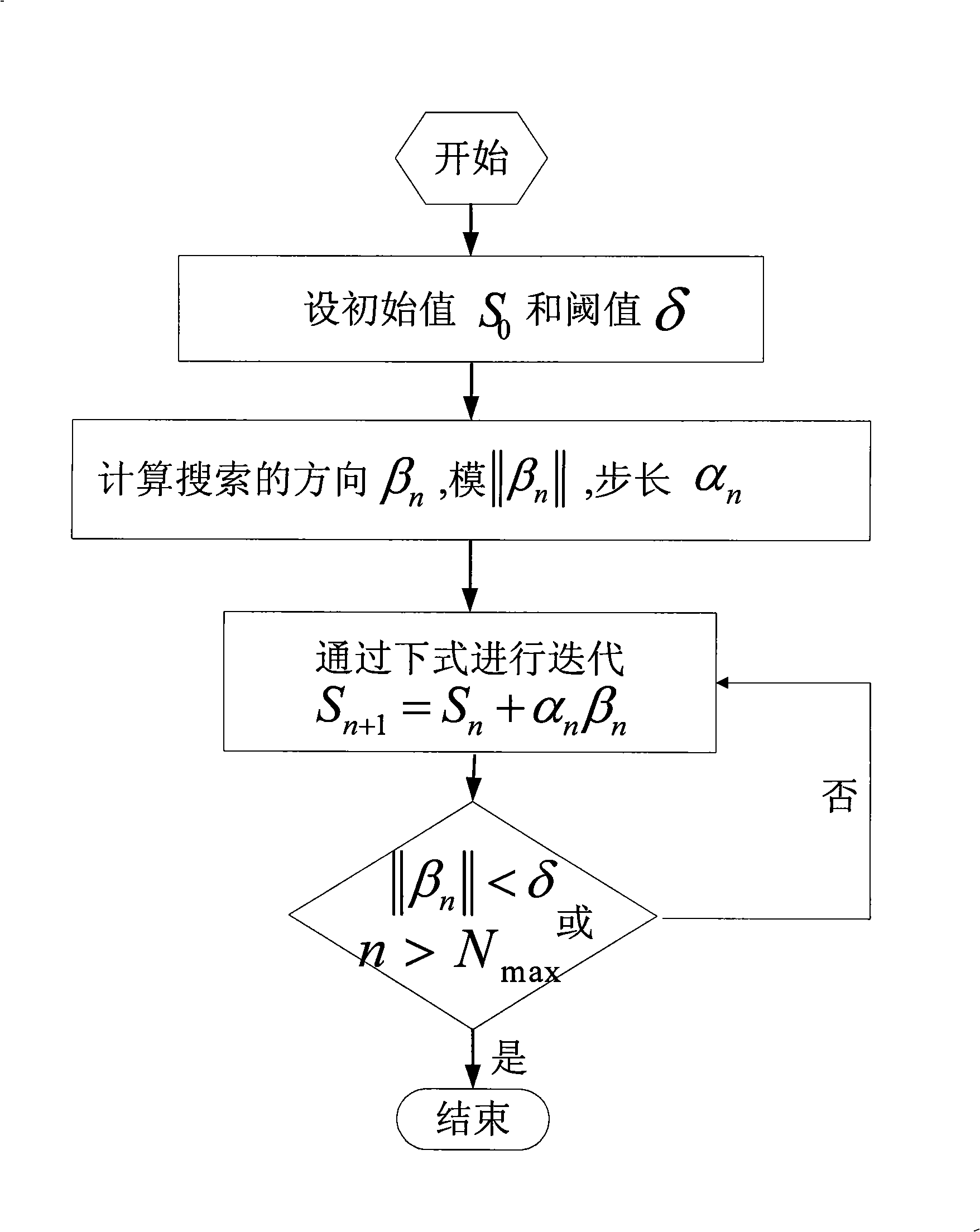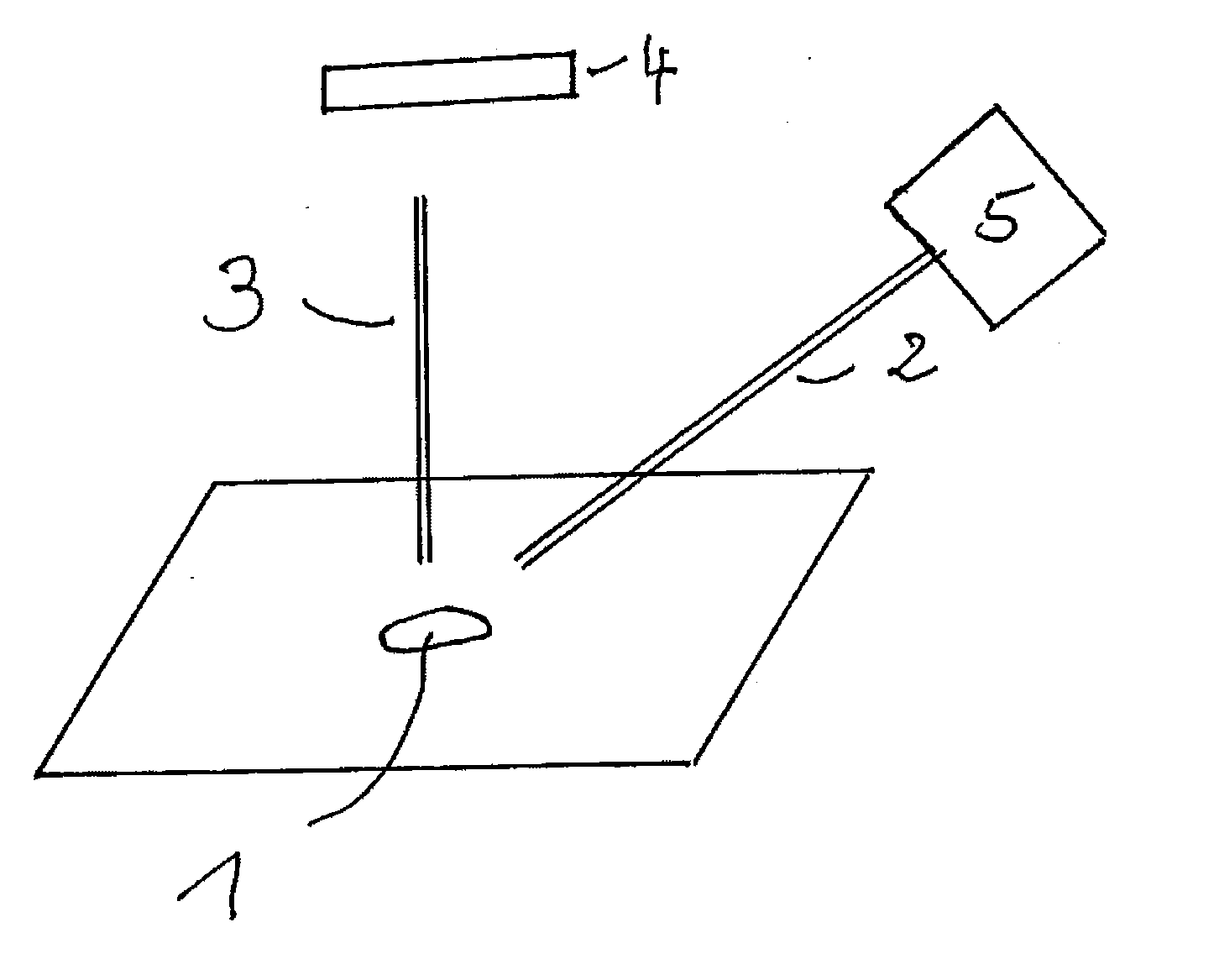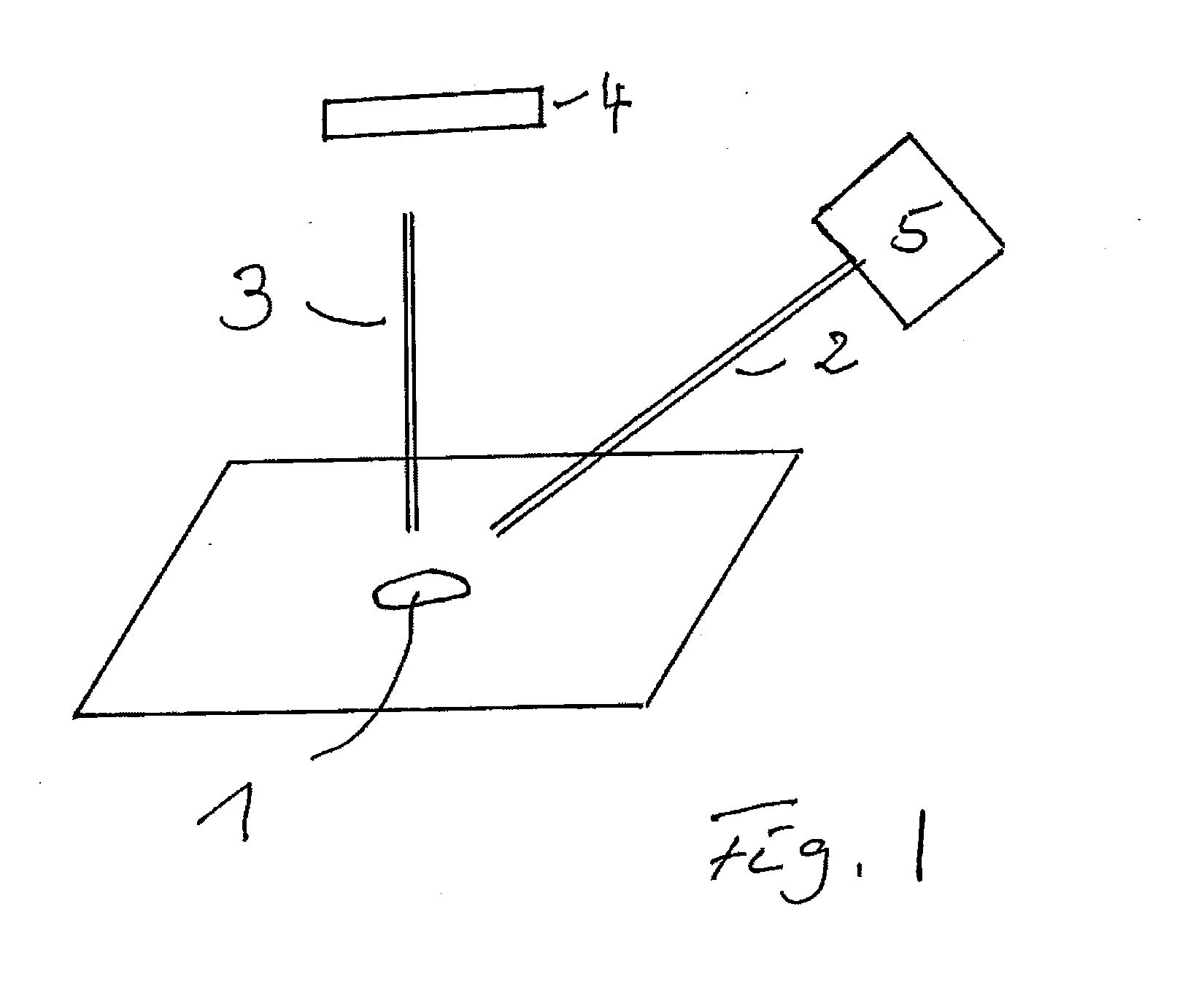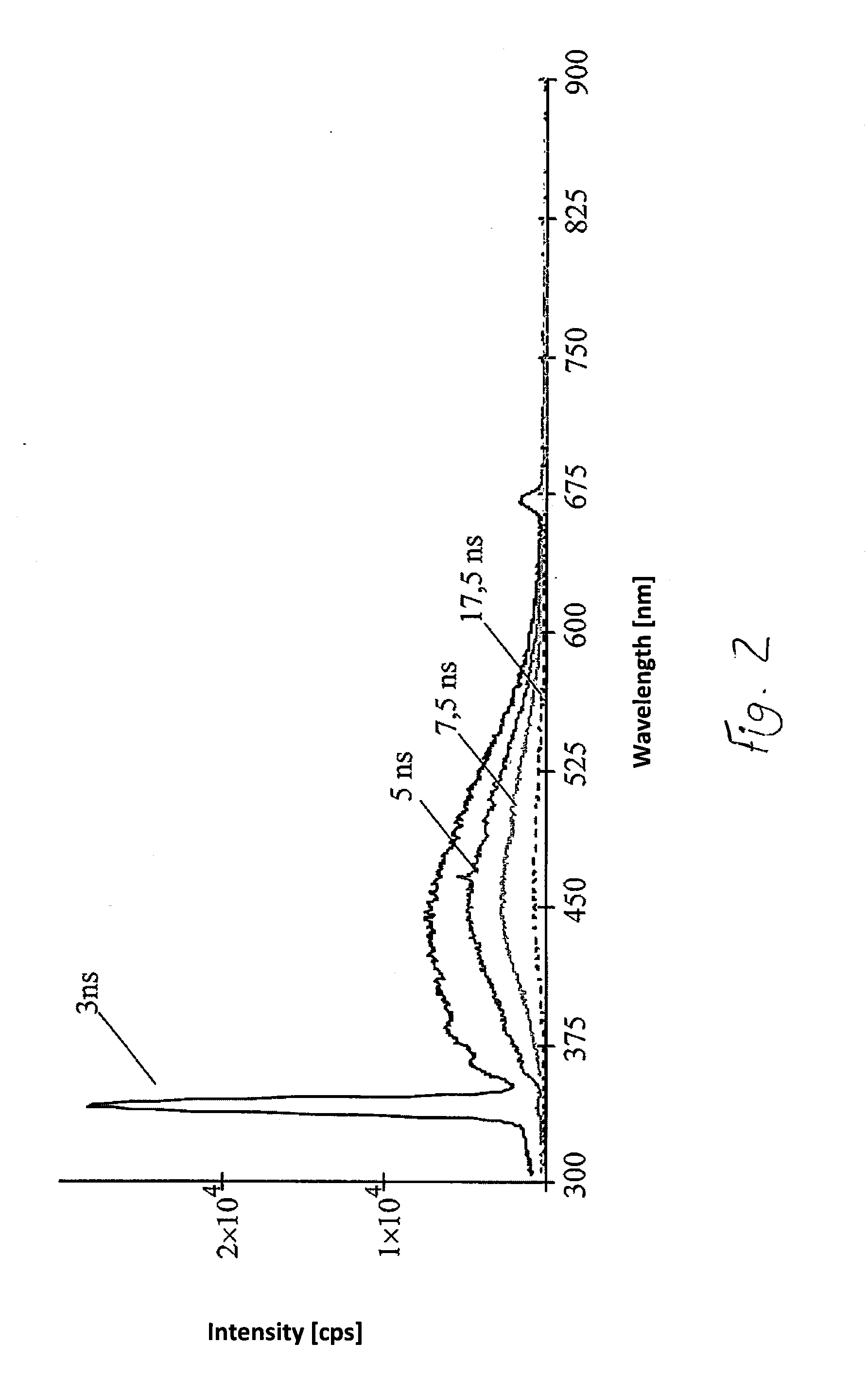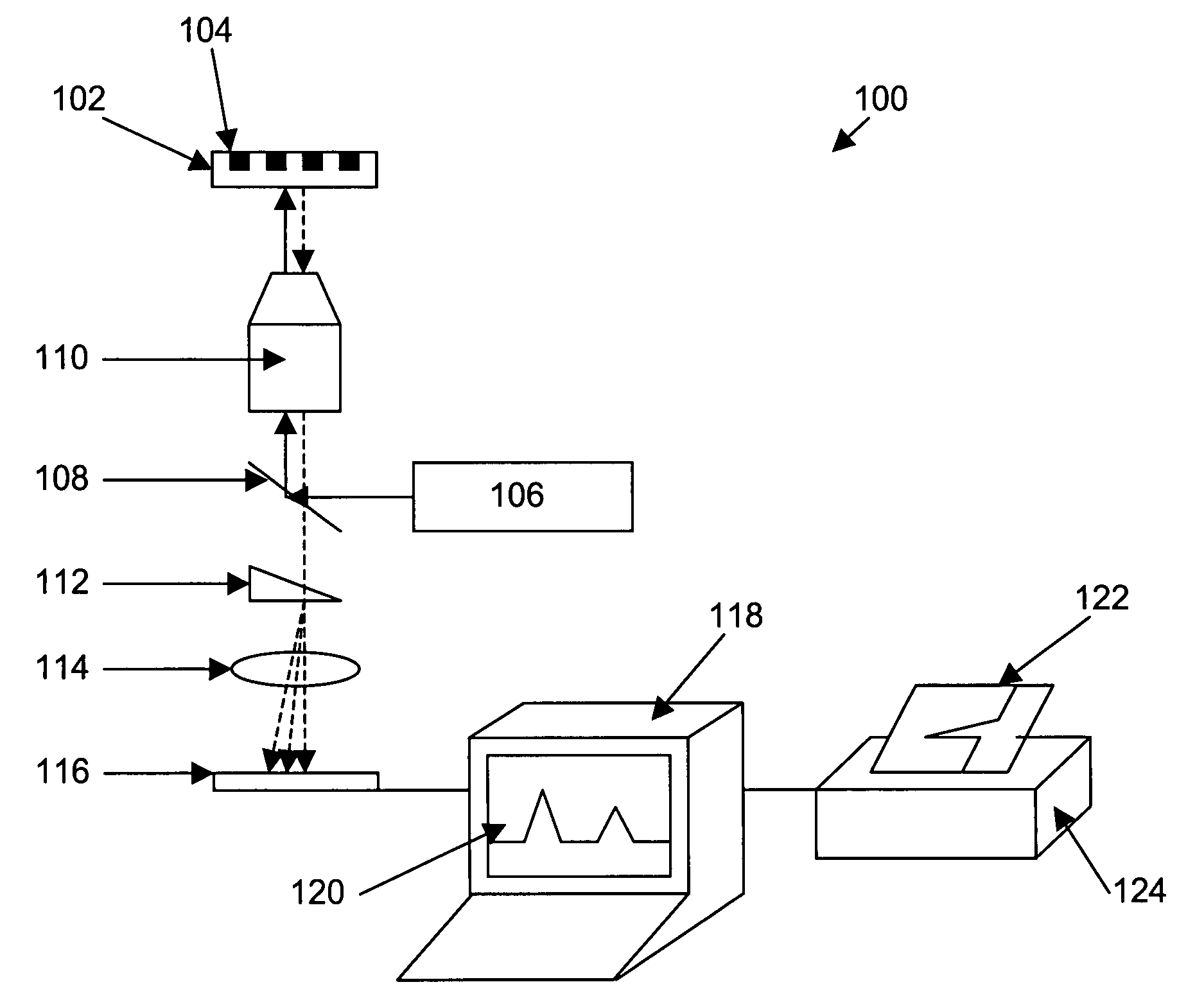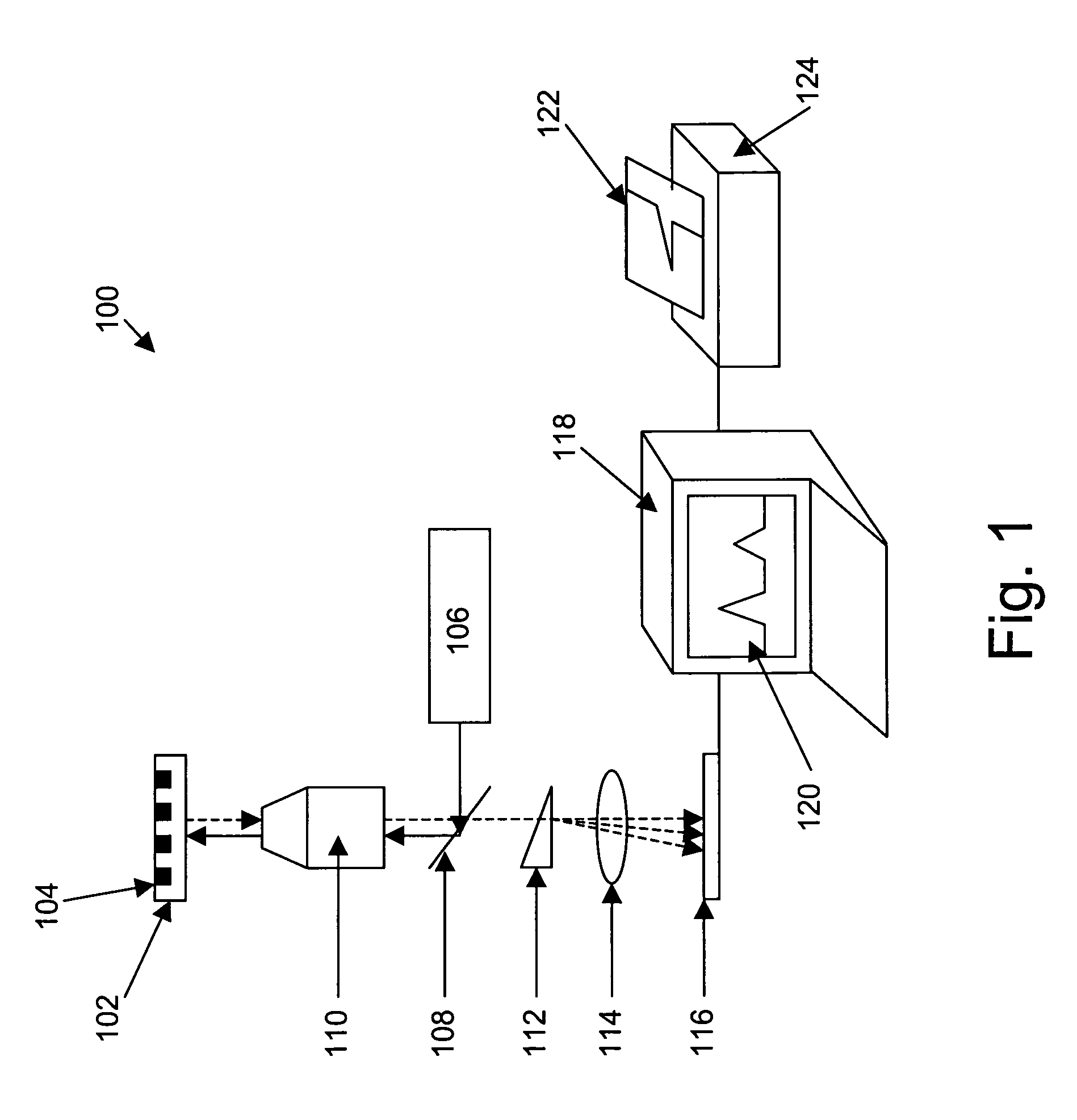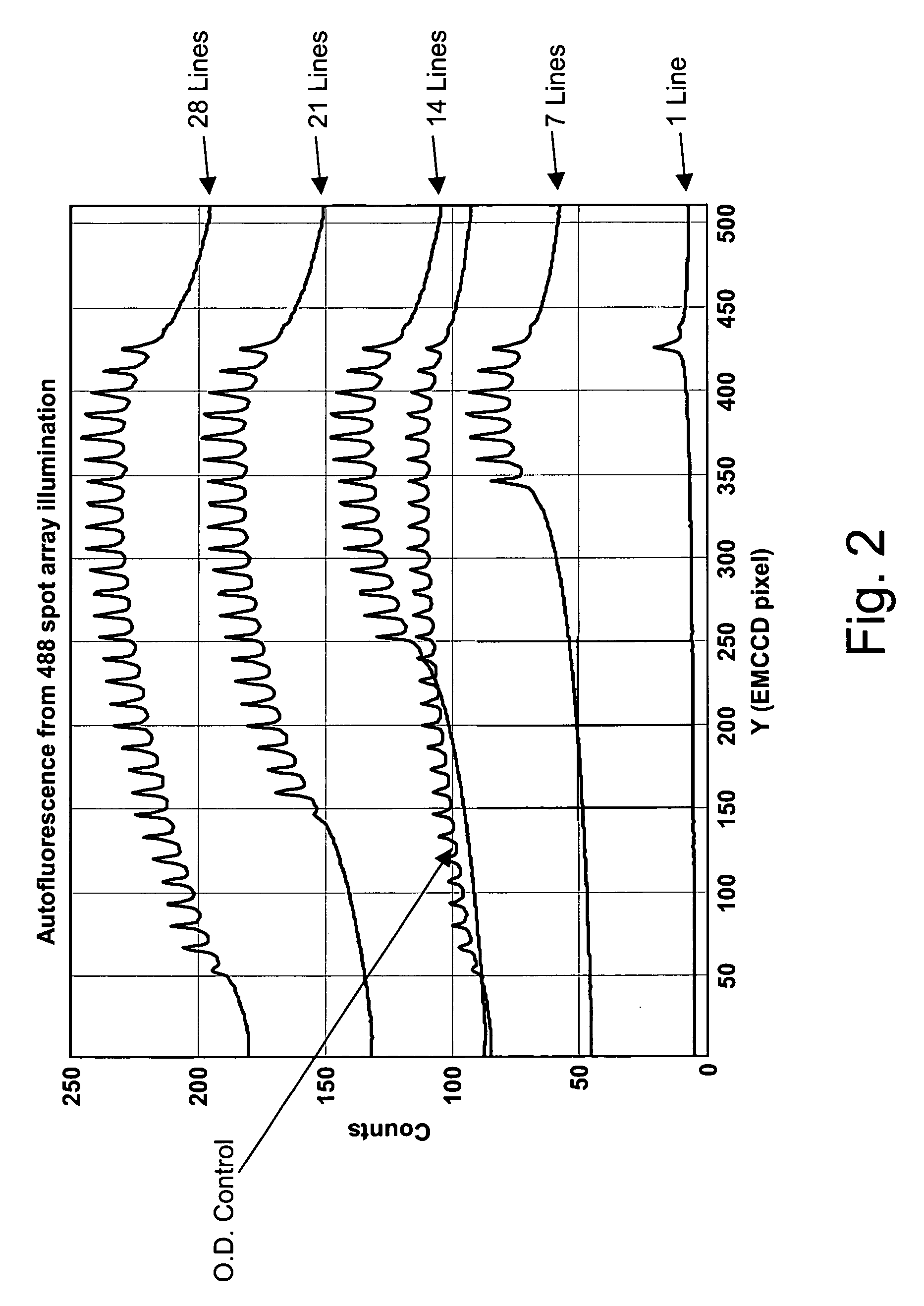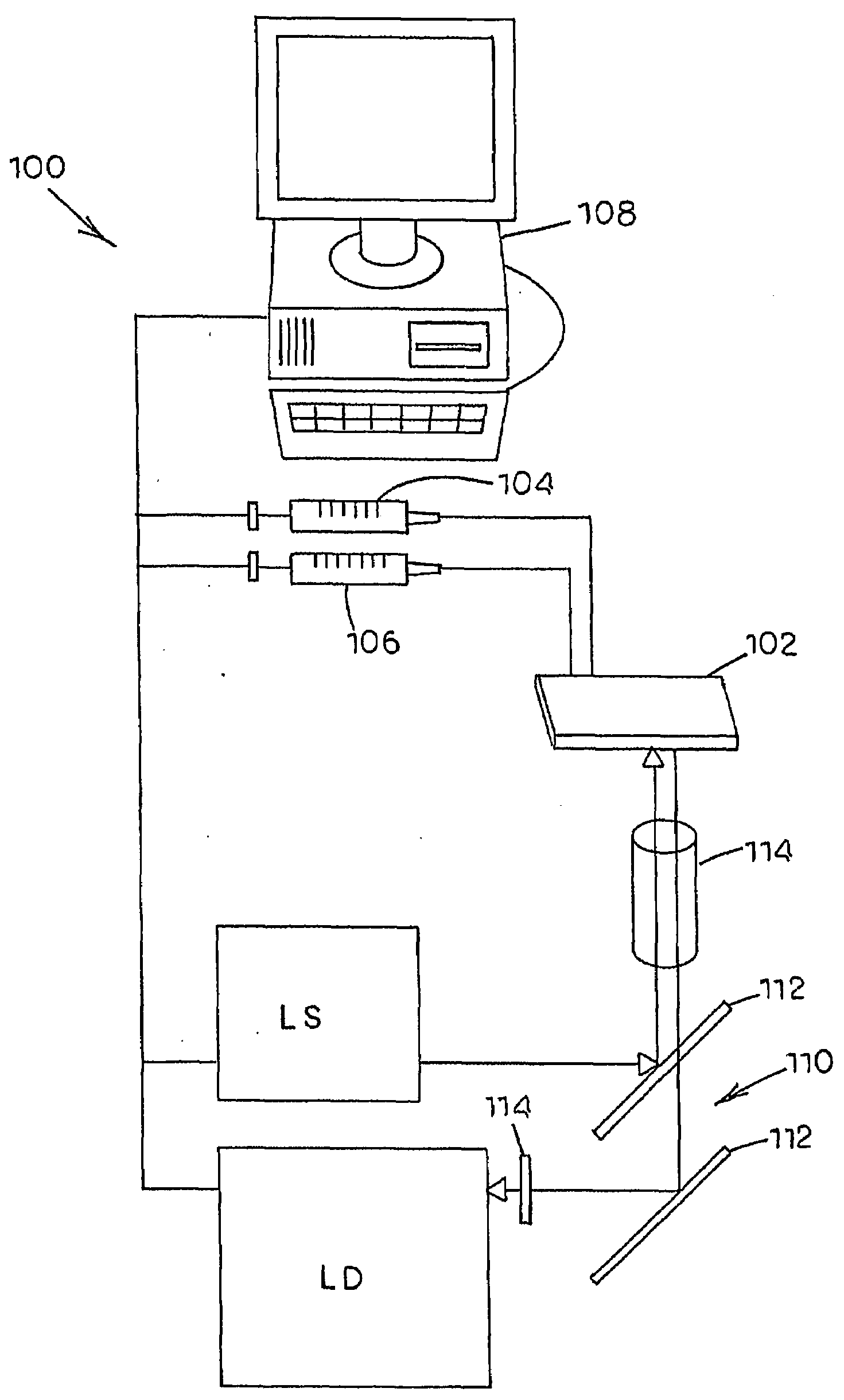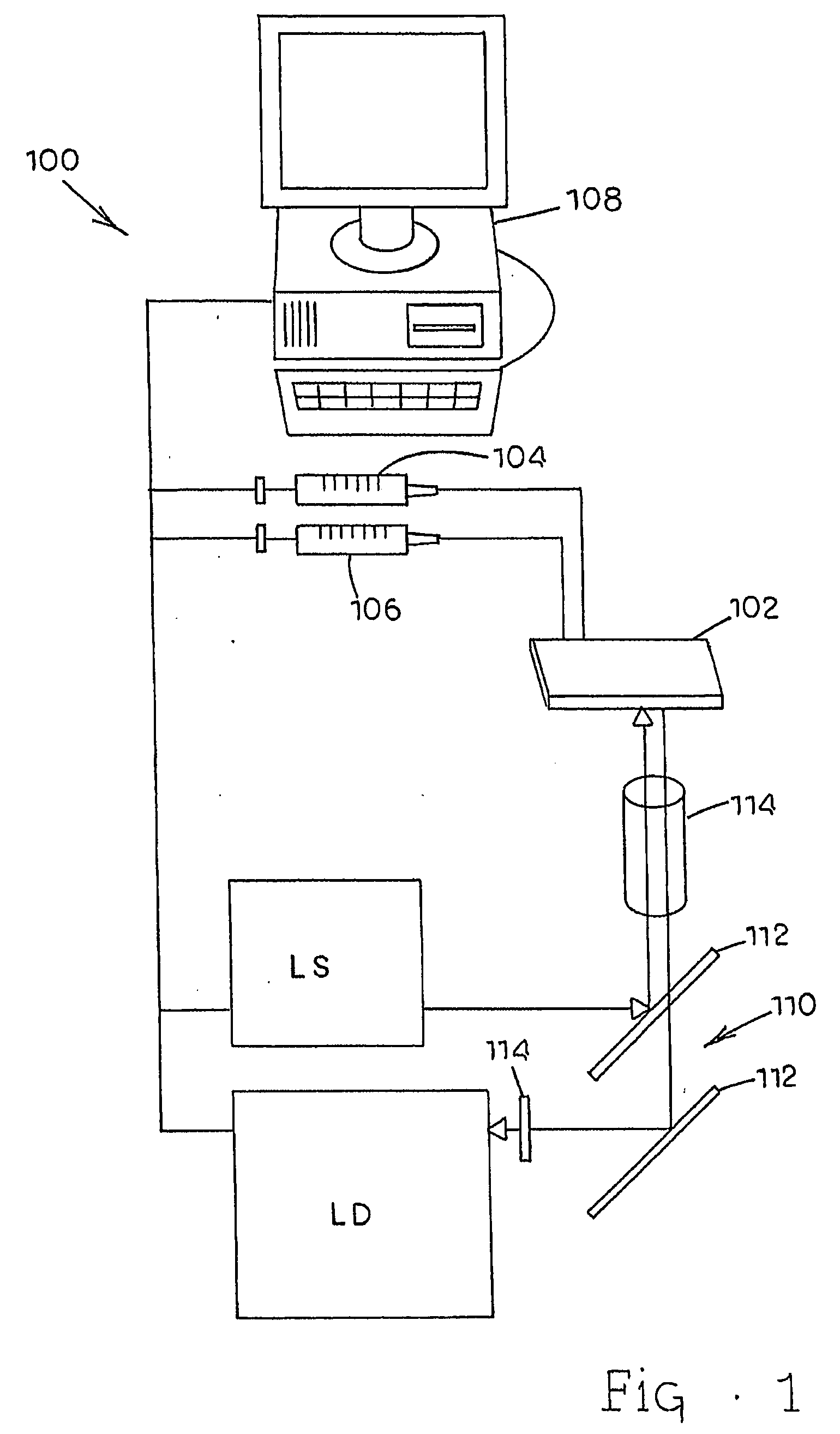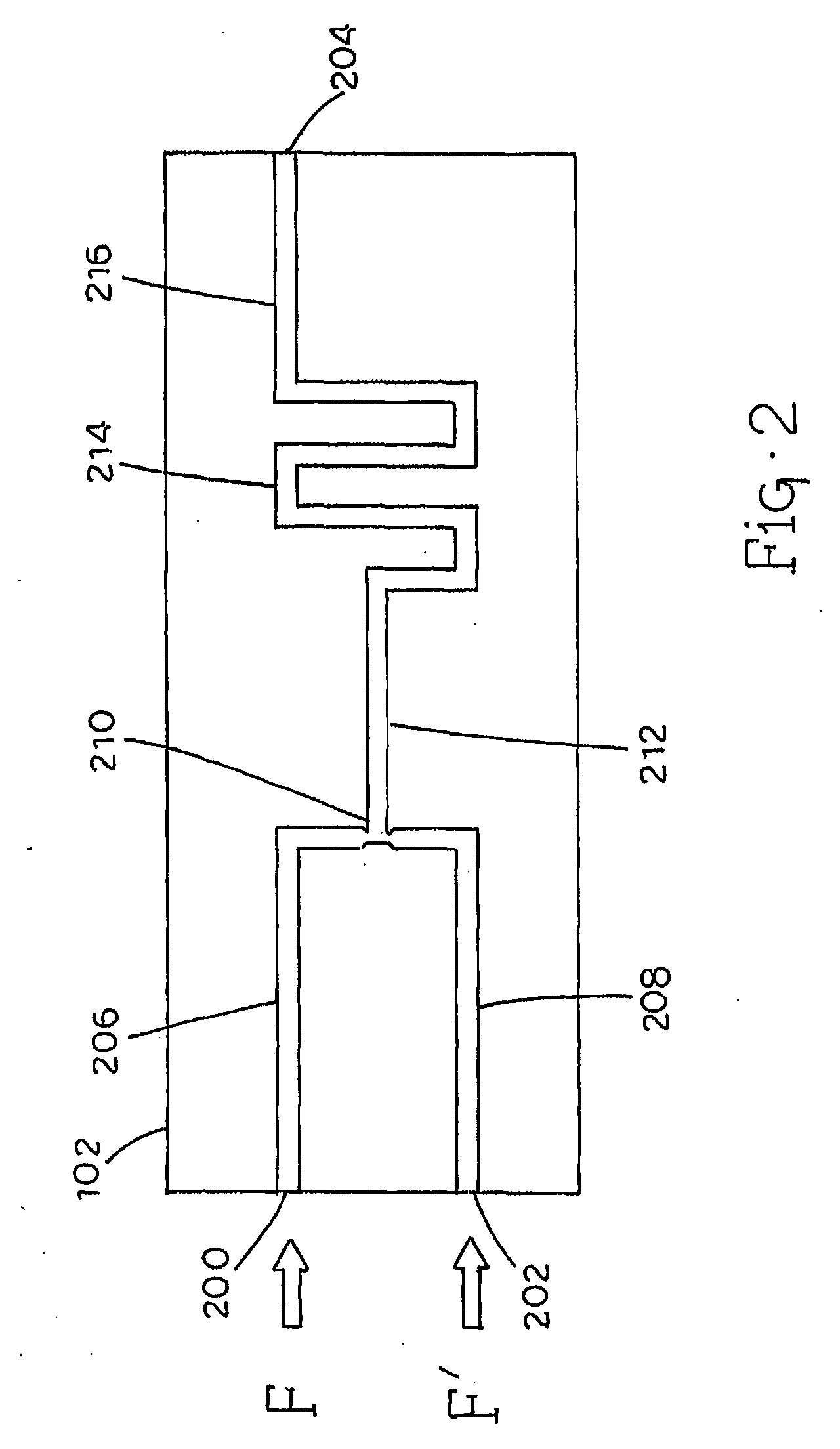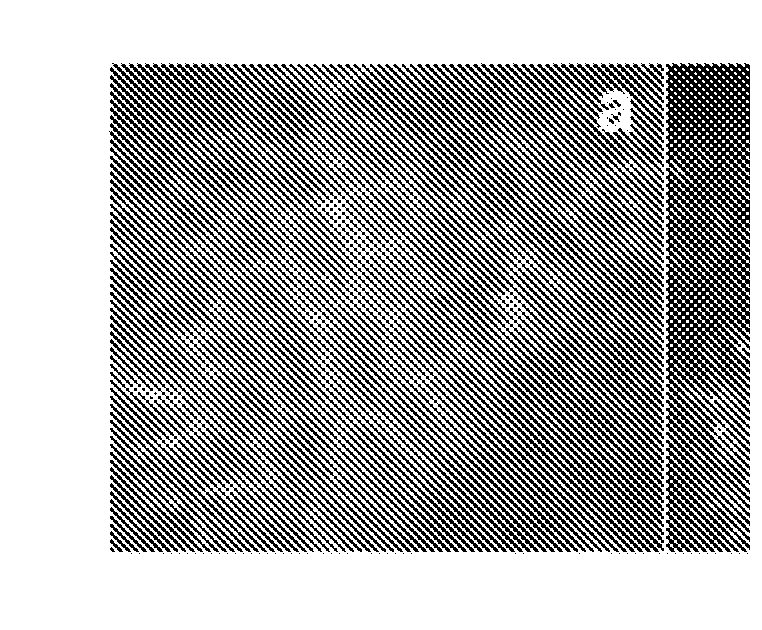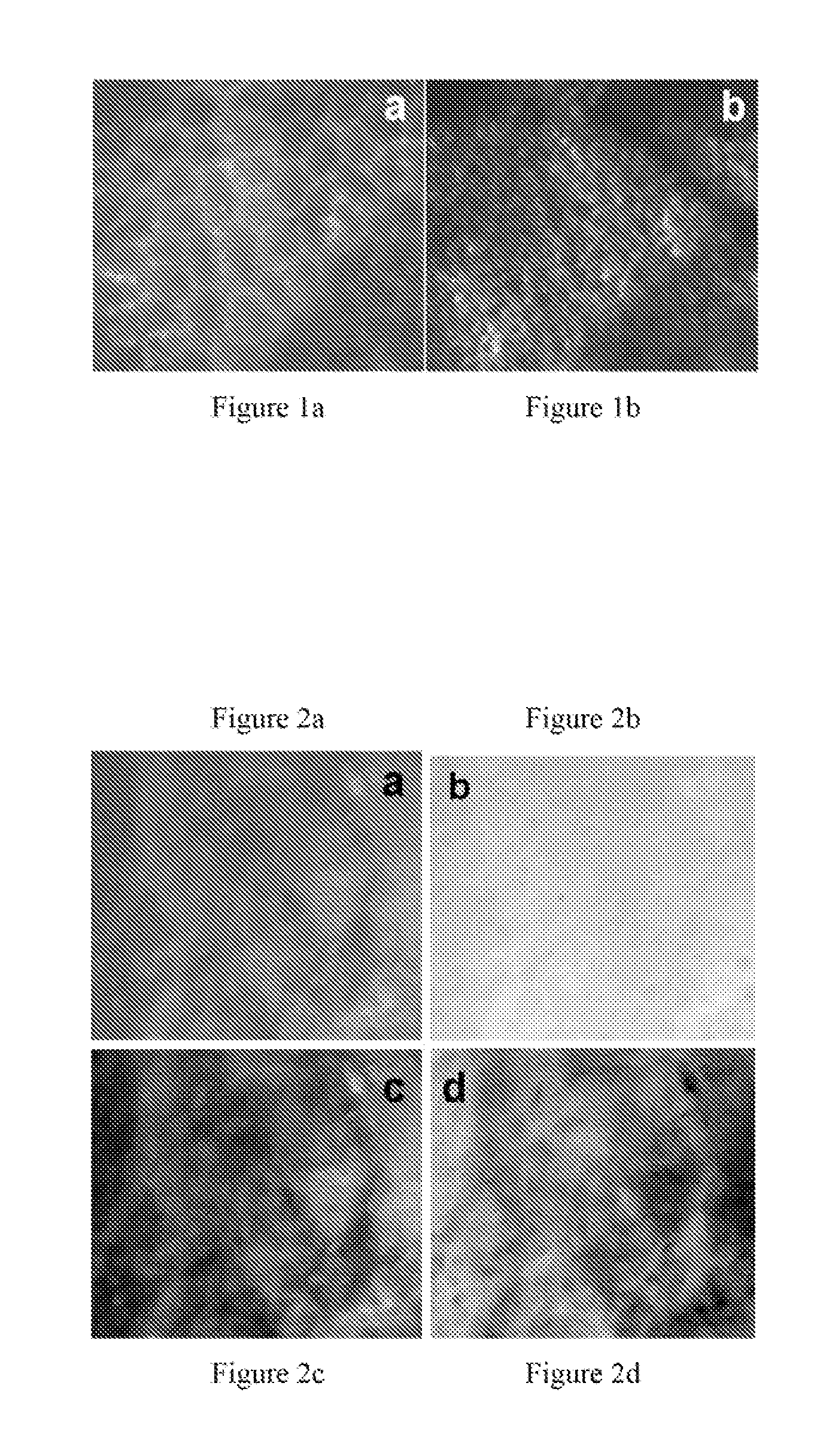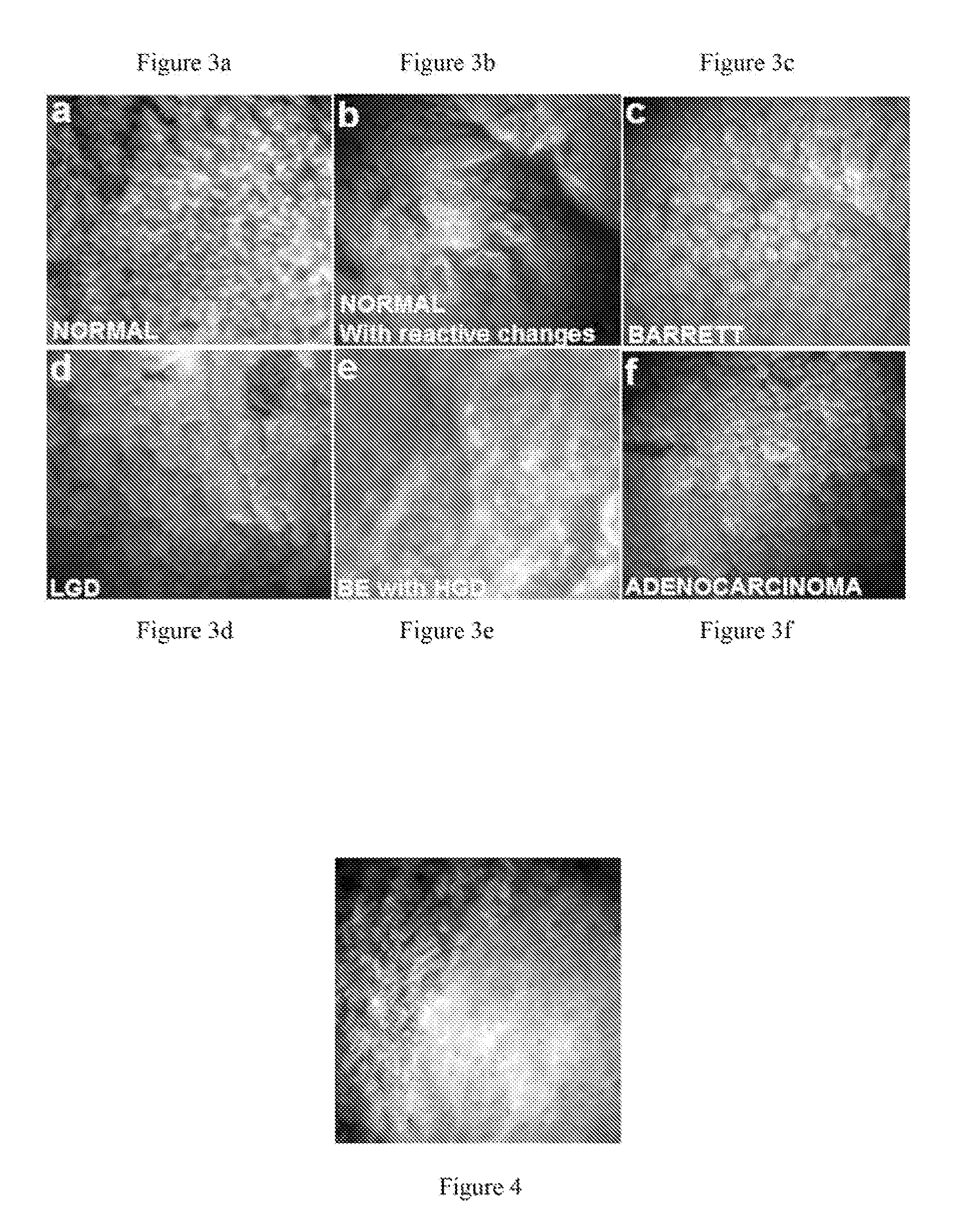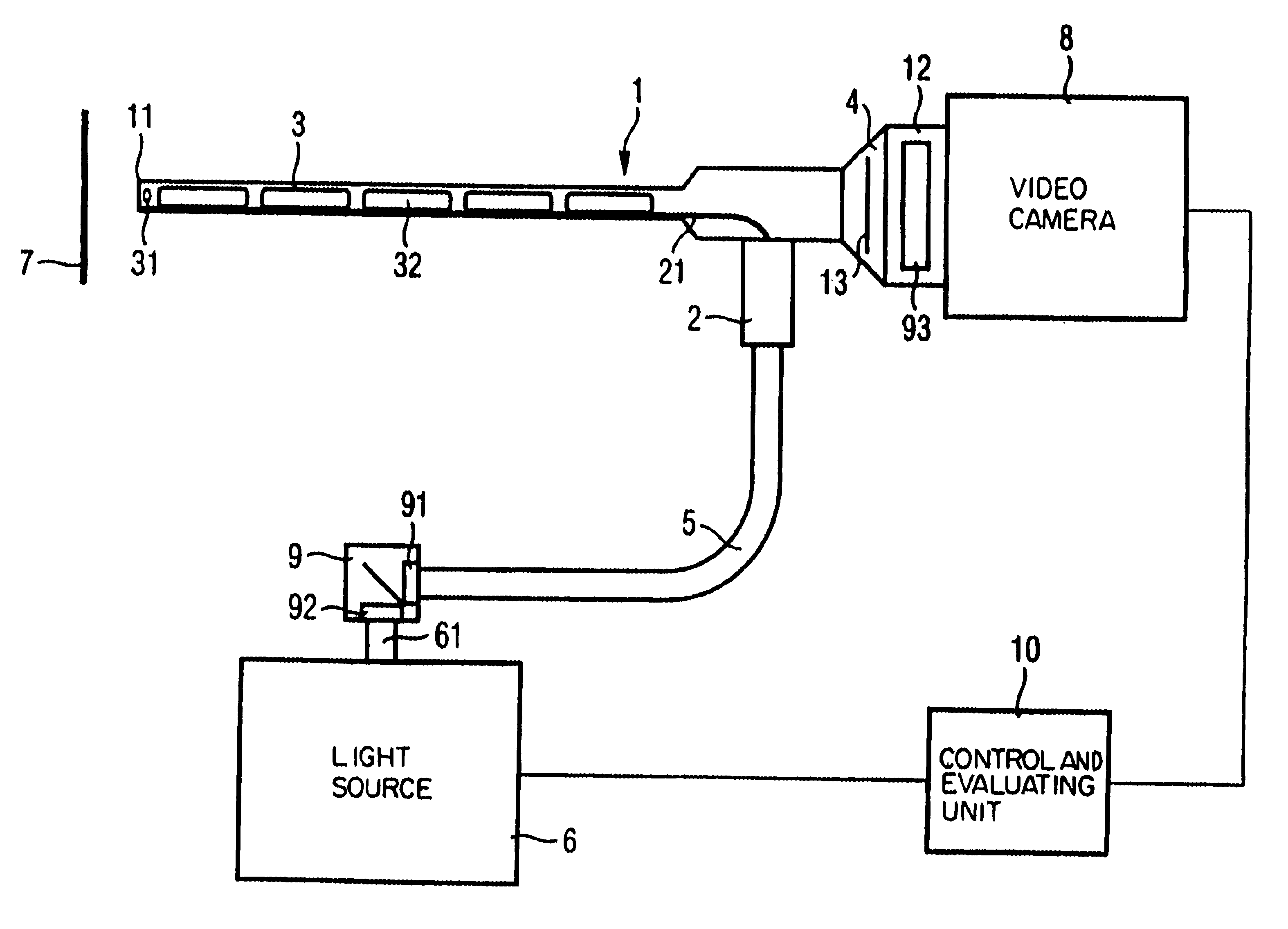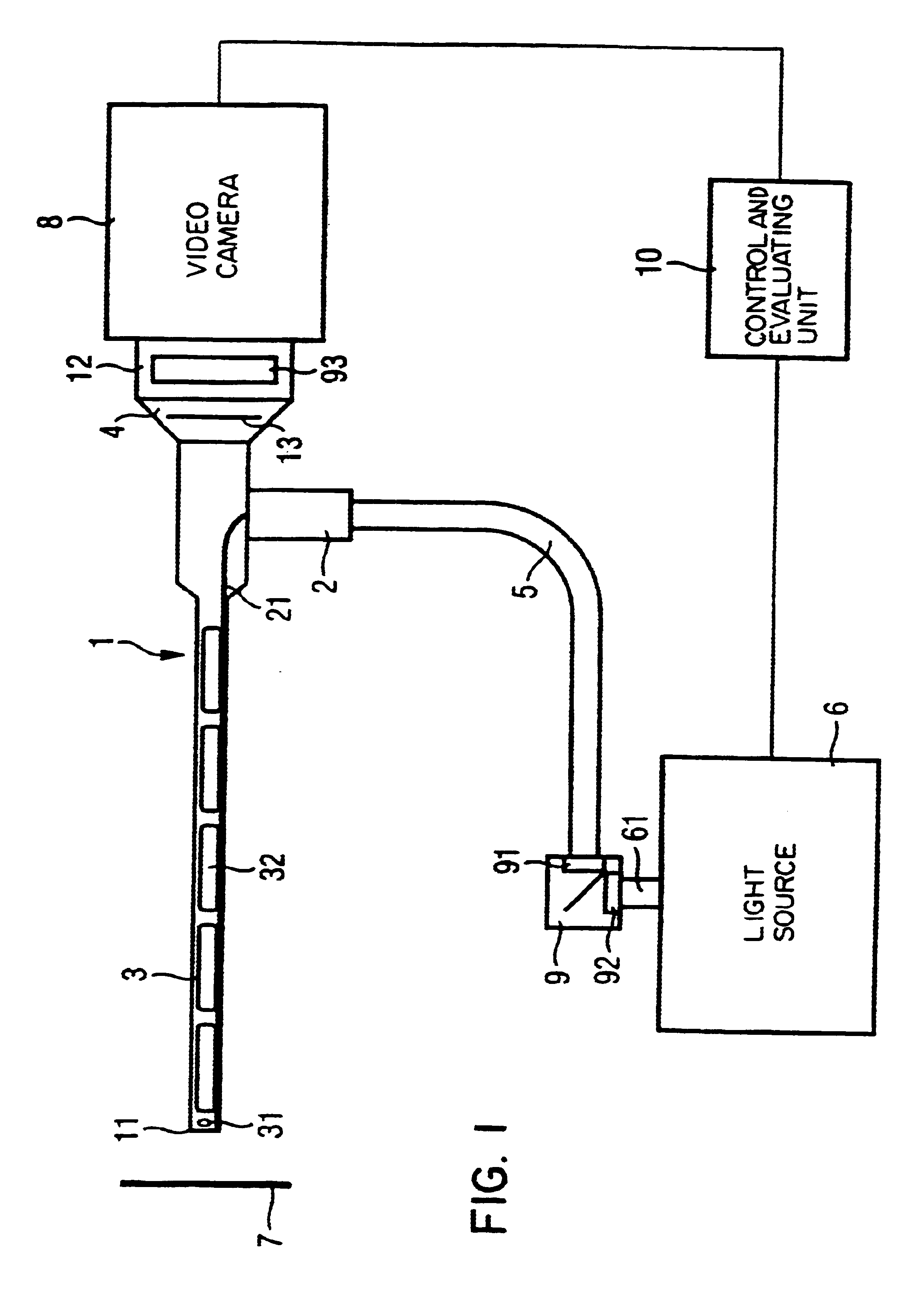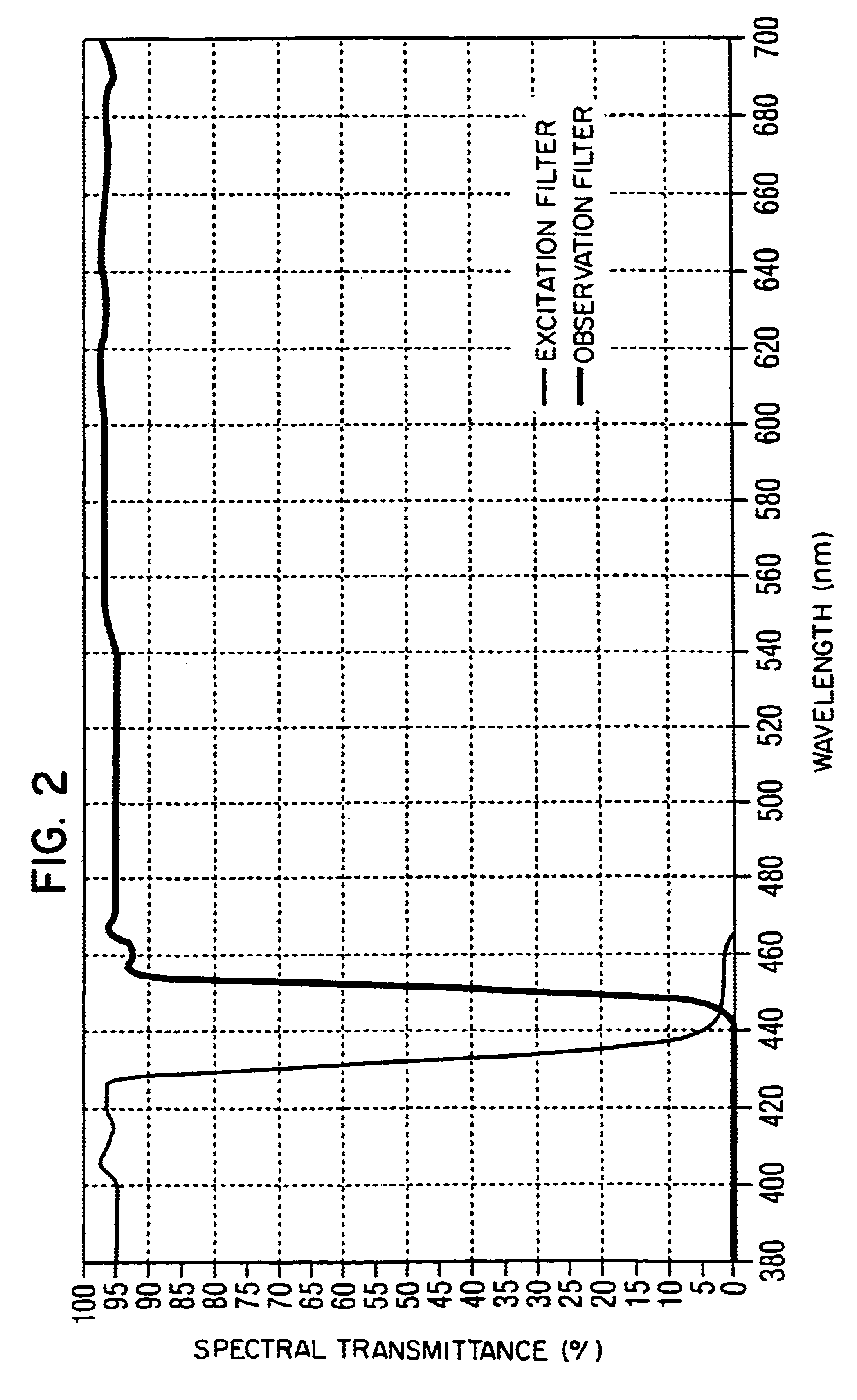Patents
Literature
476 results about "Autofluorescence" patented technology
Efficacy Topic
Property
Owner
Technical Advancement
Application Domain
Technology Topic
Technology Field Word
Patent Country/Region
Patent Type
Patent Status
Application Year
Inventor
Autofluorescence is the natural emission of light by biological structures such as mitochondria and lysosomes when they have absorbed light, and is used to distinguish the light originating from artificially added fluorescent markers (fluorophores).
Electronic endoscope system capable of displaying a plurality of images
InactiveUS20050288553A1Image can be preventedEasy diagnosisSurgeryEndoscopesComputer graphics (images)Display device
An electronic endoscope system, which is adapted to observe a fluorescence image of autofluorescence emitted from a body cavity wall irradiated with excitation light as well as a normal image of the body cavity wall illuminated with white light on a display device, includes a display controller whereby the aspect ratio of at least one of a plurality of images to display is converted so that the plurality of images are displayed in conformity with the shape of a display area of the display device when the plurality of images including the normal image and the fluorescence image are displayed on the display device. In the electronic endoscope system, the display controller converts the aspect ratio of at least one of the plurality of images by cutting both horizontal ends of the image to convert.
Owner:HOYA CORP
Method and system of coregistrating optical coherence tomography (OCT) with other clinical tests
ActiveUS20070115481A1Precise maintenanceImprove signal-to-noise ratioMaterial analysis using wave/particle radiationRadiation/particle handlingClinical testsTomography
A method / system preserves annotations of different pathological conditions or changes that are recognized on cross-sections within a three dimensional volume of a patient's eye so that the annotations are maintained in a visible state in an en face projection produced with a SVP technique. It is thus possible to coregister the annotated conditions or changes with other types of two dimensional en face images such as images from other ophthalmic devices (e.g., angiography device, microperimetry device, autofluorescence device, fundal photography device.). The annotations are also maintained in a visible state in the coregistered image.
Owner:DUKE UNIV
Method and system of coregistrating optical coherence tomography (OCT) with other clinical tests
ActiveUS7593559B2Improve signal-to-noise ratioReduce artifactsMaterial analysis using wave/particle radiationRadiation/particle handlingClinical testsClinical trial
Owner:DUKE UNIV
Fluorescence imaging endoscope
InactiveUS7235045B2Simplify System DesignConvenient registrationRaman/scattering spectroscopySurgeryLaser lightReflectivity
An endoscope having an optical guide that is optically coupled to a first broadband light source and a second laser light source that emits light at a wavelength in a range of 350 nm to 420 nm. The endoscope has an image sensor at a distal end and collects a reflectance image including red, green and blue components with the image sensor in response to illumination by said broadband light source. The image sensor also collects an autofluorescence image having a blue component, a green component and a red component. A processor processes the fluorescence image by determining a ratio of the fluorescence image and the reflectance image to provide a processed fluorescence image.
Owner:MASSACHUSETTS INST OF TECH +1
Transmission-based luminescent detection systems
InactiveUS20060019265A1Bioreactor/fermenter combinationsBiological substance pretreatmentsControl systemMonochromator
A luminescent detection system that employs transmission-based detection is provided for use with a chromatographic-based assay device. Unlike conventional systems, the detection system of the present invention is portable, simple to use, and inexpensive. For example, the system may be selectively controlled to reduce reliance on expensive optical components, such as monochromators or narrow emission bandwidth optical filters. In addition, the detection system is also capable of eliminating background interference from many sources, such as scattered light and autofluorescence, which have often plagued conventional fluorescent detection systems.
Owner:KIMBERLY-CLARK WORLDWIDE INC
Spectral imaging of deep tissue
ActiveUS20050065440A1Easy to detectHigh detection sensitivityOptical radiation measurementNanoinformaticsDeep tissueSpectral analysis
Apparatus and methods are provided for the imaging of structures in deep tissue within biological specimens, using spectral imaging to provide highly sensitive detection. By acquiring data that provides a plurality of images of the sample with different spectral weightings, and subsequent spectral analysis, light emission from a target compound is separated from autofluorescence in the sample. With the autofluorescence reduced or eliminated, an improved measurement of the target compound is obtained.
Owner:CAMBRIDGE RES & INSTR
Multispectral wide-field endoscopic imaging of fluorescence
ActiveUS20150216398A1Decrease one or more undesirable effects of the interfering fluorescence signalReduce distractionsRaman/scattering spectroscopySurgeryWide fieldMultispectral image
Improved methods, systems and apparatus relating to wide field fluorescence and reflectance imaging are provided, including improved methods, systems and apparatus relating to removal of background signals such as autofluorescence and / or fluorophore emission cross-talk; distance compensation of fluorescent signals; and co-registration of multiple signals emitted from three dimensional tissues.
Owner:UNIV OF WASHINGTON
Fluorescence Detection
InactiveUS20080265177A1Bioreactor/fermenter combinationsBiological substance pretreatmentsUltravioletLight emission
A fluorescence detection system comprises a light source (22), dichroic mirror (32), excitation port (16), emission port (14), and a detector. The light source (22) is, for example, a pulsed ultraviolet LED, with a light emission that decays sufficiently rapidly to permit gated detection of fluorescence from a fluorescently-labelled species, at a time when it is distinguishable from autofluorescence. The detector is, for example, an electron multiplying CCD, with high gain on-chip amplification. A circuit (26) may be used to control a repeating cycle of (i) generation of a 20-200 microsecond UV. pulse; (ii) a gate delay of 1-5 microseconds; and (iii) a 10-800 microsecond detection period. This allows time-resolved-fluorescence-microscopy with real time or near real time operation.
Owner:MACQUARIE UNIV
Membrane-based lateral flow assay devices that utilize phosphorescent detection
InactiveUS20050112703A1Bioreactor/fermenter combinationsBiological substance pretreatmentsAnalyteTest sample
A lateral flow, membrane-based assay device for detecting the presence or quantity of an analyte residing in a test sample is provided. The device utilizes phosphorescence to detect the signals generated by excited phosphorescent labels. The labels may have a long emission lifetime so that background interference from many sources, such as scattered light and autofluorescence, is practically eliminated during detection. In addition, the phosphorescent labels may be encapsulated within particles to shield the labels from quenchers, such as oxygen or water, which might disrupt the phosphorescent signal.
Owner:KIMBERLY-CLARK WORLDWIDE INC
Dental demineralization detection, methods and systems
Methods and systems for detecting early stage dental caries and decays are provided. In particular, in an embodiment, laser-induced autofluorescence (AF) from multiple excitation wavelengths is obtained and analyzed. Endogenous fluorophores residing in the enamel naturally fluoresce when illuminated by wavelengths ranging from ultraviolet into the visible spectrum. The relative intensities of the AF emission changes between different excitation wavelengths when the enamel changes from healthy to demineralized. By taking a ratio of AF emission spectra integrals between different excitation wavelengths, a standard is created wherein changes in AF ratios within a tooth are quantified and serve as indicators of early stage enamel demineralization. The techniques described herein may be used in conjunction with a scanning fiber endoscope (SFE) to provide a reliable, safe and low-cost means for identifying dental caries or decays.
Owner:UNIV OF WASHINGTON CENT FOR COMMERICIALIZATION
Electronic endoscope system for fluorescence observation
InactiveUS20060020169A1Reduce fatigueReduce brightness differenceSurgeryEndoscopesControl systemDisplay device
An electronic endoscope system, which is adapted to observe a fluorescence image of autofluorescence emitted from a body cavity wall irradiated with excitation light as well as a normal image of the body cavity wall illuminated with white light on a display device, includes a brightness control system configured to adjust brightness of at least one of the normal image and the fluorescence image to reduce brightness difference between the normal image and the fluorescence image to be displayed.
Owner:HOYA CORP
Electronic endoscope system for fluorescence observation
An electronic endoscope system, which is adapted to observe a fluorescence image of autofluorescence emitted from a body cavity wall irradiated with excitation light, includes a controller that controls a light source apparatus to alternately introduce either white light or excitation light into a light guide while taking a normal color image and the fluorescence image, and controls an image signal generating system to generate normal color image signals and fluorescence image signals. The controller further controls a display device to display a still fluorescence image in a first window defined on a displaying area thereof based on the fluorescence image signals which have been generated when a still image switch is turned ON during the time to take the fluorescence image, and simultaneously to display a moving normal color image in a second window defined on a displaying area thereof based on the normal color image signals generated every time the body cavity wall is intermittently illuminated with the white light, the first window being larger than the second window.
Owner:HOYA CORP
In vivo spectral micro-imaging of tissue
ActiveUS8320650B2Effectively categorizeEffectively visualizeMaterial analysis by optical meansCharacter and pattern recognitionMicro imagingImage resolution
In vivo endoscopic methods an apparatuses for implementation of fluorescence and autofluorescence microscopy, with and without the use of exogenous agents, effectively (with resolution sufficient to image nuclei) visualize and categorize various abnormal tissue forms.
Owner:LAWRENCE LIVERMORE NAT SECURITY LLC +1
Multimode autofluorescence tomography molecule image instrument and rebuilding method
ActiveCN101301192AImprove signal-to-noise ratioIncrease the amount of information availableImage enhancementSurgeryDiagnostic Radiology ModalityLiquid nitrogen cooling
The invention discloses a multi-modality autofluorescence molecular tomographic imaging instrument, comprising a signal gathering module, a signal preprocessing module, a system control module, and a signal post-processing module. The method of the invention comprises determining the feasible region of light source through X-ray imaging and autofluorescence tomographic imaging based on multi-stage adaptive finite element combined with digital mouse, reconstruction target area optical characteristic parameter, and modality fusion, and adaptive optimized factorization for partial texture according to the posterior error estimation to obtain the fluorescence light source in reconstruction target area. The morbidity problem of autofluorescence molecular tomographic image can be efficiently solved, and the precise reconstruction of the autofluorescence light source can be carried out in the complicated reconstruction target area by the multi-modality fusion imaging mode of the autofluorescence molecular tomographic imaging. The precise reconstruction of the autofluorescence light source can be finished by the liquid nitrogen cooling CCD probe, multi-angle fluorescence probe technology, and multi-modality fusion technology, and the autofluorescence molecular tomographic imaging algorithm based on multi-stage adaptive finite element with the non-uniformity characteristics of the reconstruction target area.
Owner:INST OF AUTOMATION CHINESE ACAD OF SCI
Optical fluorescent imaging
InactiveUS20060280688A1Ultrasonic/sonic/infrasonic diagnosticsMethine/polymethine dyesAbnormal tissue growthNoninvasive imaging
Compounds and methods are disclosed that are useful for noninvasive imaging in the near-infrared (NIR) spectral range. The NIR is highly sensitive for tumor detection and tracking. The application discloses targeting a tumor-enriched cell surface receptor with a ligand-conjugated fluorescent probe, which specifically allows detection of the tumor relative to the negligible animal autofluorescence.
Owner:LI COR
Real-time contemporaneous multimodal imaging and spectroscopy uses thereof
The present invention comprises an optical apparatus, methods and uses for real-time (video-rate) multimodal imaging, for example, contemporaneous measurement of white light reflectance, native tissue autofluorescence and near infrared images with an endoscope. These principles may be applied to various optical apparati such as microscopes, endoscopes, telescopes, cameras etc. to view or analyze the interaction of light with objects such as planets, plants, rocks, animals, cells, tissue, proteins, DNA, semiconductors, etc. Multi-band spectral images may provide morphological data such as surface structure of lung tissue whereas chemical make-up, sub-structure and other object characteristics may be deduced from spectral signals related to reflectance or light radiated (emitted) from the object such as luminescence or fluorescence, indicating endogenous chemicals or exogenous substances such as dyes employed to enhance visualization, drugs, therapeutics or other agents. Accordingly, one embodiment of the present invention discusses simultaneous white light reflectance and fluorescence imaging. Another embodiment describes the addition of another reflectance imaging modality (in the near-IR spectrum). Input (illumination) spectrum, optical modulation, optical processing, object interaction, output spectrum, detector configurations, synchronization, image processing and display are discussed for various applications.
Owner:PERCEPTRONIX MEDICAL +1
Methods and systems for analyzing fluorescent materials with reduced authofluorescence
ActiveUS7714303B2Improve abilitiesDecrease in levelPhotometryMaterial analysis by electric/magnetic meansSignal sourceBackground noise
Mitigative and remedial approaches to reduction of autofluorescence background noise are applied in analytical systems that rely upon sensitive measurement of fluorescent signals from arrays of fluorescent signal sources. Such systems are for particular use in fluorescence based sequencing by incorporation systems that rely upon small numbers or individual fluorescent molecules in detecting incorporation of nucleotides in primer extension reactions.
Owner:PACIFIC BIOSCIENCES
Fluorescence detecting system
A fluorescence detecting system includes a stimulating light projector which projects onto an object part which has been dosed with a fluorescence agent first stimulating light in the exciting wavelength range of the fluorescence agent and second stimulating light which differs from the first stimulating light in the wavelength band and is in the exciting wavelength range of the auto-fluorescence material contained in the object part, and a fluorescence information obtainer which obtains the fluorescence from the fluorescence agent information based on the fluorescence from the fluorescence agent emitted from the object part in response to projection of the first stimulating light and the auto-fluorescence information based on the auto-fluorescence emitted from the object part in response to projection of the second stimulating light. The fluorescence agent is a fluorescence agent which does not emit fluorescence in response to projection of the second stimulating light.
Owner:FUJIFILM HLDG CORP +1
Electronic endoscope system for fluorescence observation
An electronic endoscope system, which is adapted to observe a fluorescence image of autofluorescence emitted from a body cavity wall irradiated with excitation light, includes a controller that controls a light source apparatus to alternately introduce either white light or excitation light into a light guide while taking a normal color image and the fluorescence image, and controls an image signal generating system to generate normal color image signals and fluorescence image signals. The controller further controls a display device to display a still fluorescence image in a first window defined on a displaying area thereof based on the fluorescence image signals which have been generated when a still image switch is turned ON during the time to take the fluorescence image, and simultaneously to display a moving normal color image in a second window defined on a displaying area thereof based on the normal color image signals generated every time the body cavity wall is intermittently illuminated with the white light, the first window being larger than the second window.
Owner:HOYA CORP
In vivo flow cytometry based on cellular autofluorescence
InactiveUS20110044910A1Avoid damageOptical radiation measurementUltrasonic/sonic/infrasonic diagnosticsFluenceFluorophore
The present invention generally provides methods and systems for performing in vivo flow cytometry by using blood vessels as flow chambers through which flowing cells can be monitored in a live subject in vivo without the need for withdrawing a blood sample. In some embodiments, one or more blood vessels are illuminated with radiation so as to cause a multi-photon excitation of an exogenous fluorophore that was previously introduced into the subject to label one or more cell types of interest. In some other embodiments, rather than utilizing an exogenous fluorophore, endogenous (intrinsic) cellular fluorescence can be employed for in vivo flow cytometry. The emission of fluorescence radiation from such fluorophores in response to the excitation can be detected and analyzed to obtain information regarding a cell type of interest.
Owner:THE GENERAL HOSPITAL CORP
Method for Determining Effectiveness of Medicine Containing Antibody as Component
InactiveUS20130230866A1High sensitivityWide rangeBioreactor/fermenter combinationsBiological substance pretreatmentsTissue stainingTreatment effect
Protein recognized by an antibody used as an active ingredient of an antibody medicine such as trastuzumab or an antibody used for targeting a target site of an active ingredient is highly accurately quantitatively determined by employing a quantitative tissue staining method of biological tissues, thereby providing a method for determining therapeutic effectiveness of a medicine containing such an antibody as a component. The effectiveness of a medicine containing an antibody as a component is determined by employing a tissue staining method comprising the steps of: labeling the antibody in the medicine containing an antibody as a component with a fluorescent material and contacting the thus fluorescence-labeled antibody with a tissue sample; obtaining a fluorescence image by irradiating, with excitation light, a tissue site contacted with the antibody; obtaining an autofluorescence image in the same field of view and at the same focus as in the fluorescence image in a close region on a shorter wavelength side or a longer wavelength side of an acquisition wavelength region of fluorescence emitted by the fluorescent material; obtaining a corrected fluorescence image by performing image processing for removing fluorescence brightness of the autofluorescence image from fluorescence brightness of the fluorescence image; counting the number of cells in the tissue site contacted with the antibody; measuring average fluorescence brightness per fluorescent particle; and calculating the number of fluorescent particles per cell.
Owner:TOHOKU UNIV
Optical fluorescent imaging
InactiveUS7597878B2Ultrasonic/sonic/infrasonic diagnosticsMethine/polymethine dyesNoninvasive imagingConfocal
Compounds and methods are disclosed that are useful for noninvasive imaging in the near-infrared (NIR) spectral range. The NIR is highly sensitive for tumor detection and tracking. The application discloses targeting a tumor-enriched cell surface receptor with a ligand-conjugated fluorescent probe, which specifically allows detection of the tumor relative to the negligible animal autofluorescence.
Owner:LI COR
Harmonic generation microscopy
A harmonic generation microscopy employs a laser device that emits a laser beam having a predetermined wavelength that causes no autofluorescence in a biological sample and that, after excited, induces both the second and third harmonic waves. The laser beam is projected onto a sample and an observation beam from the sample is received. The observation beam is directed through a splitter to separate the second harmonic wave and the third harmonic wave both of which are then converted into corresponding electrical signals. The electrical signals are fed to a computer-based image processing equipment to form an image of the sample on the basis of the second and third harmonic waves.
Owner:NARIONAL TAIWAN UNIV
Human body oxidative stress non-invasive fluorescence detection device and method
InactiveCN101716069AAvoid painAvoid the risk of infectionDiagnostic recording/measuringSensorsDiseaseBeam splitter
The invention discloses human body oxidative stress non-invasive fluorescence detection device and method. An excitation light source system comprises one near ultraviolet light source and one light filter and one beam splitter which are arranged on the emergent light path of near ultraviolet light source; wherein the beam splitter splits the emergent light into a reference light and an exciting light. A spectrum acquisition system comprises a conduction optical fiber, a fiber probe and a spectrometer. The conduction optical fiber is used for transmitting the reference light to the spectrometer; the fiber probe is used for transmitting the exciting light to skin part of human body to be tested, collecting fluorescent light generated by excitation on skin of human body and transmitting the fluorescent light to the spectrometer. The spectrometer is used for analyzing and processing the collected spectrum signal and finally obtains oxidative stress status of the detected object. Autofluorescence of skin is utilized to reflect human body oxidative stress status, detection speed is rapid, and result can be displayed in real time. The invention can provide reliable basis for prevention, diagnose and treatment effect evaluation on critical illness.
Owner:ANHUI INST OF OPTICS & FINE MECHANICS - CHINESE ACAD OF SCI
Multi-optical spectrum autofluorescence dislocation imaging reconstruction method based on single view
InactiveCN101342075ASolve inaccurateHigh speedDiagnostic recording/measuringSensorsReconstruction methodData acquisition
The invention relates to a multi-spectrum auto fluorescence fault imaging reconstruction method based on single view, which belongs to the optical molecular imaging field. The method is based on the diffusivity equation model, considers the uneven characteristics of small animal body, and simultaneously also considers the spectrum and the practical application characteristics of the auto fluorescence light source. In order to achieve the purpose, the multi-spectrum auto fluorescence fault imaging reconstruction method based on single view comprises the flowing steps: firstly, data acquisition; secondly, the dispersing processing of finite element; thirdly, the optimization of the selection of the feasible light source zone; fourthly, the reconstruction of the light source. The method overcomes the defects that the reconstruction light source of the auto fluorescence fault imaging reconstruction method is inaccurate, the reconstruction speed is low, the real-time processing is not convenient, and error can exist during the multi-spectrum data acquisition.
Owner:BEIJING UNIV OF TECH
Methods for determining the sex of birds' eggs
ActiveUS20110144473A1Reduce effortSort outUltrasonic/sonic/infrasonic diagnosticsTesting eggsAnimal scienceMedicine
The invention relates to methods for determining the sex of birds' eggs. It can be used for an early determination of the sex, in particular in poultry farming, and in this respect also with non-incubated eggs. In the method in accordance with the invention, electromagnetic radiation is emitted onto the blastodisk of an egg by a radiation source and, after a switching off of the radiation source, the decay behavior of the autofluorescence intensity excited by the electromagnetic radiation is detected by a detector at the irradiated region of the blastodisk with time resolution and spectral resolution for at least one wavelength of the autofluorescence. The fractal dimension DF is calculated using the determined measured intensity values and the value of the fractal dimension DF is compared with a species-specific and sex-specific limit value, wherein, when the limit value is exceeded, the respective egg is classified as female and, when it is not reached, the egg is classified as male.
Owner:FRAUNHOFER GESELLSCHAFT ZUR FOERDERUNG DER ANGEWANDTEN FORSCHUNG EV
Methods and systems for analyzing fluorescent materials with reduced authofluorescence
ActiveUS20080283772A1Improve abilitiesLower Level RequirementsPhotometryMaterial analysis by electric/magnetic meansSignal sourceBackground noise
Mitigative and remedial approaches to reduction of autofluorescence background noise are applied in analytical systems that rely upon sensitive measurement of fluorescent signals from arrays of fluorescent signal sources. Such systems are for particular use in fluorescence based sequencing by incorporation systems that rely upon small numbers or individual fluorescent molecules in detecting incorporation of nucleotides in primer extension reactions
Owner:PACIFIC BIOSCIENCES
Microfluidic systems, devices and methods for reducing background autofluorescence and the effects thereof
InactiveUS20090140170A1Reduced autofluorescenceReducing background autofluorescenceElectroluminescent light sourcesPhotometryMicrofluidic channelMicroscope
According to one embodiment, a microfluidic system and method is disclosed for reducing autofluorescence. The microfluidic system can include a light source for generating an excitation light. The microfluidic system can also include a microscope having an objective for focusing the excitation light on a fluid inside a microfluidic channel of a microfluidic chip. Further, the microfluidic system can include a detector for rejecting out-of-focus light emitted from the microfluidic chip.
Owner:SCIEX
In vivo spectral micro-imaging of tissue
ActiveUS20100134605A1Increase contrastImprove image contrastMaterial analysis by optical meansCatheterMicro imagingImage resolution
In vivo endoscopic methods an apparatuses for implementation of fluorescence and autofluorescence microscopy, with and without the use of exogenous agents, effectively (with resolution sufficient to image nuclei) visualize and categorize various abnormal tissue forms.
Owner:LAWRENCE LIVERMORE NAT SECURITY LLC +1
Device for photodynamic diagnosis or treatment
An endoscopic or microscopic apparatus for diagnosis by means of a light-induced reaction in biologic tissue "in vivo" which is created by a photo-amboceptor or by autofluorescence is provided. The inventive apparatus is characterized by the feature that at least one reference wavelength lambdar is provided which is longer by up to 2Deltalambda at maximum or smaller than the wavelength lambdas at the point of intersection.
Owner:KARL STORZ GMBH & CO KG
Features
- R&D
- Intellectual Property
- Life Sciences
- Materials
- Tech Scout
Why Patsnap Eureka
- Unparalleled Data Quality
- Higher Quality Content
- 60% Fewer Hallucinations
Social media
Patsnap Eureka Blog
Learn More Browse by: Latest US Patents, China's latest patents, Technical Efficacy Thesaurus, Application Domain, Technology Topic, Popular Technical Reports.
© 2025 PatSnap. All rights reserved.Legal|Privacy policy|Modern Slavery Act Transparency Statement|Sitemap|About US| Contact US: help@patsnap.com
